








· Individualized Care Plans
· Nursing Available 24/7
· Physical and occupational therapy on-site with FOX Rehabilitation
As we get older, it becomes increasingly important to stay social and active—both mentally and physically. We invite you to experience boutique assisted living with personalized care and a comprehensive focus on overall health and well-being.




At Chevy Chase House, conveniently located on Connecticut Avenue, our staff helps with the assistance you need, while encouraging independence and purposeful living. From our LIFE INSPIRED activities program to our dining experience to our on-site exercise physiologist, Chevy Chase House offers opportunities to live stronger and with more joy.
Schedule a tour today at (202) 618-1849.
· Life Inspired social program with wellness programs led by exercise physiologist
· Spacious Studio, One- and Two-Bedroom Apartments
· Chef-curated dining experience

· Great location near shops, restaurants, and healthcare
· State-of-the-art gym
(202) 618-1849
5420 Connecticut Avenue NW Washington, DC 20015
www.chevychasehouse.com
With seven locations in the Maryland and D.C. metro area, seniors, their families, and industry professionals find reliable, high-quality Assisted Living and Memory Care at Charter Senior Living.
We are a well-established, well-respected, family-owned organization that prioritizes every resident’s unique needs while bringing our core values to life.
Each day, we serve with heart, purpose, courage and fun, bettering the lives of anyone who walks through our doors. Experience the difference for yourself. Contact a Charter community today to schedule a tour and receive a caregiver’s resource guide.

Charter Senior Living of Annapolis Memory Care
www.charterofannapolis.com
410.376.7957
Charter Senior Living of Bowie
Assisted Living | Memory Care
www.charterbowie.com
301.703.2566
Charter Senior Living of Columbia Memory Care
www.chartercolumbia.com
410.630.4537
Charter Senior Living of Woodholme Crossing
Assisted Living | Memory Care
www.charterwoodholmecrossing.com
410.376.7722
Charter Senior Living of Towson Assisted Living | Memory Care
www.chartertowson.com
410.357.6532
The Cottages of Perry Hall
Assisted Living | Memory Care
www.cottagesofperryhall.com
410.656.1243
Charter Senior Living of Fredericksburg Assisted Living | Memory Care
www.charterfredericksburg.com
540.686.1554



PAGES 38-41

Hospice care was created to assist when a patient approaches the end of life. It can make the time remaining a more comfortable, even rewarding experience for both patients and families. More time in hospice means more help for families and caregivers and more room for what matters. Capital Caring Health has been providing high-quality advanced illness care for patients in the Washington, DC metropolitan region and their families for more than 45 years.
PAGES 24-28
Tanya Bodzin’s journey as a caregiver started when her husband of 55 years, Steve, began to show signs of Alzheimer’s disease. With the help of local professionals, Tanya was able to care for her husband, secure their financial future, and plan for her own retirement.
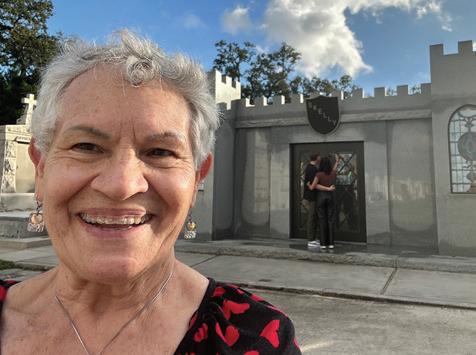
As many of you may know, the Positive Aging Sourcebook in print and online has been the most comprehensive resource for senior living, aging in place and helpful resources for more than three decades.
Sourcebook has always offered readers the opportunity to truly understand all the choices, but it also helped us build a community of the most influential senior living professionals. For more than 25 years, we convened gatherings, expos and meetings of senior living professionals. We truly created a community of these providers who in turn shared resources with their clients.
When COVID hit, like many businesses, we turned to online platforms to connect. Although we missed the faceto-face interaction, the online versions of our meetings offered convenience and the ability to explore more topics and tap into thought-leaders, authors and experts worldwide! The audience profile organically expanded from exclusively professionals to a wonderful mix of older adults, their families and professionals every week!
For nearly 33 years, my communication with our readers was primarily one-on-one via phone or email. Our live and interactive discussions have dramatically expanded our direct conversations with readers. Community members get immediate answers and an opportunity to share their opinions and thoughts. The discussions are like a focus group or a town hall meeting. I can feel the pulse of the community. Together, we face challenges, brainstorm solutions and make connections.
Data from the more than 80 discussions we held in 2022 show important trends. Solo Aging is clearly the most popular topic (see article on page 20).
Registrations are often double the average for solo aging discussions. Our conversations on Solo Aging focus on planning for the future and finding solutions to maintain independence. While a portion of the attendees are single individuals looking for solutions, there are many attendees thinking about solo aging to give their children and family peace of mind—or to be prepared in the event they outlive their loved ones.
Registrations are not the only metric that is important. Audience engagement is vital to the success of these discussions. We have questions, comments and feedback from a large percentage of participants. Our discussions are not just about what the experts think; they directly respond to what the audience wants to know. In addition to solo aging, our audience has shown keen interest in technology, conversations with noted authors, ageism, money matters, and aging in place solutions.
One of the best things about our discussions is our community members sharing their personal stories. In 2023, we are prioritizing putting more real-life stories on the stage in our discussions. You can read about one in this issue on page 24 .
We hope that you join our community in a discussion this year! Of course, I still love hearing from you via phone or email.
Copyright © 2023 by Regrad Solutions, LLC. Phone 1-800-394-9990. The contents of this publication may not be copied or reproduced in any manner without express written permission of the publisher. Every effort has been made to assure the accuracy of all information published in the Positive Aging Sourcebook Regrad Solutions assumes no liability for damages arising from errors or omissions. For information about advertising, circulation, or editorial content, call toll-free: 1-800-394-9990.
All property advertisements in the Positive Aging Sourcebook are subject to the federal Fair Housing Act, which makes it illegal to advertise any preference, limitation, or discrimination because of race, color, religion, sex, handicap, familial status or national origin, or intention to make any such preference, limitation, or discrimination. State and local laws forbid discrimination based on factors in addition to those protected under federal law. Positive Aging Sourcebook will not knowingly accept any advertising for real estate which is in violation of the law. All persons are hereby informed that all dwellings advertised are available on an equal opportunity basis.
We are pledged to the letter and spirit of U.S. policy for the achievement of equal housing opportunity throughout the nation. We encourage and support an affirmative advertising and marketing program in which there are no barriers to obtaining housing because of race, color, religion, sex, handicap, familial status or national origin.
 Christy Brudin Editor
Liz Yap Art Director
Christy Brudin Editor
Liz Yap Art Director
PositiveAging
Positive Aging Sourcebook
Mid-Atlantic Regional Editions: Maryland, DC, Northern Virginia, Pennsylvania, New Jersey, Delaware
Website:
positiveagingsourcebook.com
Contact Us: 800-394-9990
We

We are here for you. We are committed to you. And our promise to you is stronger than ever.
Our promise at Kensington Senior Living is to “love and care for your family as we do our own.”
That starts with getting to know you and those you love. Whether you need a listening ear, connection to resources, or information about our services, we are here to provide support. We are standing by, eager to listen and ready to help. Please give us a call.

promise to love and care for your family as we do our own.
The community includes:
• older adults planning for their own future,
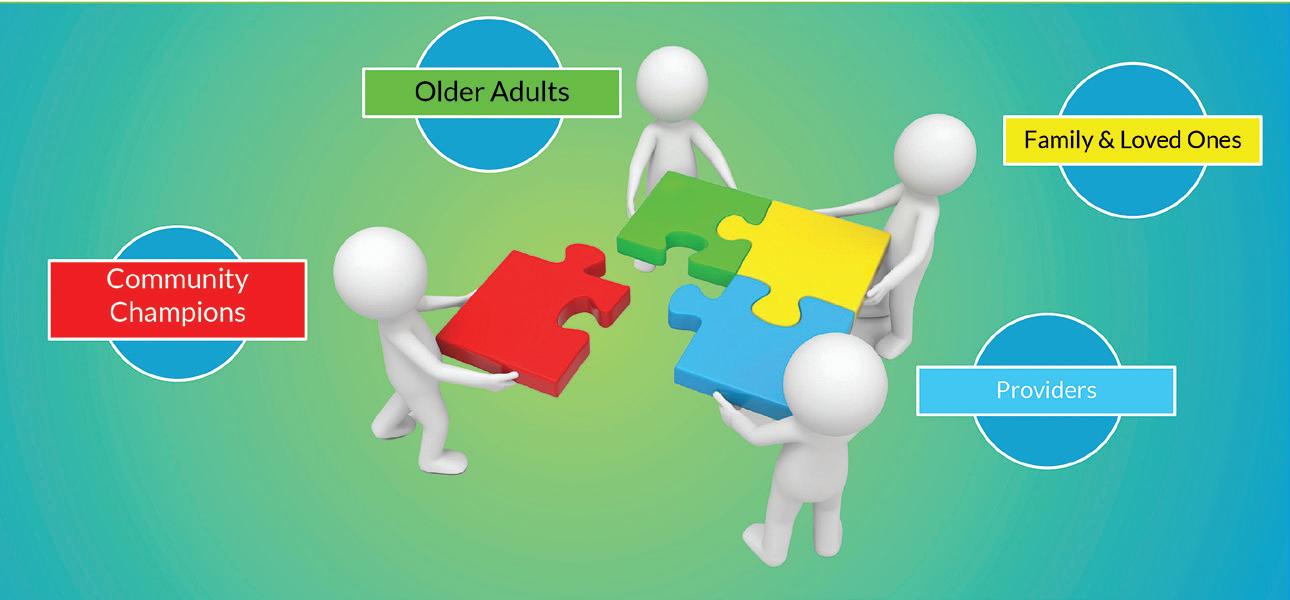
• family members helping their loved ones,
• a wide variety of professionals and volunteers who support older adults
• Positive Aging Community Champions .
One of the most important groups are the Positive Aging Community Champions (see page 214-216). The support of these individuals and organizations make the majority of our resources available to you at no charge!

You are holding the hallmark of our resources. Sourcebook has been published for more than 33 years and has evolved thanks to feedback from our community.
There are many ways to connect with our community:
• Print - Sourcebook
• Email Newsletter
• Website/Digital Editions: positiveagingsourcebook.com
• Live and Interactive Online Discussions

• Podcasts and On-Demand Recordings
• Live Events
• Call 1-800-394-9990
• Email: steve@proaging.com
• Career Center
Older Adults and Families: Join for free at proaging.com/join or call 1-800-394-9990 .
Professionals and Organizations: Join for free, or become a Champion and spotlight your organization. Call 703-966-6182 .
(see pages 214-216)











Women Owned. Team Focused.



The generation that fought for the rights of people of color and lesbian, gay, bi-sexual, transgender, and queer (LGBTQ) individuals is aging. While the world has undoubtedly become more inclusive since their youth, there is still work to be done.
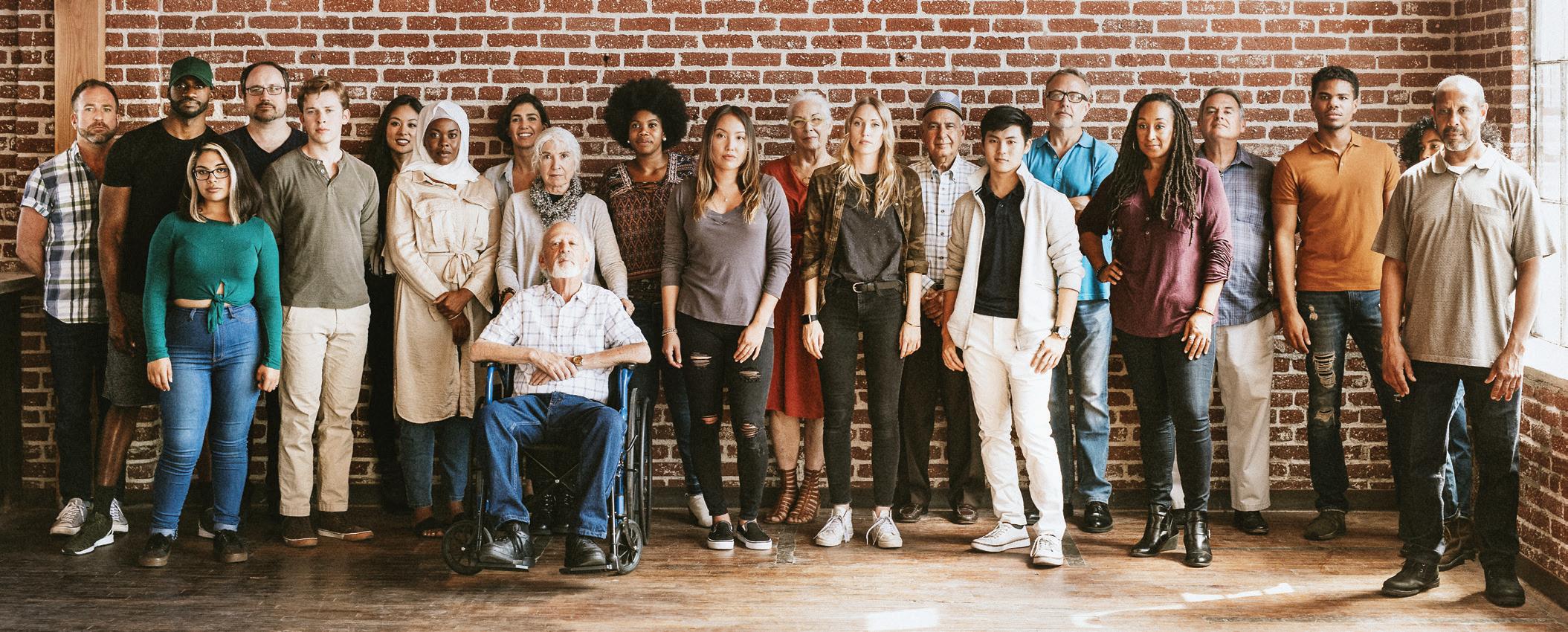
To serve all older adults, senior living communities and service providers need to be cognizant of and dedicated to promoting diversity and inclusion. Increasingly, senior living providers are acknowledging the diversity of their staff and clients. These forward thinking providers are working to make sure that everyone is comfortable and respected. Our seniors and senior living providers—all of them—deserve no less.
Positive Aging Sourcebook is dedicated to helping senior living providers promote diversity and inclusion. We have held numerous digital discussions on equity, inclusion and diversity in senior living to advance acceptance and expand understanding. View past conversations or join future discussions at retirementlivingsourcebook.com/ digital-discussions.
Many of the LGBTQ seniors who are seeking senior living services today are the same individuals who struggled to come out to friends, families, and employers for decades because of fear of discrimination. Now, as they face
retirement living decisions, they are again fearful that their lifestyle will lead to discrimination or the outright refusal of services.
Unlike other seniors, LGBTQ older adults are less likely to have children to help them in their later years. They may also be estranged from their families. This demographic is far more likely to rely solely on a partner or close friend for their care as they age.
In 2010, a groundbreaking documentary film addressed the dilemmas of LGBTQ seniors. Gen Silent profiles six LGBTQ seniors in the Boston area. Many of them are struggling with the decision to hide their sexuality to survive the long-term health care system.
Unfortunately, the seniors profiled in Gen Silent are not isolated examples. A 2018 analysis by University of Washington professor Karen Fredriksen-Goldsen concluded that unique prevention and intervention strategies needed to be developed to address the needs of queer seniors. The study noted that the number of LGBTQ seniors is expected to double to more than four million by 2030.
During a recent Positive Aging digital discussion, Jennifer Marie Brown, the community relations manager at Seabury Resources for Aging, explained the historical context that drives distrust among LGBTQ seniors. “During McCarthyism, people lost their
jobs, people were hounded out of a lot of federal government positions here in the DMV, because they were gay and lesbians. And it made them even more closeted, more guarded, more suspect of being out or public about who they were,” she said.
Brown continued, “As we provide services for 80-year-olds, 85-year-olds, they are very leery of the consequences of being out in a retirement community or with home health care providers. They lived a life in which it was not okay to be queer in the workplace, was not okay to be queer in a house of worship, was not okay to be queer in the PTA, was not okay to be queer anywhere.”
Brown encouraged local senior care providers to seek out training and enrichment opportunities to better serve LGBTQ seniors. Some
Continued on page 14
To serve all older adults, senior living communities and service providers need to be cognizant of and dedicated to promoting diversity and inclusion.Many forward-thinking senior living providers are acknowledging the diversity of their staff and clients and working to make sure everyone is cared for and respected.



Continued from page 10
communities, including Seabury and Iona, have custom programs to serve this population. Additionally, SAGECare is an independent organization that provides training and consultation on LGBTQ aging issues to service providers.
When thinking of senior living challenges, most people focus on eliminating ageism. However, racism is a significant issue in senior living—just as it is throughout our society. Equity, inclusion and diversity are important topics that senior living providers must confront directly.
Historically, people of color have underutilized senior living services. Many senior living communities have completely homogenous populations— often all white. For senior living service providers, systemic racism and its corresponding economic disparities may prevent people of color from accessing services. There are also cultural barriers to access. Even for hospice services, which are primarily covered by Medicare and Medicaid, a recent study of utilization by race revealed that 83 percent of hospice patients in the United States are Caucasians, while African Americans represent only 8 percent, followed by Hispanics at 6.4 percent, Asians at 2 percent and Native Americans at .05 percent. People of color do not use senior living services like they could—or should.
Beyond utilization, one of the biggest challenges facing senior living providers seeking to promote diversity and inclusion is diversity in hiring. In senior living communities and home care agencies, frontline caregivers are disproportionately people of color, while clients are disproportionately white. Companies that are not already doing so need to actively recruit and promote people of color. Frontline caregivers should be made aware of opportunities and paths for promotion. They should be encouraged to recruit other people
like them to work in the organization. They should also see themselves reflected in the management.
To improve hiring practices, senior living providers can turn to local colleges. “You’ve all heard of Howard University. You’ve all heard of Morgan State. You’ve all heard of UMBC. So if you’re not doing active recruiting in those locations, then you’re not looking hard enough,” explained Cordell Martin, community relations coordinator at Tribute at Melford, an assisted living and memory care community in Bowie, Md, during a digital discussion. “I’m talking about bringing in talented people. I’m not talking about bringing in someone just so you can say you’ve fulfilled a quota, because that’s often how it’s presented.”
During Positive Aging’s digital discussion, many of the panel members and the participants highlighted discrimination by clients, especially in the home care sector. Many caregivers, particularly those who are from foreign countries, face discrimination from clients.
Caregivers may be mistreated or misjudged simply based on racist ideas. Home care workers and owners alike reported clients asking for caregivers who “didn’t have accents” or who “looked like them.”
Sambal Johnson, a caregiver with HomeCare.com, relayed her personal experience. “I’ve been discriminated against because of my name. They assume that there will be a language barrier or that I don’t know what I’m doing. But once you get in and you understand them and explain yourself to them, the majority of the people are understanding and it works out.”
Companies have to support and defend their workers—to the point of removing them from uncomfortable or unsafe situations. Todd Walrath, the CEO of HomeCare.com, spoke of how he supports his frontline workers by ensuring that they know they can always refuse a client if they feel they are in danger or being discriminated against. With clients, Walrath tries to keep the focus on the qualifications of the caregiver, instead of their race or ethnicity.
To truly change the make-up of senior living, diversity and inclusion must become a way of life for companies. Dr. Jeffrey Ash the associate dean for diversity and inclusion at the University of Maryland School of Nursing explained that the single best way to encourage diversity in hiring practices and inclusion in employee experiences is to attach them to metrics. Dr. Ash encourages companies to add questions about diversity and discrimination to their employee and client reviews and to track the responses.
To help the health care industry as a whole better address these issues, HomeCare.com established a coalition called Nurses Against Racism. The mission of the group is to unite healthcare providers to make meaningful change towards racial equity in the nursing industry. For more information or to get involved, visit NursesAgainstRacism.com.
Capital Caring Health, a nonprofit provider of advanced illness, home and hospice care services throughout the Washington metropolitan area, recently established The Center for Equity, Inclusion, and Diversity to serve more minority elders who need hospice care, as well as those who need traditional medical care to remain independent in their homes.
Finally, Broadmead, a senior living community near Baltimore, is engaging in a coordinated effort to recruit a more diverse resident population. Led by Jennifer Jimenez Maraña, the community’s director of diversity and inclusion, the effort focuses on promoting social justice by ensuring that the population of residents is as diverse as the caregivers.
While none of these efforts can eliminate systemic racism or homophobia in the senior living sector, they are small and important steps in the right direction. They can also serve as a model for larger efforts to ensure that senior living services truly serve all seniors and that the industry presents real opportunities for care professionals. If we advance a system that serves all, we will all be better served.


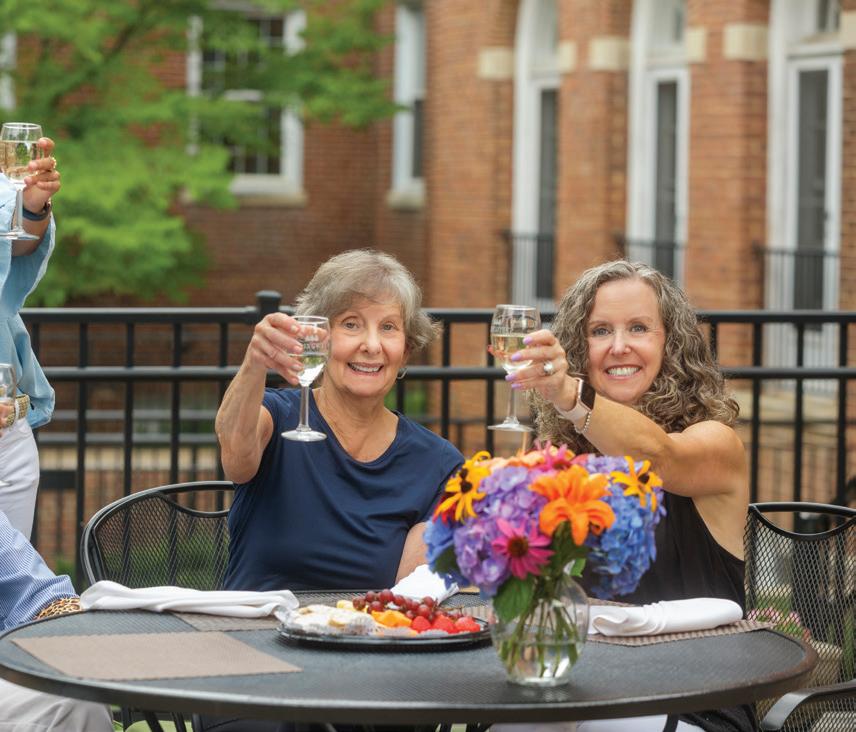
Aarondale is nestled in a private, meticulously landscaped setting in Springfield, VA. Just minutes from Washington, D.C. and major access routes, you’ll experience effortless living, unparalleled hospitality, and the many benefits of state-of-the-art programs and facilities.
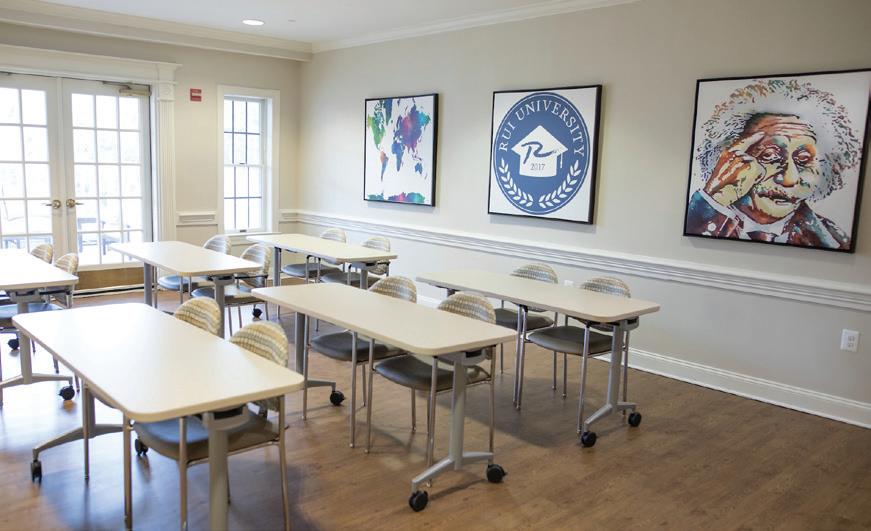


• Delicious, nutricious meals prepared by our Executive Chef, served in a restaurant-like setting
• Walking trail and individual gardening areas
• A full life enrichment calendar
• Salon pedicure/manicure service and hair stylists
• Physical, occupational and speech therapy on site
• Housekeeping and laundry services
• Scheduled transportation in and around the Springfield area
• Spacious studios, single suites and double suites with kitchenettes
• Residential, Assisted Living, and Inspirit á s - Memory Care
• 24/7 Licensed On-site Nursing
• RUI University Programming
• Pet Friendly Call 703.813.1808 for more information, and to schedule a personal tour.
• 24/7 on-site Licensed Nurses and full-time management Nurses
• 24/7 on-site Licensed Nurses and full-time management Nurses
• Delicious, nutritious meals prepared by our Executive Chef, served in a restaurant-like setting with tableside beer and wine service
• Delicious, nutritious meals prepared by our Executive Chef, served in a restaurant-like setting with tableside beer and wine service

• Private Dining Room/”gathering rooms” with living and dining available for private use
• Leash on Life - Pet concierge services
• RUI University programming for continuing education, held in our specialized classroom
• Leash on Life - Pet concierge services
• RUI University programming for continuing education, held in our specialized classroom
• I2 Construction - steel and concrete structural frame
• Generator for both the common areas and resident apartments in the case of a power outage
• I2 Construction - steel and concrete structural frame
• Generator for both the common areas and resident apartments in the case of a power outage
• Walking trail and individual gardening areas
• Private Dining Room/”gathering rooms” with living and dining available for private use
• Walking trail and individual gardening areas
• A full life enrichment calendar
• Spacious studios, one bedroom and two bedroom apartments with granite countertops, stainless steel appliances and kitchens
• LUXE Unlimited - Full service spa with massage therapy, pedicure/manicure service, facial/skin services, and hair stylists
• A full life enrichment calendar
• Spacious studios, one bedroom and two bedroom apartments with granite countertops, stainless steel appliances and kitchens

• All apartments offer kitchens with stove tops, ovens, microwaves, and full size refrigerators
• LUXE Unlimited - Full service spa with massage therapy, pedicure/manicure service, facial/skin services, and hair stylists
• RUI FIT programming and gym
• Physical, occupational and speech therapy on-site
• RUI FIT programming and gym
• Physical, occupational and speech therapy on-site
• Housekeeping and laundry services
• Scheduled transportation in and around the Burke area
• Housekeeping and laundry services
• Scheduled transportation in and around the Burke area
• Independent Living and Assisted Living
• All apartments offer kitchens with stove tops, ovens, microwaves, and full size refrigerators
• Independent Living and Assisted Living

Call 703.425.1698 for more information, and to schedule a personal tour.
Call 703.425.1698 for more information, and to schedule a personal tour.
• 24/7 on-site Licensed Nurses and full-time management Nurses
• 24/7 on-site Licensed Nurses and full-time management Nurses
• Delicious, nutritious meals prepared by our Executive Chef, served in a restaurant-like setting with tableside beer and wine service
• Delicious, nutritious meals prepared by our Executive Chef, served in a restaurant-like setting with tableside beer and wine service
• Private Dining Room/”gathering rooms” with living and dining available for private use
• Private Dining Room/”gathering rooms” with living and dining available for private use

• Walking trail and individual gardening areas
• Walking trail and individual gardening areas
• A full life enrichment calendar
• A full life enrichment calendar
• LUXE Unlimited - Full service spa with massage therapy, pedicure/manicure service, facial/skin services, and hair stylists
• LUXE Unlimited - Full service spa with massage therapy, pedicure/manicure service, facial/skin services, and hair stylists
• Library, billiards, shuffle board, and theatre
• Library, billiards, shuffle board, and theatre
• RUI FIT programming and gym
• RUI FIT programming and gym
• Physical, occupational and speech therapy on-site
• Physical, occupational and speech therapy on-site
• Housekeeping and laundry services
• Housekeeping and laundry services
• Scheduled transportation in and around the Leesburg area
• Scheduled transportation in and around the Leesburg area


• Leash on Life - Pet concierge services and dog park
• Leash on Life - Pet concierge services and dog park
• RUI University programming for continuing education, held in our specialized classroom
• RUI University programming for continuing education, held in our specialized classroom
• 8 foot wide hallways
• 8 foot wide hallways
• I2 Construction - steel and concrete structural frame
• I2 Construction - steel and concrete structural frame
• Generator for both the common areas and resident apartments in the case of a power outage
• Generator for both the common areas and resident apartments in the case of a power outage
• Spacious studio, one bedroom and two bedroom apartments with granite countertops, stainless steel appliances, automatic lights in the bathrooms, and key fob entry
• Spacious studio, one bedroom and two bedroom apartments with granite countertops, stainless steel appliances, automatic lights in the bathrooms, and key fob entry
• Select apartment kitchens offer stove tops, ovens, dishwashers, and full size refrigerators
• Select apartment kitchens offer stove tops, ovens, dishwashers, and full size refrigerators
• Vaulted ceilings in 3rd floor apartments
• Vaulted ceilings in 3rd floor apartments

• Independent Living, Assisted Living, and Inspirit á sMemory Care with LUXE Unlimited hair salon
• Independent Living, Assisted Living, and Inspirit á sMemory Care with LUXE Unlimited hair salon
Call 703.828.6900 for more information, and to schedule a personal tour.
Call 703.828.6900 for more information, and to schedule a personal tour.
• 24/7 on-site Licensed Nurses and full-time management Nurses
• Delicious, nutritious meals prepared by our Executive Chef, served in a restaurant-like setting with tableside beer and wine service
• Private Dining Room/”gathering rooms” with living and dining available for private use
• Walking trail and individual gardening areas
• A full life enrichment calendar
• LUXE Unlimited - Full service spa with massage therapy, pedicure/manicure service, facial/skin services, and hair stylists
• Library, card room, billiards room, theatre and bistro with liquor license


• RUI FIT programming and gym
• Physical, occupational and speech therapy on-site
• Housekeeping and laundry services
• Scheduled transportation in and around the Gainesville area
• Leash on Life - Pet concierge services and dog park
• RUI University programming for continuing education, held in our specialized classroom
• I2 Construction - steel and concrete structural frame
• Generator for both the common areas and resident apartments in the case of a power outage
• Studio, one bedroom and two bedroom apartments with granite countertops, stainless steel appliances, automatic lights in the bathrooms, and key fob entry

• Vaulted ceilings in 3rd floor apartments
• All apartments offer kitchens with stove tops, ovens, microwaves, and full size refrigerators
• Independent Living, Assisted Living, and Inspirit á sMemory Care with LUXE Unlimited hair salon
Call 703.468.2750 for more information, and to schedule a personal tour.
Paul Spring is positioned on 12 wooded acres in Alexandria, VA, backing up to the historical Hollin Hills district and has been open for over 30 years. Located just south of Old Town Alexandria, you’ll find the perfect combination of life enrichment and relaxation as part of your community experience.
• 24/7 on-site Licensed Nurses and full-time management Nurses
• Delicious, nutritious meals prepared by our Executive Chef, served in a restaurant-like setting with tableside beer and wine service

• Private Dining Room/”gathering rooms” with living and dining available for private use
• Walking trail and individual gardening areas, as well as a putting green

• A full life enrichment calendar
• LUXE Unlimited - Salon manicure service and hair stylists
• Library, theatre, and bistro with liqour license
• RUI FIT programming and gym
• Physical, occupational and speech therapy on-site
• Housekeeping and laundry services
• Scheduled transportation in and around the Alexandria area
• Leash on Life - Pet concierge services and dog park
• RUI University programming for continuing education, held in our specialized classroom
• 8 foot wide hallways
• I2 Construction - steel and concrete structural frame
• Generator for both the common areas and resident apartments in the case of a power outage
• Spacious studio, one bedroom and two bedroom apartments with granite countertops, stainless steel appliances, fully equipped kitchens
• Select apartment kitchens offer stove tops, ovens, dishwashers, and full size refrigerators

• Independent Living, Assisted Living, and Inspirit á sMemory Care
Call 703.768.0234 for more information, and to schedule a personal tour.
Welcome to Elancé Luxury Senior Living. From inviting amenities to specialized Signature Programs, every aspect of Elancé inspires the individual and community to reach new heights.
• 24/7 on-site Licensed Nurses and full-time management Nurses
• Ciscor call pendant services
• A full life enrichment calendar
• Library, theatre, billiards room, TV living rooms
• RUI University programming for continuing education

• RUI FIT programming and gym
• Scheduled transportation
• I2 Construction - steel and concrete structural frame
• All Utilities including phone, cable and Wi-Fi for all apartments
• Dedicated Conference Room
• Daily bed making
• Weekly housekeeping, flat linen, and personal laundry service
• Generator
• Temperature control system in every apartment
• Select apartment kitchens offer stove tops, ovens, dishwashers, full-size refrigerators, icemakers, washers/dryers
• Breakfast, Lunch and Dinner prepared by our Executive Chef
• Physical, occupational and speech therapy on-site
• Leash on Life – pet concierge services
• LUXE Unlimited Full Service Salon and Spa service
Call 703.845.5100 for more information, and to schedule a personal tour.
Weather won’t disrupt your day at an Erickson Senior Living®managed community. We have seven convenient locations in the greater Maryland, Virginia, and D.C. region:


• Ashby Ponds®
Ashburn, Virginia
• Greenspring ® Springfield, Virginia
• Riderwood ® Silver Spring, Maryland
• Charlestown®
Catonsville, Maryland
• Oak Crest ® Parkville, Maryland
• The Grandview℠
Bethesda, Maryland
• Woodleigh Chase℠
Fairfax, Virginia

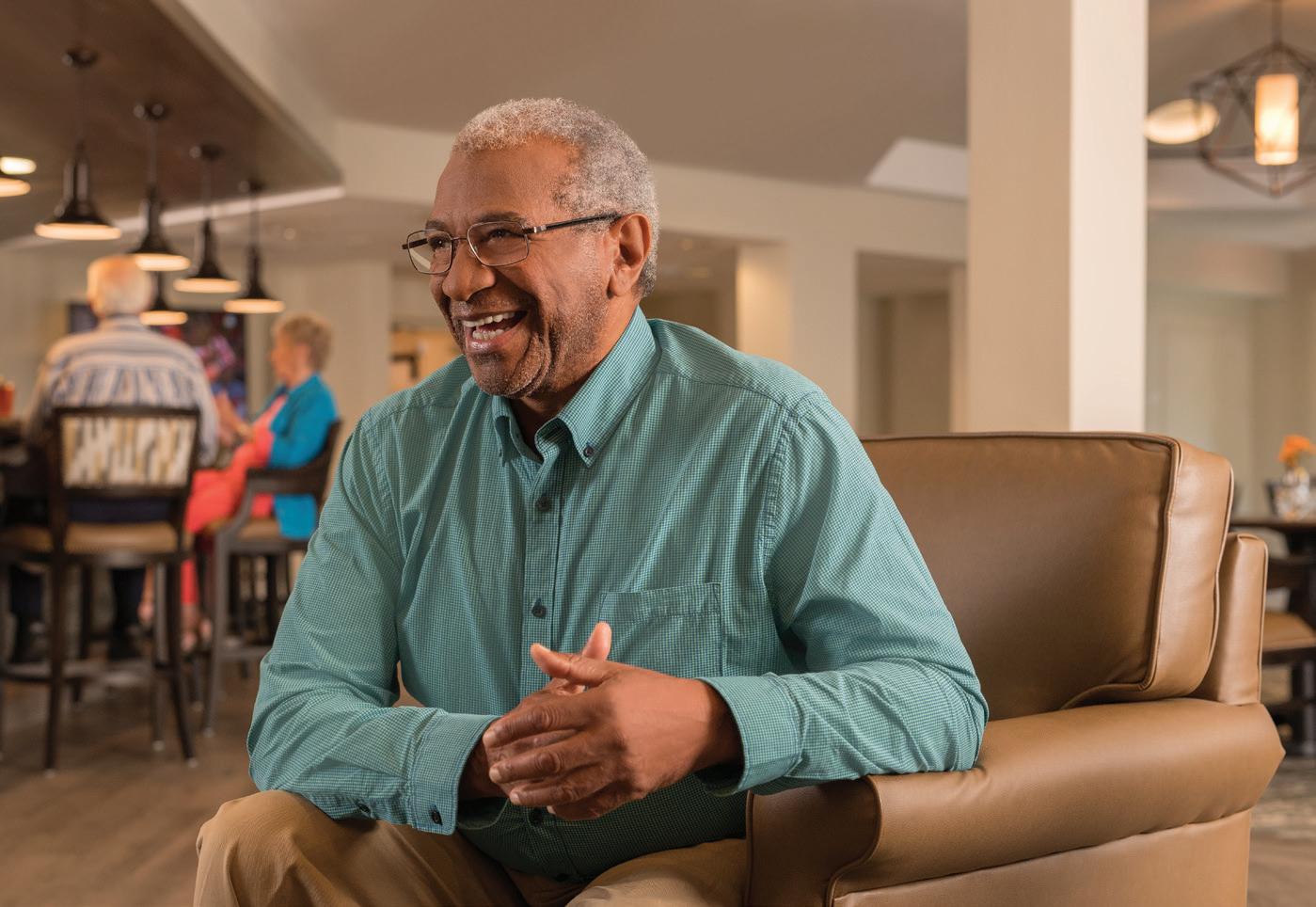


Solo aging is simply aging on your own. For most people, this means aging without a spouse, adult children, or other close relatives. Whether they are widowed, divorced, estranged, or never had a spouse or children, many solo agers find themselves in their 70s, 80s, and beyond without any immediate family members.
Long misunderstood and misrepresented, solo aging is emerging as a desirable and increasingly popular way to age. Even for individuals who didn’t necessarily choose solo aging, it can be a positive phase of life with the right attitude and some advance planning.
Anyone and everyone who is over age 65 and living independently. Solo agers are making decisions on their own as they age. It is important to remember that solo aging is not just for individuals who have always been single. For instance, an older adult may become a solo ager when their spouse predeceases them. Even individuals with kids may become solo agers if their children live far away or if they are unable to be involved in aging decisions or caregiving.
Joy Loverde is a senior living expert and industry veteran, as well as the author of The Complete Eldercare Planner and Who Will Take Care of Me When I’m Old? She joined a recent Positive Aging Sourcebook Digital Discussion on solo aging. In the last decade, Joy’s focus has shifted from helping individuals care for their elderly loved ones to helping them plan for their own future.
Yesterday. Or today. Or as soon as possible. Planning for solo aging is much easier and far less stressful if it is done BEFORE a crisis.
Especially if you realize that your circumstances will mean that you will become a solo ager, it is important to start as early as
possible to plan for the future. This includes planning for your financial, emotional, and physical well being. Solo agers need to consider how they want to live and receive care (if necessary) as they get older. They should also give serious thought to whether they want to “age in place” or move to a senior living community of some type. Aging in place means that you will be living in your current neighborhood or live in another community that is not age restricted. There are also a wide variety of senior living communities—ranging from communities where residents are fully independent but enjoy amenities to properties that provide varying levels of care for residents as needed.
Joy explained that there are community organizations, events and clubs in every town and city— many designed specifically for older adults.
With no shortage of places to meet people, you have to focus on not just meeting volumes of people, but on being a good friend and forming long-term, deep commitments. Friendships take time and perseverance, and there must be a balance of give and take. As a start, Joy recommends seeking out county and city groups for older adults run through Area Agencies on Aging. She also suggests a quick google search of “free activities” and your city or town’s name.

What do you need to be a successful solo ager?
While the specific answer varies widely according to personal desires, the short answer is quite simple: a clear, actionable plan. Solo Aging has many facets including:
• Location – Decide where you will age. Do you plan to age in place in your current private residence or move to a different location or senior living community?
• Accessibility – If you are aging in place, does your current residence need updates or modifications to accommodate your needs as you age?
• Finances – Do you have the financial means to see your plan through? Have you calculated your projected expenses?
• Legal – Both financial and medical planning may require the assistance of a legal professional. You should at the very least have a power of attorney appointed to oversee your decisions and estate if you can longer do it.
• Medical – Do you have any longterm health conditions you need to plan for? Do you have a strong family history of a certain condition? Have you appointed someone (friend, family, or attorney) as a medical power of attorney?
• Emotional – Do you have a social safety net? What can you do to create one? Do you have relationships with your neighbors or friends close by?
For more information on solo aging, download the digital discussion at retirementlivingsourcebook.com. You can also find Joy Loverde’s books at www.elderindustry.com.
Long misunderstood and misrepresented, solo aging is emerging as a desirable and increasingly popular way to age.











Our residential communities, Goodwin House Alexandria, Goodwin House Bailey’s Crossroads and The View Alexandria by Goodwin Living , support your active lifestyle and are all within easy reach of Washington, D.C. And if needed, you have access to independent living, assisted living, memory support, short-term rehab, longterm nursing care and a range of other specialized healthcare services that Goodwin Living provides.
Goodwin Living At Home helps you stay in your home and age safely and vibrantly with financial protection for future care costs.

The Goodwin Home Health therapists and nurses provide you with compassionate therapy and care wherever you call home, and they conveniently come to you.

Goodwin Hospice provides end-of-life dignity and comfort through pain management, symptom control and 24/7 on-call nursing support.
Goodwin Living helps older adults maintain overall well-being and find purpose at all stages of life, wherever they call home. We would be honored to serve you.



Every journey starts somewhere. Tanya Bodzin’s journey as a caregiver started when her husband of 55 years, Steve, began to show signs of Alzheimer’s disease. Tanya had to take on the role of caregiver and began managing the couple’s finances, something she’d never handled before. Luckily, she found support from local providers and experts early on in her journey. With their assistance, Tanya, a counselor by profession, cared for her husband, secured their financial future, and planned for her own retirement.
The first lesson that Tanya learned is that senior living providers in the DC Metropolitan region are a closeknit, interconnected, and supportive group. Caregivers often find that when they ask for help, they get not just the help they asked for but also recommendations for other options.

Steve, a successful and accomplished tax attorney, initially hid his memory issues. However, Tanya eventually became aware that he was having problems at the office.
As Tanya transitioned into the role of caregiver, a Fairfax County Senior Center she visited recommended her to the Insight Memory Care Center, where she received incredible support and education for caregivers, as well as adult day care services for Steve.
Insight Memory Care is a non-profit center with locations in Fairfax and Sterling, VA. The centers provide care, support, and education for individuals with memory impairments and their families.
“Steve started going to Insight Memory Care two days a week, but then we moved to three and eventually to five days a week,” Tanya recalled. “Otherwise, he was with me in the apartment all the time. I learned that is not the way to take care of somebody with dementia. They need the stimulation of other people. They need games and activities. One
By Christy Brudinperson cannot provide that.”
Tanya quickly found that the environment provided at Insight couldn’t be replicated in her home— even with the help of home care aides. “The aides were on their phones while Steve was watching TV. I knew he really needed to be in an environment that was more stimulating, so he went to Insight five days a week, eventually.”
During an Insight workshop for caregivers by Senior Partner Tom West, Tanya first learned about Signature Estate & Investment Advisors (SEIA) and the Lifecare Affordability Plan.
As a successful tax attorney, Steve had invested well and worked with a financial broker for years, but Tanya
was never involved. Now planning for their financial future was added to her overflowing plate. When she heard about SEIA’s focus on helping seniors in the post-retirement years when healthcare needs arise and their unique Lifecare Affordability Plan offering, Tanya knew she needed that type of hands-on help.
The Lifecare Affordability Plan is a healthcare-driven financial planning process that provides families with a strategy to afford quality care and plan for the future. Over the course of three meetings, experts help families devise a plan to afford the
Continued on page 28





Each Ingleside community has its own personality and atmosphere, and they all share a sense of spirited possibility. Enjoy maintenance-free living, daily programs, speakers, chef-inspired meals, and entertainment, plus all the amazing amenities right outside your door. Our Centers for Healthy Living provide residents to enjoy time and space to create their own journey of discovery, shaped by their unique passions and the environment of the campus they choose. To learn more about one of our engaging communities, please visit www.inglesideonline.org.
NOT-FOR-PROFIT, CARF-ACCREDITED LIFE PLAN COMMUNITIES

Continued from page 24
care that can meet their loved one’s needs within their financial means. Afterward, families feel less anxious and more confident about their options.
“After talking with Tom [West, Senior Partner] about what was in our financial portfolio, I called the broker Steve had been working with for years,” explained Tanya. “That broker told me he could also help people like me with life decisions and that he wanted to churn my account. Well, I’m no dummy. I knew that every time he was buying or selling something new, he was getting a piece of the action. I said goodbye to him.”
Tom and his team, including the Client Services Director Arvette Reid, provide both traditional wealth management and the Lifecare Affordability Plan. As a full client, Tanya had access to both services. The team helped her understand and manage her finances. They also helped her find a full-time memory care community for Steve that fit their budget. Steve lived in a memory care community for the last year of his life.
Years after Steve passed away,
are generally looking at places that the client was already considering. We help them make a comprehensive apples-to-apples comparison of the options.”
The Lifecare Affordability Plan team originally ran the numbers for four retirement communities, so Tanya could clearly see her specific financial outcomes based on different community contract types and fee structures. However, it was COVID that provided the motivation Tanya
for the first time, the sun was just pouring in, and I knew it was the right place,” Tanya noted. She called Arvette right away and signed a contract the next day.
Since moving, Tanya has been enjoying the diverse activities and amenities provided by the community. Most of all, she loves no longer being lonely.
“Greenspring is so friendly,” she said. “I’ve reconnected with people I knew before, and I’ve made lots of new friends. Meals are an event here. Residents make reservations, and there is always someone to go to dinner with. Or you can go by yourself, and you’ll meet new friends at the table. You never have to be alone.”
Tanya enjoys the onsite swimming pool and gym, as well as the plethora of clubs and activities. She recently started learning to play pickleball. “You can be busy 24 hours a day at Greenspring if you want to be,” Tanya concluded.
Tanya knew it was time to focus on her future, so she completed a Lifecare Affordability Plan that included options for housing and future potential care needs.
“We help people develop a realistic view of what they can afford in terms of senior living options and how far their money will go with different communities, contract types, and apartment sizes,” explained Arvette. “We are not a placement agency. We
needed to make a decision.
“COVID was so isolating. I couldn’t see my friends or anyone else,” Tanya said. “I knew it was time to move.”
During an open house at Greenspring, a continuing care community in Springfield, VA, Tanya told the Director of Sales that finding an apartment with abundant natural light was her top priority. He walked her over to an apartment that fit the bill. “When I came into this apartment
Taking on the caregiver role can mean facing many challenging choices. However, as Tanya found out, you can find professionals to help every step of the way—whether you need care for a loved one or financial planning for the future. Tanya was able to navigate her journey from overwhelmed caregiver to content retiree with the help of local experts who served as her guiding lights— marking the path forward every step of the way.

“We help people develop a realistic view of what they can afford in terms of senior living options and how far their money will go with different communities, contract types, and apartment sizes.”
— Arvette Reid, Client Services Director, Lifecare Affordability Plan
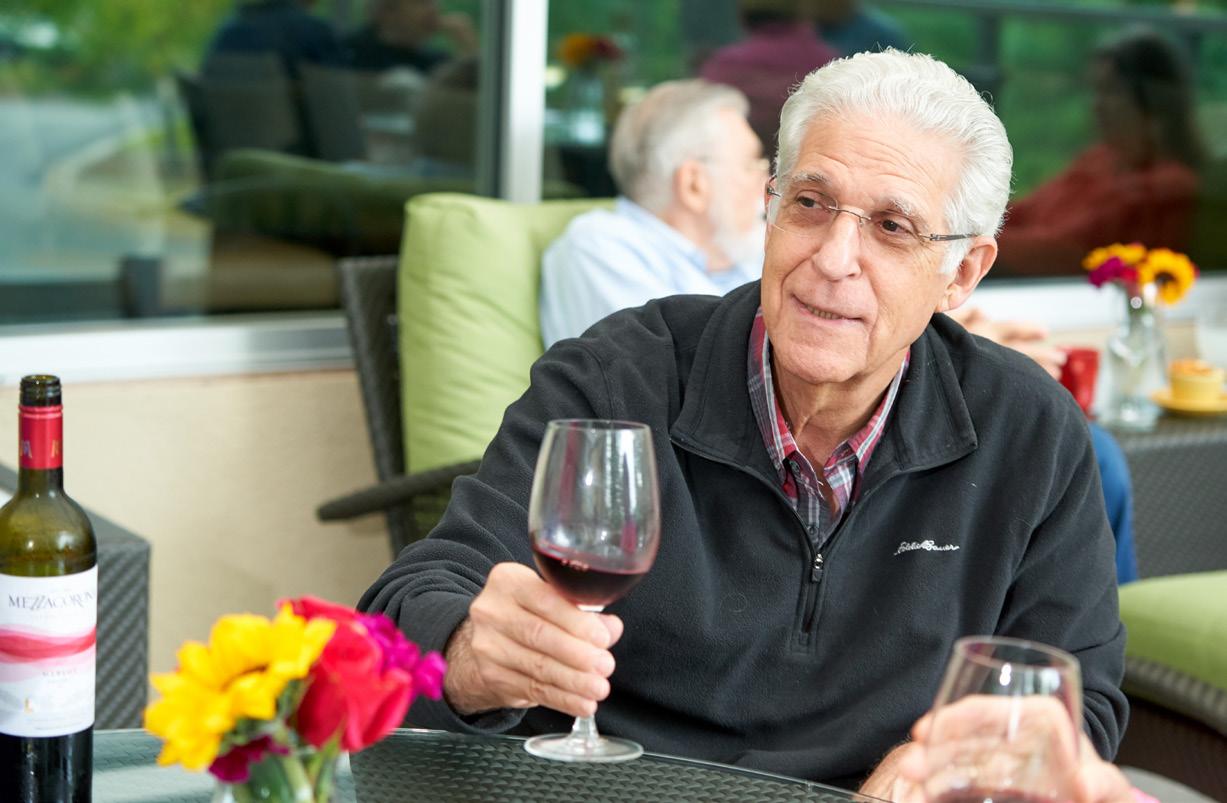













Since March 2020, thousands of people have attended Positive Aging Sourcebook’s live and interactive digital discussions on a wide variety of topics. The discussions feature experts and thought leaders from all over the world.
The 2022 Greatest Hits list is based on registrations. In 2022, we hosted nearly 80 discussions with more than 15,000 registered attendees. Our average discussion
had more than 135 attendees, with approximately 50 percent being individuals and families searching for resources and 50 percent being senior-serving professionals looking for resources and connections to people they serve. The mix of attendees varies depending on the topic.
The Greatest Hits list provides a glimpse of the topics of interest to our community. Solo Aging, Technology, Diversity and
Inclusion, Ageism, End of Life, and Universal Design all top the list . However, the beauty of our platform is that we will continue to host discussions on topics that might not be as popular but can be even more meaningful and engaging to our community. In 2023, look for more reallife stories, featuring individuals and families talking about the choices they have made and the solutions they have found.
Find these and all the digital discussions available on demand at positiveagingsourcebook.com.
1. Solo Aging Discussion with the author of Who Will Take Care of Me When I’m Old? and the best-seller, The Complete Eldercare Planner
2. Discussion with the Author of Solo and Smart
3. Award-winning author of Stupid Things I Won’t Do When I Get Old
4. Discussion on Solo Aging
5. Understanding Aphasia - Healthcare in the News
6. Panel Discussion on Solo Aging
7. Reinventing the "Senior Center"
8. Amazon Alexa together - Voice Technology for Seniors and Caregivers
9. Understanding Senior Living Contracts
10. Author of Ageism Unmasked
11. The Future of Medicine for Older Adults
12. Responding to Dementia-Related Behaviors
13. Discover a New Housing Model
14. Long-Term Care Insurance Discussion
15. Ethical and Practical Considerations Regarding End-of-Life Decisions
16. Spotlight on a Solo Aging Support Group
17. A Conversation about Aging in Place
18. An Honest Journey Through Senior Living
19. "What I Wish I Knew" panel discussion
20. Understanding Aging Life Care Management
21. Understanding Hospital Discharges
22. Managing Money: A Caregiver’s Guide to Finances
23. Helping Older Adults and Caregivers Build the Networks They Need for Successful Aging
24. Chor of It's Not That Simple: Helping Families Navigate the Alzheimer's Journey
25. Authors of Choose Your Place: Rethinking Home as You Age


The National Aging Network, headed by the Administration on Aging, includes 56 state Agencies on Aging, 622 Area Agencies on Aging, and more than 260 Native American aging programs. All individuals age 60 and older are eligible for services through this network. Most services are delivered on the local level by Area Agencies on Aging (AAAs).
AAAs are public or private nonprofit agencies designated by a state to address the needs and concerns of all older persons at the regional and local levels. AAAs operate in specific service areas that may include a city, county, or multicounty districts. AAA is a general
term—names of local AAAs may vary.
AAAs coordinate and offer services that help older adults remain in their homes or stay engaged in the community. Services vary widely, but a list of typical offerings is included below. By making a range of supports available, AAAs make it possible for older individuals to choose the services and living arrangements that suit them best.
To help individuals find services, the federal government established the Eldercare Locator. The Eldercare Locator is a nationwide service that connects older Americans and their caregivers with trustworthy local
See the table with information for local AAAs on the following page.
support resources.
Older adults and caregivers should tap into these federal, state and local resources to get the help they need to age well or to care for an aging loved one.
• Adult Day Care is available for individuals who need daytime supervision.
• Case Management Services are conducted by professionals who can assess needs and arrange for services to encourage continued independence.
• Elder Abuse Prevention Programs provide investigative services and intervention in cases of abuse.
• Financial Assistance and benefit counseling is conducted by professionals.
• Home Health Services provide needed care in the home environment.

• Home Repair Programs help older adults complete needed repairs to avoid major problems.
• Home Modification Programs provide renovations to make the home safer and more secure for individuals who choose to age in place.
• Legal Assistance is available for individuals aged 60 and older with legal problems involving government benefits, tenant rights and consumer issues.
• Nutrition Services Programs provide home delivered meals to homebound individuals and congregate meals in specified locations in the community.
• Respite Care provides caregivers with a much needed break from the constant care and supervision of their elderly loved one.
• Senior Centers offer educational, recreational and social activities for older adults.
• Transportation Programs can provide doorto-door transit for individuals who do not have private transportation and/or cannot use public transportation.
To find services near you, visit n4a.org

Tall trees and nature embrace this radiant, upscale community in the heart of Rockville catering to residents who desire premier senior living with a world of wellness. The Seneca provides an inviting and innovative lifestyle, connecting residents with natural surroundings and offering just the right amount of individualized support from our Assisted Living, Bridge Program, or Memory Care living options. With expert-led enrichment opportunities, signature wellness programs, vibrant local culture, and attentive, custom care – it’s no wonder The Seneca was recently recognized with Argentum’s 2022 “Senior Living by Design” award. Inspired, comforting, and exceptional – The Seneca is ready to welcome you home.
» All-day dining at 3 signature restaurants
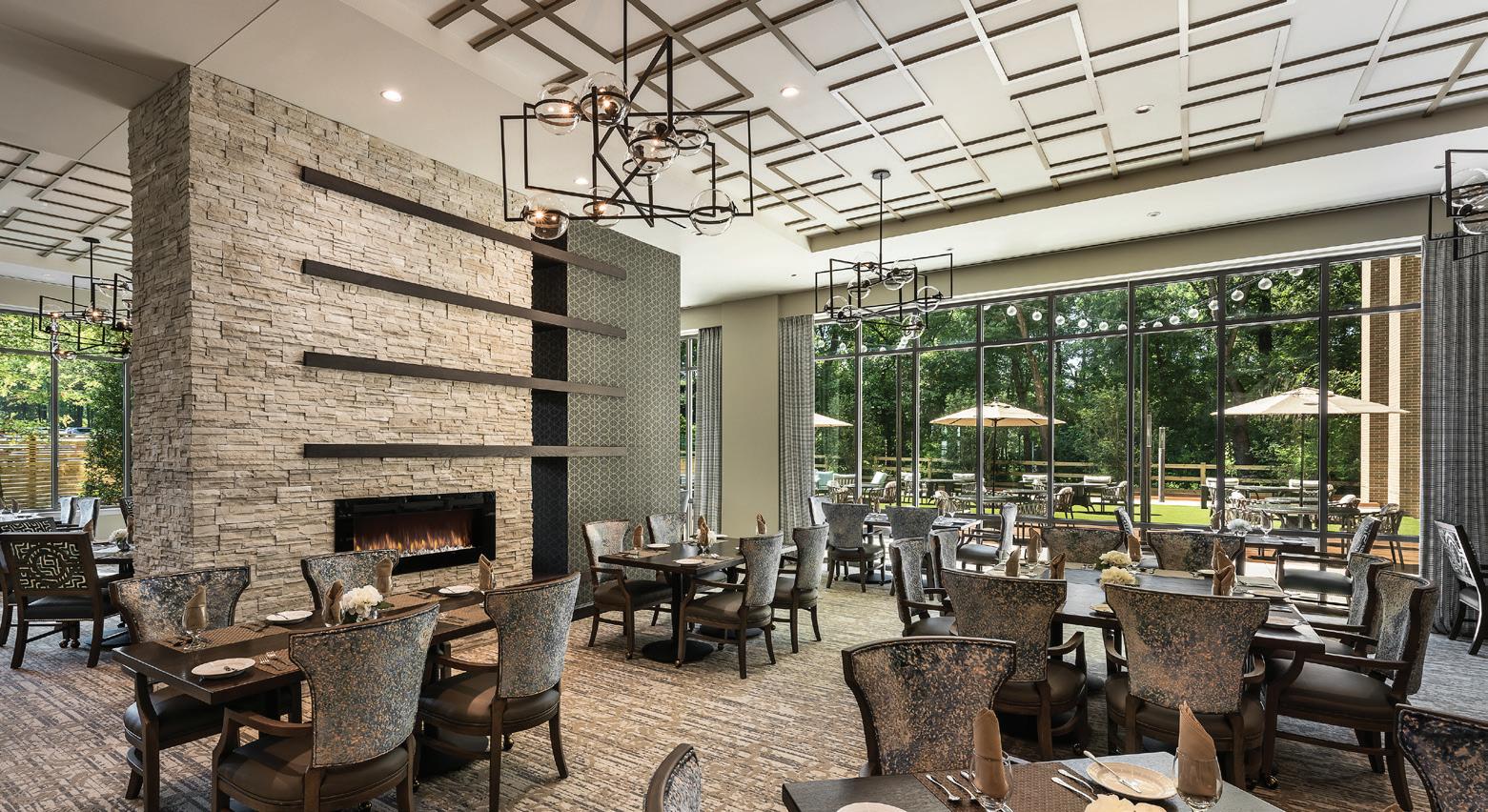
» Unparalleled amenities including wellness center, fitness center, spa, salon, and more
» Boutique-style studio, one-, and two-bedroom residences with luxury features, refined finishes, and spacious layouts

Surrounded by renowned arts and cultural venues in a convenient location on the edge of Vienna, Virginia, The Providence takes center stage with nurturing and innovative boutique-style senior living.


Combining the elegance of a luxury rental community, the extravagance of a best-in-class hospitality experience, and just the right amount of individualized support, The Providence tailors everything to help our residents thrive.

An exciting, comforting, and exceptional life is always in the spotlight at The Providence!
» Expert-led enrichment opportunities
» Signature fitness and wellness programs
» World-class restaurants headed by classically trained chefs
» 24/7 concierge services
» Onsite salon and spa
» Compassionate and personalized care

Feeling drained, confused— even scared and sad—are to be expected when a loved one approaches the end of life. You might also be overwhelmed, wondering what type and level of care they need, and where and how to get it.

Hospice care was created decades ago specifically to meet this need and make the time remaining a more comfortable, even rewarding experience for both patients and families. It is a generous program, offering up to six months or more of services, support, and other benefits— typically paid for in full by Medicare— during the last stages of life.
Despite the available six-month long benefit, the median hospice stay for Americans is just over two weeks. And the average time is even shorter in communities of color. Two weeks is just too short! More time in hospice means more comfort, more help for families and caregivers, and more room for what matters. Hospice helps you have a better life, at the end of life.
Capital Caring Health has been
providing high-quality advanced illness care for patients and their families in the Washington, DC metropolitan region for more than 45 years. Since its founding, Capital Caring Health has endeavored to improve care for those facing life-limiting illnesses through direct support of patients and their families, public education, and advocacy. In 1982, the organization was instrumental in the passage of the historic hospice bill that increased access to care for the terminally ill. That same year, Capital Caring Health opened one of the first in-patient hospice care centers in the nation in Arlington, VA.
Today, Capital Caring Health is one of the nation’s oldest and largest nonprofit providers of hospice and palliative care. The organization is proud to provide roughly $3 million in charitable care to families in need annually.
Hospice is a type of specialized medical care that provides
compassionate physical, emotional, spiritual and practical support to people in the advanced stage of illness. Delivered by an interdisciplinary team of experts, hospice care is designed to relieve pain and other symptoms and to help both patients and families improve their quality of life, typically in the comfort and familiarity of their own homes.
A person can be in hospice for up to six months or even longer, depending upon the individual circumstances. To receive the greatest benefit, a patient should spend at least two to three months in hospice care. Throughout hospice services, family members provide much of the hands-on care under the guidance and direction of hospice nurses and team members.
It is also important to note there are key differences in for-profit and nonprofit hospice providers. Instead of profits, nonprofit advanced illness and hospice organizations focus on ensuring care for every member of the community regardless of the complexity
of the case or the individual’s ability to pay. Nonprofit hospice organizations also engage community volunteers to help provide additional comfort and support to patients and families.

“One common misconception is that Hospice staff are in your home around the clock. The fact is, outside of a short-term respite or acute crisis situation, we are not allowed to be the primary caregivers of patients,” explained Director of Admissions for Capital Caring Health Chelsey Primdahl. “Many people have never cared for a sick adult or a dying person. Hospice staff help teach people how to care for their loved ones in the way that only they can."
Palliative care is specialized medical care for people living with a serious illness. It focuses on relieving the symptoms, pain, and stress of illness, with the goal of improving quality of life for both the patient and family. Anyone of any age, suffering from a progressive illness can access palliative care at
any point in their treatment. Palliative care can be provided independently or along with treatments aimed at curing the disease.
Capital Caring Health offers a unique program called Primary Care at Home that provides individuals with primary medical care in the comfort of their homes. The program serves seniors over 55 years of age who are home-limited and have an advanced illness or disability.
House calls are provided by doctors, nurse practitioners, and social workers who specialize in caring for older adults. Members of the care team use advanced mobile technology to perform in-home diagnostic tests. The
Continued on page 40

Despite the available six-month long benefit, the median hospice stay for Americans is just over two weeks. Two weeks is just too short!Capital Caring Health is one of the nation’s oldest and largest non-profit providers of hospice and palliative care.
Continued from page 39
care team is available around the clock to coordinate and provide needed care.
“The idea behind Primary Care at Home is to provide a continuum of care and help improve the quality of care for individuals as they age. Primary Care At Home removes barriers such as transportation that can keep people from accessing the critical care that they need and allows them the opportunity to stay connected to a comprehensive support team,” explained President and CEO of Capital Caring Health Tom Koutsoumpas.
Primary Care at Home uses the same team approach to care that hospice care applies. As home-limited patients age and need more care, the team is already in place to provide hospice care if or when it is needed.
“Hospice staff can do more work and do better work given more time to build a relationship,” said Chief Medical Officer Matt Kestenbaum, MD. “Instead of having a patient for just days or hours, using this model can help us serve patients for months or years. This approach to care is so much more fulfilling for the patients and the care providers.”
The Primary Care at Home program is currently serving 400 patients, who will be able to naturally transition to hospice services as needed.
Grief is a very normal and human response to loss. Each person who loses a loved one responds and grieves in unique ways. There is no right or wrong way to grieve.
Capital Caring Health Grief Counselors provide individual counseling, education and support groups virtually and in-person to help family members understand the process of grieving and healthy ways to cope. Targeted resources are provided for families with children. These grief support services are extended to the families of Capital Caring Health patients, as well as to anyone in the community who has lost a loved one.
Continued on page 118
The words “robotic pet” may initially conjure images of metal dogs with remote controls designed as kids’ toys. They are not particularly cuddly and do not evoke emotions or connections. They are certainly not pets in any true sense of the word. However, modern robotic pets are changing those perceptions and improving the lives of their owners.
With the look of highend stuffed animals and the technology to respond to human voices and touch, modern robotic pets are not mere distractions: they are companions.
Robotic pets are being deployed to help terminally ill adults and children. These robot rovers (and cats and birds) are helping to elicit emotional responses and inspiring genuine interactions from patients who are otherwise difficult to reach, including patients in the advanced stages of dementia.
Much like live animals, robotic pets have a calming and therapeutic impact. For patients who are largely disconnected from their caregivers or who may even be angry or confused, the pets can make an amazing difference in their daily demeanor.
Robotic pets respond to human voices and touch and can help dementia patients engage and feel a sense of purpose.
In many cases, having these pets gives patients a needed purpose. As the robotic pet responds to their attention with purrs, barks or chirps, patients appear more relaxed and more engaged.
“We hear from people constantly about how their loved one is a different person after getting a robotic pet,” explained Steve Cone, Chief of Communications, Marketing and Philanthropy for Capital Caring Health. “We have people telling us that their mom has the robotic cat with her 24 hours a day, or that their dad is no longer angry and confused now that he has a robotic dog.”
As part of their therapeutic programs, Capital Caring Health has long supported the Pet Services Program to help patients care for their own pets or to bring visiting pets to patients. However,
Continued on page 167

“I









thank you enough for the love and compassion you showed my grandfather. He spent his final weeks with you, and we all found comfort and peace.”
Caring for an aging loved one with multiple medical concerns can be difficult. But you don’t have to do it alone. We can help ease your burden with the support and resources you need.

Our outpatient practice is a multidisciplinary team made up of board-certified geriatricians, nurse practitioners, social workers, therapists, and pharmacists who will work together with your primary care provider to create a coordinated approach to treatment. Together, they will design an individualized care plan that not only takes into account your loved one’s concerns, but also their personal goals.
We’ll listen to you and your loved one and give you tools to help you both get back to enjoying the little things in life.
Successful
supports older adults with complex needs and their caregivers.
Senior living resources include any professional or service that makes life easier for older adults and their families. Some prominent examples include elder law attorneys and aging life care professionals.
As the older adult population has grown, so have the number of professionals and services specifically dedicated to assisting older adults. Professionals who specialize in helping older adults have the expertise and the experience to make challenging situations easier. They have seen—and done—it all before.
How can senior living resources help me?
Senior living resources include professionals who can help older adults address any challenges that come along with aging.
For instance, elder law attorneys can help individuals get their affairs in order, so there is no question what they want in terms of medical care and interventions and the disposition of their assets after death.
Aging life care professionals provide families with help navigating the vast and complex senior living industry. They can help seniors find
appropriate care environments and mediate family conflicts.
Beyond these two professions, there are hundreds of providers and resource companies that offer help specifically designed for seniors and their families.
How should I find a senior living resource?
Ask your friends and family for advice and recommendations.
Chances are, some of them have experienced the same or a similar challenge and may be able to suggest a course of action, or even a specific professional to help.
Use our research. Sourcebook features detailed articles, checklists, featured listings and comprehensive tables in each section. Use these resources to begin your search for a professional who can help you and your family.
Movement disorders, including Parkinson’s disease and related disorders, can disrupt everyday life. Patient’s experience a wide range of symptoms—from movement difficulties to mood disorders to cognition challenges. These conditions also typically progress with time. But help is available.
The available treatments for Parkinson’s disease, essential tremor, dystonia and other movement disorders have improved dramatically during the past decade. Specialized neurologists and neurosurgeons now have a wide array of treatment options to help patients achieve their best possible quality of life.
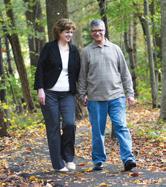
For decades, individuals with Parkinson’s or other movement disorders were treated primarily by general neurologists and had limited choices in terms of medicines. To see specialists, patients would have to travel to large, academic institutions. That is no longer the case.
“One of the biggest hurdles to doing well with Parkinson’s compared to doing just okay was access to specialty care,” explained Dr. Drew Falconer, Medical Director and Movement Disorders Specialist at the Inova Parkinson’s and Movement Disorders Center. “We created an academic center in a community-
Essential tremor is a movement disorder in which a tremor comes out with activity. For instance, when a person is writing, their hand may begin to shake, but when they are at rest, their hand will not shake.
Dr. Falconer noted that nearly 90 percent of essential tremor patients are treated only by a primary care physician. However, he said, essential tremor responds well to newer pharmaceutical protocols—and treatments like Deep Brain Stimulation can eliminate it completely.
Neurologists and associated specialists focused on movement disorders provide treatment for:
• Parkinson’s disease
• Essential Tremor (ET)
• Dystonia, spasticity and other tone issues, including those resulting from multiple sclerosis or neurological injury
• Tic disorders
• Huntington’s disease and other hyperkinetic movement disorders
• Parkinsonisms, including multisystem atrophy (MSA), progressive supranuclear palsy (PSP) and corticobasal degeneration (CBD)
based setting and all of a sudden that accessibility problem fell by the wayside.”
Dr. Falconer noted that since its founding seven years ago, the Inova Parkinson’s and Movement Disorders Center has grown dramatically. The center now employs five movement disorder specialists in five offices and
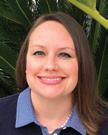

treats more than 3,500 Parkinson’s patients annually.
In addition to being more accessible, treatments for Parkinson’s disease and related disorders have also become more advanced and reliable.
Continued on page 66
Low vision is vision loss that is uncorrectable through glasses, surgeries, or medications. Low vision impacts one’s ability to complete everyday activities. One in ten people over age 80 have this issue, but many are unaware of what it is and what can be done about it.
The first signs of low vision may be trouble reading, driving (especially at night), or recognizing people’s faces. An increase in falls can also be an indicator of low vision. Different eye conditions—from age-related macular degeneration or glaucoma to diabetic retinopathy—cause various vision challenges. However, all the conditions that cause low vision can make everyday activities more difficult!
It is important to note that, while one’s chances of low vision increase with age, permanent sight loss or going blind is not a normal part of aging.

In the case of low vision, sight cannot improve. However, individuals can live with low vision and continue to be active and engaged. There are strategies and tools available to help patients adjust to current vision. These supports range from magnification and environmental changes to learning how to use different senses (such as touch or hearing).
Service professionals, such as a low vision specialist, can work with patients to develop a comprehensive

rehabilitation plan. This plan will be developed with the individual’s personal goals in mind. Goals may range from regaining employment to staying safe in the home. No matter what the patient may want to do, there are hundreds of resources available to help.
Losing your sight does not mean losing your independence. There are many services, supports, and professionals available to help. With assistance in place, many people with low vision go on to live full lives.
If you or someone you know is experiencing low vision, learn more about what can be done to help. Connect with the Prevention of Blindness Society of Metropolitan Washington (POB), a nonprofit with free services and resources for people with vision loss, at (301) 951-4444.

• difficulty reading?
• difficulty walking down stairs?
• a hard time seeing or driving at night?
• a fall in the last year?
If you, your loved one, or clients answered “yes” to any of these questions notify your doctor and call our information and resource line at (301) 951-4444.
As we age, some vision changes are normal, however others are not. Have you had . . .The first signs of low vision may be trouble reading, driving (especially at night), or recognizing people’s faces
Acccording to the National Association of the Deaf (NAD), nationwide relay services were first required by the passage of the Americans with Disabilities Act (ADA) in 1990. Relay services enable people who are deaf or hard of hearing, or who have a speech impairment, to communicate via telephone with a person who can hear.
States implement their own individual programs and services vary from state to state.
How do relay services work?
Most states offer traditional relay services and other accommodations.
To make a call using relay services, users simply pick up the phone and dial 7-1-1. After dialing, users are automatically connected to a communications assistant.
It is important to note that relay service users who are experiencing an emergency should still dial 911 directly.
What types of relay services are available?
Traditional relay services are also referred to as TTY. A TTY has a keyboard, which allows the user to type their side of the conversation, and a text screen to read the other person’s responses. After the TTY user types their side of the conversation, an operator reads the text to the other person. As the other person speaks in response, the
Do you find it difficult to use a standard phone? Do people ask you to repeat yourself during telephone conversations? Do you miss important calls because you can’t hear the phone ring? The Maryland Accessible Telecommunications (MAT) program is here to help by giving Maryland residents the opportunity to apply for State-provided telecommunications equipment to independently make and receive calls. Once you qualify, a skilled evaluator meets with you to determine the best device to support your day-to-day communications. The MAT program has a variety of equipment solutions to support clearer communication, including:
• Amplified phones
• Tablets
• Ring signalers
• Phones with large and/or high contrast buttons
• Captioned Telephones
• And more
For more information: 800-552-7724 | 410-767-7253 (Voice/TTY) 410-801-9618 (Video Phone) | MDMAT.org
operator types the spoken words, so the TTY user can read them on their device screen.
Using Hearing Carry-Over (HCO), users who can hear but have difficulty speaking or being understood over the telephone are able to type their side of the conversation, which is then voiced to the other participant by the operator.

Speech-to-Speech (STS) is a similar service that assists individuals who have mild to moderate difficulty speaking and can hear clearly on the phone. Users speak with their own voice or with an assistive device and the operator re-voices what is said, as needed. This service may be particularly helpful for people living with cerebral palsy, multiple sclerosis, Parkinson’s disease, and other conditions.
Using Voice Carry-Over (VCO) , people who can speak clearly but have difficulty hearing what is being said over the phone
Continued on page 92
Money matters. And money matters can be complicated. Medical bills, insurance invoices, mail, bank statements, and retirement account information can pile up—and something important can easily be missed. But there are professionals who can help.
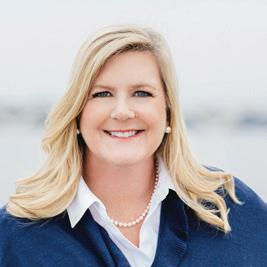
Daily Money Managers (DMMs) are financial professionals who handle daily money matters for clients including paying bills, establishing budgets and keeping records. DMMs serve older adults, people with disabilities, busy professionals, high net worth individuals, and small businesses.
DMM services provide value in monitoring medical bills, ensuring that Medicare and other health insurance have paid their share before the client pays any balance due. Additionally, DMM assistance in assembling papers needed for income tax preparation and in documenting medical and charitable contributions often means the client will pay lower taxes each year.
Since Daily Money Managers often work with elderly persons living in their homes, they can provide recommendations to other seniorserving professionals as needed. If they see that a client is in any way “at risk” due to impaired vision, physical limitations, or confusion, they can make referrals to community resources, including care managers, attorneys, and accountants.
Older adults who need help paying bills and managing accounts
Individuals with disabilities who need assistance with personal finances
Victims of identity theft or fraud
Adult children who are stepping in to help a parent manage finances following a hospitalization or because of declining mental or physical abilities
Family members who are managing finances following the death of a loved one
High net worth individuals and small business owners who need help keeping accounts updated or preparing information to file taxes.
Because finances are a highly personal matter, hiring a DMM is an important and individual decision. Referrals from a friend, colleague, or other professional are a good place to start.
The American Association of Daily Money Managers’ website (www. aadmm.com) can also provide valuable information that will help consumers learn more about daily money management and find a reliable DMM. The association represents professionals in the field by providing information and education to members and the public and maintaining a network of dedicated

Visit

professionals. The website includes a “Find a DMM” search function that can help consumers find qualified professionals in their area.
703.868.8664

Few things are guaranteed in the game of life. Healthcare costs just might be one of them. At some point, most people will face ongoing and potentially large healthcare costs. The odds increase dramatically with age. Now is the time to prepare for healthcare costs as you age. Follow this simple path for planning.
• Do you have a plan to get to the store and doctor appointments when you stop driving?
• Have you considered having services come to your home when you stop driving?
• Do you know how your health conditions will progress with age?
• Have you thought about staying in your home versus moving elsewhere as you age?
• Do you know the senior services support organizations in your community?
• Do you have a support system in place if you are caring for a loved one with Alzheimer’s Disease or another form of dementia?
• Do you have social security and if so, do you know your monthly income?
• Do you have a pension and if so, do you know your benefit income?
• Do you understand social security and pension survivor benefits?
• Do you know the direct and indirect costs of your health insurance?
• Are you saving to cover for emergency healthcare costs?
• Do you understand what Medicare will and will not pay for?
• Do you understand the three qualification areas to apply for Medicaid financial assistance?
• Do you know how your monthly income will change if one spouse dies?
• Do you know the kinds of expenses that could be considered deductible when faced with a chronic illness?
• Have you consulted with your tax preparer to optimize deductions relating to increased healthcare costs for this year?
• Do you know how the SECURE Act affects your retirement?

Continued from page 48
• Do you work with a financial professional?
• Do you know when to change your investment strategy (cash, CDs, bonds, stocks, etc.) based on an increase in healthcare costs?
• Have you considered if it still makes sense to have accounts at multiple financial institutions versus simplifying or consolidating?
• Can family members access and understand your accounts to help when needed?
• Do you understand what your LTCI policy will and will not pay for?
• Do you know if your policy has a maximum payout?
• Do you know your options if asked to pay a higher premium?
• Do you know the criteria for submitting a claim?
• Are you aware of the actual cost of care compared to your LTCI reimbursement amount?
• Do you plan to stay in the same area, move closer to family, or move to warmer weather?
• If you want to age in place in your home, have you had your home assessed by a healthcare professional for livability?
• If you are planning to work with an agency to provide help in the home, have you researched the hourly/daily fee?
• If you are considering moving to a retirement community, do you have an idea of the services offered and pricing models?
• Are you or your loved one in need of 24-hour care?
• Are you familiar with all of the senior housing options?
If the answer is YES to all of these questions, welcome to a financially feasible retirement.
If the answer is no to some of these questions, then start planning now: lifecareaffordability.com

























Medicare is complicated. It is also a vital component of the U.S. healthcare system that every citizen should understand. Enrolling in Medicare is a major milestone that for many individuals means better healthcare and lower costs. Before picking a Medicare option, consumers should familiarize themselves with some key facts.
Medicare is a federal program that offers health insurance to American citizens and legal residents over the age of 65 and those with qualifying disabilities.
Medicare has four parts: A, B, C, and D.
Part A – Covers hospital stays, limited skilled nursing and rehabilitation care, limited home health care, and hospice care. There is no cost for this coverage for most Americans over the age of 65. Parts A and B are sometimes known as Original Medicare.
Part B – Covers doctor visits, surgeries, labs, tests, emergency room care, urgent care, medical equipment, and a variety of other services not covered under Part A. Consumers pay premiums and co-pays and must meet deductibles before Medicare pays. Premiums are based on income and change annually.
Part C – Frequently called Medicare Advantage Plans, these provide an alternative for those who want more coverage than what Part A and Part B offer. Medicare Advantage plans are operated by private insurance companies and provide benefits that meet or exceed those found in Original Medicare, as well as additional benefits for dental, vision, hearing and other health needs. Plans usually include Part D coverage as well. Care is delivered by an approved network of providers.
Part D – Prescription drug coverage administered by Medicare. It gives beneficiaries the opportunity to purchase retail prescriptions at an affordable, discounted rate. Provided as a stand-alone plan or as part of a Medicare Advantage plan.
Medicare Supplement Plan - Also known as Medigap, these plans are offered by private insurance companies to fill the gaps that Original Medicare doesn’t cover They cover deductibles, copayments and other services not covered by Parts A and B.
If you ARE NOT receiving Social Security or Railroad Retirement benefits when you turn 65, you will have to sign up for Medicare during your IEP. Your IEP begins 3 months before your 65th birthday month and ends 3 months after your 65th birthday. YOU WILL NOT RECEIVE A REMINDER FROM THE GOVERNMENT TO SIGN UP. Sign up at ssa.gov.
If you ARE receiving social security benefits prior to age 64 and nine months, you’re automatically enrolled in Medicare A and B. Coverage will begin on the first day of
Learn the basics. Research costs. Use online resources: www.medicare.gov
Medicare and You Handbook 2022— available at www.medicare.gov
www.ssa.gov — to confirm your eligibility
Get FREE counseling and assistance to find the right plan: VA Insurance Counseling and Assistance Program (Virginia only): www.vda.virginia. gov/vicap.htm
State Health Insurance Assistance Programs (all states): www.shiptacenter.org
Medicare Portal (select states) — Staffed by licensed insurance agents who can provide assistance and complete enrollment: www.medicareportal.org
Learn what your Medicare enrollment options are if you are working past 65 and choose to maintain your employer or union-provided health plan.
Set a reminder to apply for Medicare under your Initial Enrollment Period (IEP) , which begins 3 months prior to your 65th birthday and lasts until three months after your birthday. This can help you avoid penalties.
your birth month, and your card will be sent automatically.
If you do not enroll in Medicare Parts A, B and D when you are eligible, being late can result in financial penalties that could last the rest of your life. For instance, if you do not enroll in Part B during your IEP or another Special Enrollment Period, the federal government will charge you a 10 percent penalty for every 12 months you delay.
Delaying enrollment will also delay coverage and potentially expose consumers to large healthcare bills.
If you wish to enroll after your IEP has expired and you
Legal issues that affect people as they age and people with special needs are growing in number. Our laws and regulations are becoming more complex, and each state has different laws. Actions taken with regard to a single matter may have unintended legal outcomes.
It is important for attorneys working with seniors, people with special needs, and their families to have a broad understanding of the laws that may have an impact on a given situation to avoid future problems. Elder and Special Needs Law encompasses many different fields of law. Some of these include:
• Preservation/transfer of assets seeking to avoid spousal impoverishment when one spouse enters a nursing home
• Medicaid
• Medicare claims and appeals
• Social Security and disability claims and appeals
• Supplemental and long-term health insurance issues
• Tax planning
• Disability planning, including use of durable powers of attorney, living trusts, “living wills” for financial management and health care decisions, and other means of delegating management and decision-making to another in case of incompetency or incapacity
• Access to health care in a managed care environment
• Conservatorships and guardianships
• Estate planning, including planning for the management of one’s estate during life and its disposition on death through the use of trusts, wills and other planning documents
• Probate and administration of estates
• Administration and management of trusts
• Long-term care placements in nursing homes and life-care communities
• Nursing home issues, including questions of patients’ rights and nursing home quality
• Elder abuse and fraud recovery cases
• Housing issues, including discrimination and home equity conversions
• Age discrimination in employment
• Retirement, including public and private retirement benefits, survivor benefits and pension benefits
• Health law
• Mental health law.
Source: www.naela.org

An advance directive is a legal document that details medical and healthcare decisions that should be made on behalf of a patient if they are no longer able to make decisions. The document has two distinct parts.
The first part, sometimes called a living will, ensures that patients receive only the life-prolonging treatments they select. Life-prolonging treatments are efforts that will not cure a terminal condition but will prolong dying. They include hydration (giving water) and nutrition (giving food) by tube, machines that breathe for you, and other kinds of medical and surgical treatment.
Advance directives also allow patients to name an agent to act as their decision maker if they become incapacitated. This second part of an advance directive is often called a medical power of attorney or a
durable power of attorney for health care. The person named to make decisions is a “health care agent.”
What happens if I cannot give my consent for treatment?
That is where an advance directive comes in. Adults can sign an advance directive to make their choices
Catherine Stavely is a leader in Elder Law with over 25 years experience. She consistently is recognized as one of the top lawyers in the field.

Elena Sallitto is a Certified Elder Law Attorney (CELA) through the National Elder Law Foundation, one of only seven in Maryland. She is the current President of the MD, DC Chapter of NAELA and an adjunct Professor of Elder Law.


Dalia Alezra graduated in 2021 from University of Baltimore with the hopes of practicing criminal law but quickly found her passion in Elder Law and protecting vulnerable communities. She joined our firm in July 2021.
about medical treatments known in advance. If you become incapacitated, doctors or other caregivers can use this document to deliver only the medical treatments you want. Advance directives also give patients the option to appoint an agent to make decisions for them if needed.
Continued on page 56
We empower the elderly and people with disabilities to live with dignity, on their own terms, and to achieve the best quality of life possible. We provide services in a welcoming, informal office setting and treat our clients as family. We are mindful of the challenges our clients face and offer meetings in their homes, in hospitals, in nursing homes, or wherever they are most comfortable. We help protect families from debilitating care costs, keeping assets available for spouses and dependent family members or those with disabilities.
Legal Services include:
• Planning for Medical Assistance/Long Term Care Applications and Appeals
• Special Needs Financial Life Plans
• Powers of Attorney, Medical Directives, Guardianships

• Creation and Administration of Wills and Trusts
• Prevention and Detection of Financial Exploitation
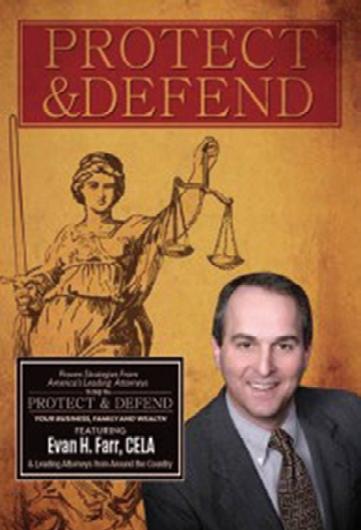

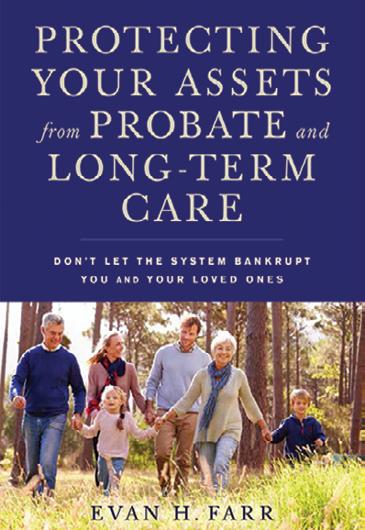
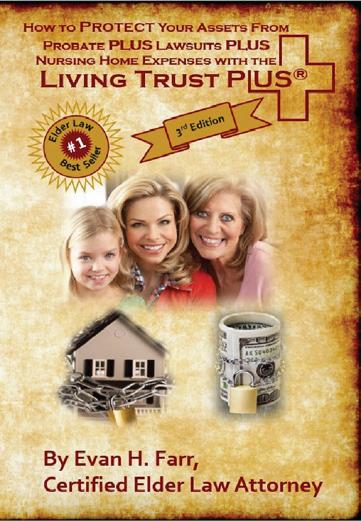
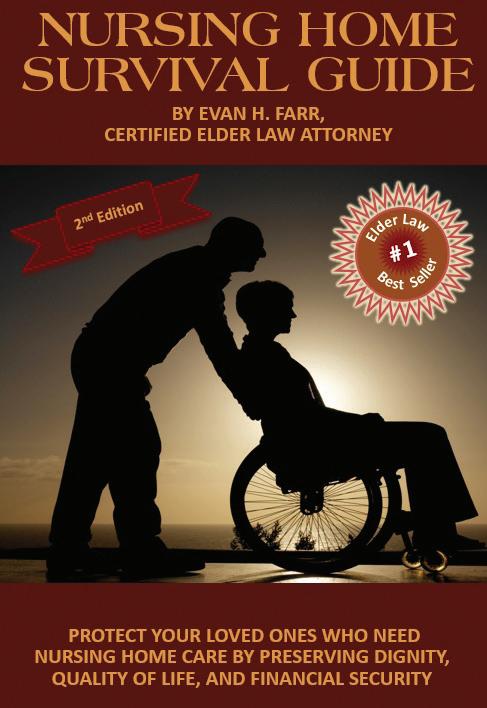
Continued from page 54
What happens if I cannot make decisions and I have no advance directive?
In Maryland, if you don’t have an advance directive—and later you can’t speak for yourself—usually your next of kin will make health care decisions for you. Even if you want your next of kin to make decisions for you, an advance directive can make things easier for your loved ones by helping to prevent misunderstandings or arguments about your care.
How do I select a health care agent?
A health care agent can be named in an advance directive. This person has the authority to see that doctors and other health care providers give you only the type of care you want. Before naming an agent, be sure to talk with the person and confirm they are willing to accept this responsibility. Do I need a lawyer to help me

for health care.
make an advance directive?
While you may want to consult an attorney, you do not need one to prepare either type of advance directive.
To make your advance directive valid, it must be signed by you in the presence of two witnesses, who will also sign. If you name a health care agent, make sure that person is not a witness. Maryland law does not
require the document to be notarized. You should give a copy of your advance directive to your doctor, who will keep it in your medical file, and to others you trust to have it available when needed.
How do I get advance directive forms?
To be valid in Maryland, your advance directive does not have to be on any particular form. Three example forms are highlighted below, but many more are available. Consumers should select one that meets their needs and reflects their values.
• National Hospice and Palliative Care Organization (NHPCO) www.nhpco.org
• Aging with Dignity www.agingwithdignity.org
• Md. Office of the Attorney General www.marylandattorneygeneral.gov
For additional information, visit www. marylandattorneygeneral.gov
Have you been told it is illegal to transfer assets within five years of going into a nursing home? False! You have options!
Have you been told by a government agency, hospital discharge planner or nursing home, if your spouse is in a nursing home you must spend down your resources before being eligible for any assistance? False! You have options!
Has the nursing home told you don’t need an attorney? False! You have options!
Get the facts. Call us to reserve your place at our next free seminar.
The second part of an advance directive is often called a medical power of attorney or a durable power of attorney


Organize and outline all the information pertinent to your situation.
If you are calling on behalf of a loved one, make sure that you have as many specific details as possible.
It is not unusual to speak only to an assistant during an initial call. Here are some questions to ask this person:
Use our list to call some attorneys.
How long has the attorney been in practice?
Does his or her practice emphasize a particular area of law?
How long has he or she been in this field?
What percentage of his or her practice is
devoted to Elder or Special Needs Law?
Is there a fee for the first consultation, and if so how much is it?
Given the nature of your problem, what information should you bring with you to the initial consultation?
When you have found a prospective attorney, make an appointment to see him or her. After you have explained your situation, ask:
What will it take to resolve it?
Are there any alternate courses of action?
What are the advantages and disadvantages of each possibility?
How many attorneys are in the office?
Who will handle the case?

Aging Life Care / geriatric care management is a holistic, clientcentered approach to caring for older adults or others facing ongoing health challenges.
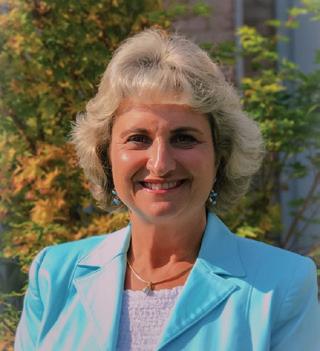

An Aging Life Care Professional™, also known as a geriatric care manager, is a health and human services specialist who acts as a guide and advocate for families who are caring for older relatives or disabled adults. The Aging Life Care Professional is educated and experienced in any of several fields related to aging life care / care management, including, but not limited to gerontology, nursing, social work, psychology or occupational therapy.
The Aging Life Care Professional assists clients in attaining their
maximum functional potential. The individual’s independence is encouraged, while safety and security concerns are also addressed. Aging Life Care Professionals have extensive knowledge about the costs, quality and availability of resources in their communities.
Aging Life Care Professionals are members of the Aging Life Care Association™ (ALCA) and differ from Patient Advocates, Senior Advisors, Senior Navigators and Elder Advocates. ALCA members must meet the stringent education, experience and certification requirements of the organization, and all members are required to adhere to a strict code of ethics and standards of practice.
Aging Life Care Professionals
provide guidance to help families ensure quality care and an optimal life for those they love through:
• Assessment and monitoring
• Planning and problem-solving
• Education and advocacy
• Family caregiver coaching
• Long-distance caregiving
Aging Life Care Professionals are engaged to assist in a variety of areas, such as:
• Housing – helping families evaluate and select the appropriate level of housing or residential options.
• Home care services –determining the types of services that are right for a client and assisting the family to engage and monitor those services.
• Medical management –attending doctor appointments; facilitating communication
Continued on page 60
Our team of dedicated Care Managers are
Continued from page 59
between doctor, client and family; and if appropriate, monitoring client’s adherence to medical orders and instructions.
• Communication – keeping family members and professionals informed as to the well-being and changing needs of the client.
• Social activities – providing opportunities for the client to engage in social, recreational or cultural activities that enrich quality of life.
• Legal – referring to or consulting with an elder law attorney; providing expert opinions for courts in determining level of care.
• Financial – may include reviewing or overseeing bill paying or consulting with an accountant or client’s Power of Attorney.
• Entitlements – providing information on Federal and state

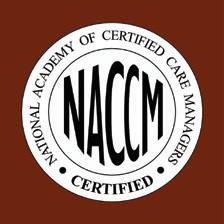
entitlements; connecting families to local programs.
• Safety and security – monitoring the client at home; recommending technologies to add to security or safety; observing changes and potential risks of exploitation or abuse.
• Long-distance care –coordinating the care of a loved one for families that live at a distance, including crisis management. Local, cost-effective resources are identified and engaged as needed. A care plan tailored for each individual’s circumstances is prepared after a comprehensive assessment.
How do you know that you need an Aging Life Care Professional?
You may need an Aging Life Care Professional if:
• The person you are caring for has limited or no family support.
• Your family has just become involved with helping the individual and needs direction
about available services.
• The person you are caring for has multiple medical or psychological issues.
• The person you are caring for is unable to live safely in his/her current environment.
• Your family is either “burned out” or confused about care solutions.
• Your family has limited time and/ or expertise in dealing with your loved ones’ chronic care needs.

• Your family is at odds regarding care decisions.
• The person you are caring for is confused about his/her own financial and/or legal situation.
• Your family needs education and/or direction in dealing with behaviors associated with dementia.
• You live at a distance from your loved one.
Thank you to the Aging Life Care Association™ for permission to share this information. You may learn more about Aging Life Care™ at aginglifecare.org.

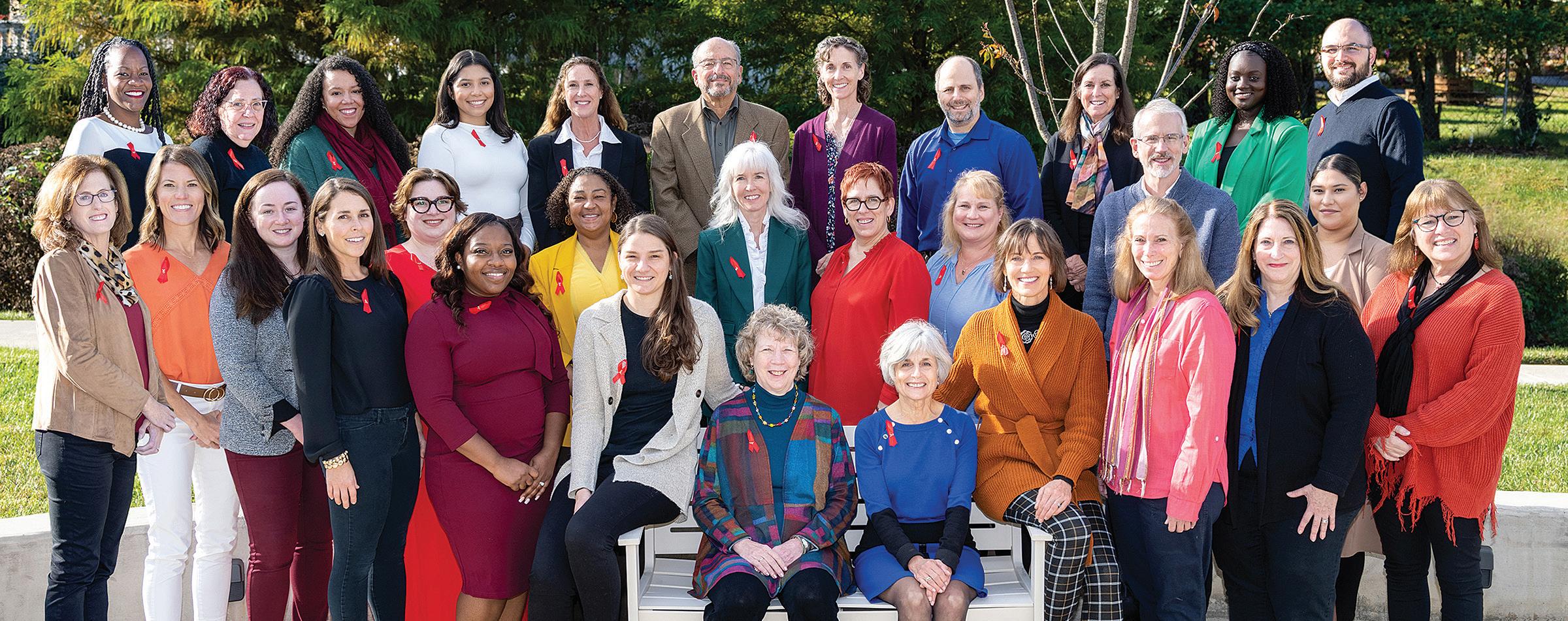
Aging life care managers are an essential part of the modern senior living industry. They serve as advocates for older adults, ensuring that their needs come first. They are also a crucial part of the growing positive aging movement.
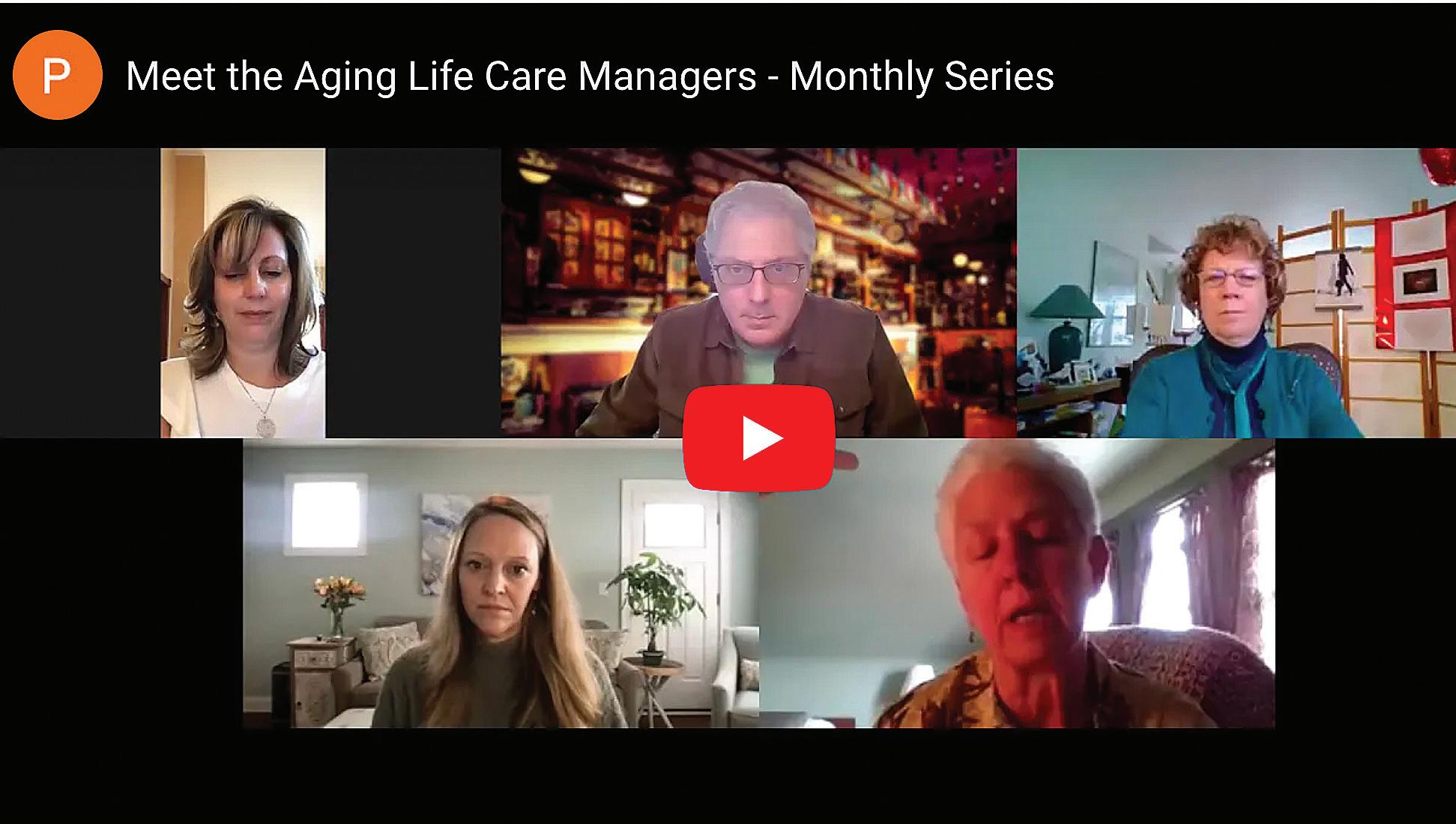


With the expert guidance of aging life care managers, positive aging is always possible—whether you want to age in place, find a luxurious community, recover after a surgery or illness, or help a loved one who is struggling with dementia or another illness. Recently, Sourcebook asked several local aging life care managers to share their insights. Here are a few of the questions from the audience—along with the answers from the care managers.
Q: Are case managers and care managers the same thing?
Susy Elder Murphy, Owner, Aging Well Eldercare: No. Case managers typically work with patients
in hospitals. It is their job to get you out of the hospital, whether you are going to a rehabilitation facility or to your private residence. Insurance companies also sometimes assign case managers to individuals with chronic conditions like diabetes to help them manage their care. Case
managers are available to assist with one specific problem.
Aging Life Care Managers, on the other hand, look at the whole picture to help older adults and their families create a plan for aging well that addresses emotional, medical and financial needs.
Q: Are care management services expensive?
Kate Caldwell, Eldertree CEO and Gerontologist: It is a myth that aging life care managers only work with families with a lot of resources. I would say about 15-20 percent of the clients that I serve are lower income with modest resources. In those cases, we’re actually helping them navigate the system because it’s extremely complicated to get aid, waivers, and other benefits you may be entitled to. Care managers are hired by the hour, so you can get as little or as much help as you need and only what fits into your budget.
Q: I’m 78. My husband is 81. We’re still fully functional, but we realize
that might change in the future. When should we start interacting with a care manager?
Denis Valerio, Care Manager, The Option Group: Care managers actually work with a lot of clients who are healthy and independent, but they want to plan for the future. If you have an established relationship with a care manager, if the need arises, you can call them, and they’ll be ready and able to act quickly to get you the help you need. It is always better to start the process of planning for aging before there is a crisis!
Q: What is the role of a care manager after someone moves to a senior living community?

Susy: For some families, that really is the task—helping them find the right community for their loved one and then guiding them through the transition. In other situations, the family may be far away, or they don’t feel qualified to monitor and evaluate care. In those cases, we stay involved and can advocate for the needs of the older adult.

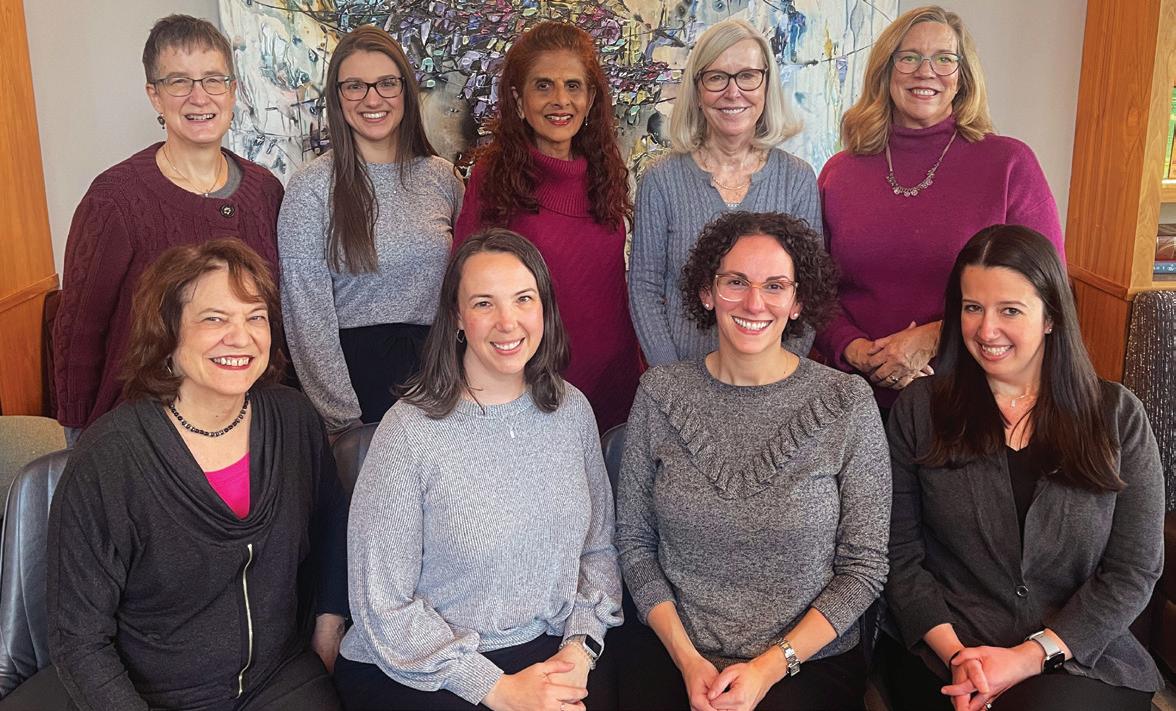
Kate: I would add that if a resident at a senior living community needs to go to the ER, the staff cannot go with them. Care managers are on call 24/7, so we can show up at the emergency room and make sure the patient is taken care of and has an advocate present at all times.
Questions and answers were edited for clarity and brevity.
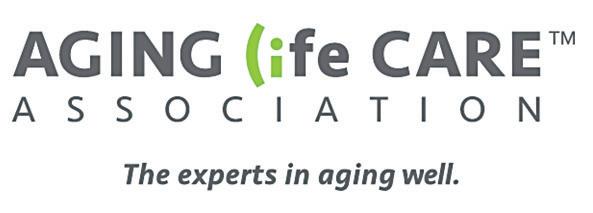
Here’s what an Aging Life Care™ Professional (aka Geriatric Care Manager) did for you today:
1. Listened. She* listened to your concerns and began to assess your short-term and long-term needs with regard to caring for a parent. She heard that your loved one wants to age in place, but the house, the finances and her ability to care for herself has diminished.

2. Asked questions. She asked about important aspects of your life and the life of an aging loved one. How has quality of life diminished? What worries you the most? What happens when you talk about your concerns to your loved one? What motivates him/her? Who has Power of Attorney? What is the medical history? What is the financial picture?
3. Created a mutually agreeable plan of care. The Aging Life Care Professional assessed the risks and needs and created a dynamic plan of care to solve problems and monitor outcomes. She helped you select a home care company. She did a home
safety evaluation and coordinated changes. She tracked medical appointments and made sure medication management was in place. She advised you on senior living communities if desired. She made sure your loved one had purposeful and enjoyable things to do each day.
4. Gathered information and created an emergency file. She put all the pieces of information together (doctors, medications, medical history, do not resuscitate (DNR) order, family contacts, legal contacts and other documents) and told you that she would be there for you and your loved one 24/7 when they go to the doctor or hospital. She was there when you went on vacation, so you could enjoy a break.
5. Became the neutral party. She helped you and your loved one meet common goals. And most importantly, she helped you be the daughter,** instead of a harried, potentially short-tempered caregiver.
Through Care Management, Seabury provides professional guidance and support for older adults, their families and caregivers that focuses on maintaining and enriching quality of life.
Seabury Care Managers are highly experienced, licensed social workers who guide older adults and their families through the process of planning for long-term needs and respond to urgent situations.

We provide counsel to families on key issues, advice on next steps, and connections to vetted resources to help make positive aging possible.
Life Enrichment Specialists are experienced and educated companions for older adults that need a helping hand maintaining their quality of life.
Seabury’s Life Enrichment services support older adults in activities that foster conversation and social interaction. This program addresses isolation and re-engages clients in their hobbies and passions.


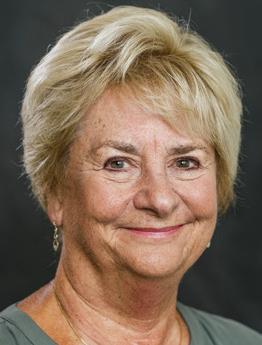
Use this checklist to interview professionals:
What is your area of expertise?
How long have you been working with senior clients?
What certifications or licenses do you have?
What are your professional credentials?
What special training have you received?
Can you provide examples of other clients you have worked with who had situations similar to mine?
Do you work with other professionals to provide referrals if needed?
Are you available for emergencies?
What are your fees? (These should be provided to the consumer/responsible party in writing prior to services starting.)
Can you provide me with references?
What resources will it take to handle this situation?
Are there any alternative courses of action?
What are the advantages and disadvantages of each alternative?
Who will be working with you?
How many professionals may be involved? What about off-hours and backup?
How are fees computed?
How are travel time and mileage handled?

How are services terminated?
How often do you bill?
Are there additional out-of-pocket fees?

Continued from page 44
“Parkinson’s is a problem of a chemical being low, and that chemical is dopamine,” Dr. Falconer explained. “These patients are a car driving around, and their tank of gas is empty. The gas we have to give them to fill up their tank is dopamine. It’s very much
akin to your type 1 diabetics who need insulin to function.”
Traditional medications for Parkinson’s provided dopamine, but they were unable to provide consistent levels of the chemical. Patients would be left experiencing dopamine highs and lows. For instance, when patients have too much dopamine in their system, they may experience dyskinesia, or uncontrolled, involuntary muscle movements. New medications
can deliver dopamine in more predictable and consistent ways— giving patients more symptom relief and fewer side effects, Falconer noted.
If you or a loved has been living with a movement disorder or were recently diagnosed, a specialist can develop an individualized care plan to meet your specific needs. There is no need to rely on outdated therapies or to settle for inadequate symptom management.


• Holistic assessments to review concerns and meet client goals with an individualized plan of care
• Care Management and oversight to ensure highest quality of life and quality of care

• Immediate help in reviewing housing options and aging-inplace resources
• Concierge connection care, including one-on-one cognitive engagement and specialized dementia care


• Well-being “Check-In” visits and “Safe & Secure” home visits





• Mediation, education, and coaching for families
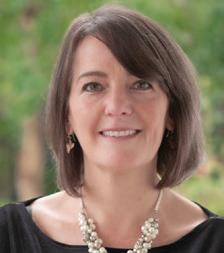
• Thorough advanced care planning discussions and guidance

•
Our compassionate team of Geriatric/Aging LifeCare Managers (GCM) serves family caregivers, medical professionals, and professional family advisors. We care for individuals who need assistance due to aging, dementia, disability or serious illness. The Option Group helps you navigate the healthcare maze.



•
•
•
•
•
•
•
•
•
Ferretto Eldercare Consulting is here to guide you through the journey of aging well. Our goal is to promote independence and joy in living, while also addressing safety and plans should something go amiss. Put our experience to work for you.

We are so grateful to Positive Aging Sourcebook for continuing to be a champion for older adults by connecting them with the people and services they need to age well. For those of you who have not worked with an Aging Life Care Professional before, you are in for a treat! You will be hard pressed to find a group of health and human services professionals with more education, experience or knowledge in the field of aging than the members of The Aging Life Care Association. Though we have diverse backgrounds, we come together around adherence to a code of ethics and a commitment to the highest standards of practice in the field. As the President of the Mid-Atlantic Chapter, I am proud to serve this amazing group of expert care managers.
Over the last three years, I have watched my colleagues find new and innovative ways to continue to serve families despite the challenges the pandemic presented. I can say with confidence that as a profession, we are stronger and more prepared than ever to do this work. If you or your loved ones need advocacy, guidance, connections to resources and expert care coordination, we can help. Visit us at midatlanticalca.org. We look forward to working with you.
Heather Suri BSN RN CMC President Aging Life Care™ Association Mid-Atlantic Chapter
Aging Life Care™ Association Mid-Atlantic Chapter
All Aging Life Care Managers™ have similar skill sets, but the care managers best equipped to help you are the ones in your area. Aging Life Care Managers are experts on the resources available in their various geographic regions. We have done our best to group the Mid-Atlantic Aging Life Care Association (ALCA) members into geographic regions based on the states served, but many of our members serve large areas that include several jurisdictions. For instance, some care managers in Pennsylvania also serve border areas over the state line in Delaware, and vice versa.
1. Check their website to verify service area.
2. Go to aginglifecare.org and click on the FIND AN AGING LIFE CARE EXPERT button. For best results, particularly in more rural areas, enter your zip code and use as wide a search radius as possible, 25 miles or more.
3. Call the Aging Life Care Professional nearest your area. If they aren’t able to help you, they will direct you to another ALCA member who can!
The senior living industry can seem overwhelming, but the important thing to keep in mind is that there is a housing option perfect for every person and every situation. Start here to find it.
What housing options are available and how can they help me?
Life plan communities are also known as continuing care retirement communities. These communities generally feature care options ranging from independent living to longterm nursing care on one campus. Residents can transfer to higher levels of care as needed.
For older adults who want to leave the burdens of home maintenance behind, independent living communities may be the ideal option. In addition to property upkeep, these communities also generally offer 24-hour security and activities to keep residents engaged. Most independent living communities are rental properties, although some do offer the option for residents to purchase units.
Individuals who need assistance with the activities of daily living may want to consider an assisted living community. In addition to daily assistance, these communities also offer activity programs to fit the interests of every resident.
Assisted living communities are an important option for older adults who need some level of help on a daily basis. All of these communities offer standard services including daily meals; supervision; security; and help with the activities of daily living, or ADLs. ADLs can include assistance with bathing, dressing and toileting. Some communities also offer help with medication management; transportation services; and coordination of medical, health and dental treatments.
Finally, whether for a short-term rehabilitation or a long-term medical stay, nursing and rehabilitation
centers are a vital senior living option. Nursing and rehabilitation centers serve as permanent residences for individuals who are too sick or frail to live at home. They are also ideal for short-term stays for individuals who are recovering after a surgery or an illness.
How should I find a housing option?
Use our research. Sourcebook features detailed articles, checklists, featured listings and comprehensive tables in each of our specific housing sections. Use these resources to begin your search for a community that is right for you and your family.


After selecting the type of community that best fits your wants, needs and budget, you should start calling individual properties to request additional information. Most communities can provide detailed brochures, helpful websites and easy-to-understand financial information.
If the thought of moving and downsizing is overwhelming, there are professionals available to help with every step of the process. Please see our moving and downsizing section.
Finding the right community will lead to a happier and healthier life, as well as added peace of mind for family caregivers.
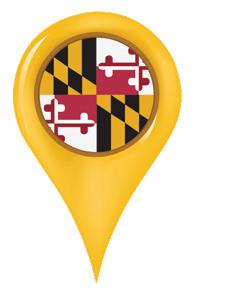
Moving can be a daunting task—no matter what your age—but it can be even more overwhelming for older adults who may be leaving a home they have lived in for decades. Luckily, the enormous growth in the senior population has led to the development of a wide variety of professional moving and real estate services designed specifically to help older adults and their families.
Senior Move Managers®, Senior Real Estate Specialists®, and Certified Senior Housing Professionals are just a few of the professionals who are specially trained to help seniors with all the challenges of moving and downsizing.
Senior Move Managers assist older adults and their families with the emotional and physical aspects of relocation. They can also help families who wish to declutter or reorganize a home to better age in place. These professionals provide a multi-faceted approach to the move process, from space planning in the beginning to post-move support and advocacy. By addressing all aspects of the moving process, Senior Move Managers minimize the chaos and stress of moving.
From initial planning to downsizing to the physical aspects of moving, Senior Move Managers create a comprehensive plan that includes selling or disposing of unwanted items and setting up the new residence. Many Senior Move Managers are also movers. Others work closely with a

reputable local moving company to complete that aspect of the job.

Senior Real Estate Specialists are Realtors who are specially trained to manage the sale of a home for consumers over the age of 50. They bring targeted knowledge, senior experience and marketing savvy to each sale. These specialists have extensive knowledge about everything from reverse mortgages and the importance of universal design to the uses of pensions, 401k accounts and IRAs in real estate transactions.
Finally, Certified Senior Housing Professionals (CSHPs) are real estate professionals who have completed extensive coursework on how best to
assist older adults and their families in the home buying or selling process. CSHPs understand that late-in-life moves can be more complicated and require greater physical and emotional energy than traditional moves. They are trained to help older adults navigate the complexities of moving by addressing their fears, concerns, needs and goals.
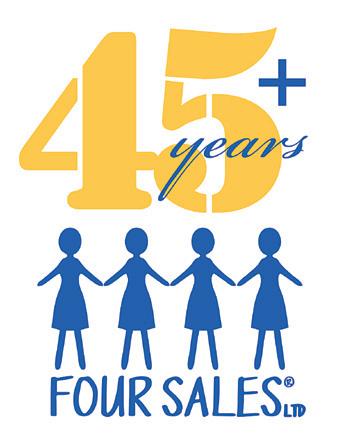
The first step in every move process should be to evaluate the current living situation and needs. Then consumers can contact the many local professionals to inquire about services and costs.
Most professionals offer a diverse menu of services, ranging from full service moves to help with particular aspects of moving, buying or selling.
Use the checklist on the following page to interview professionals and carefully document their answers. Using this information, it will be simple to choose the right professional for the job.
While the moving process may never be fun, there is no longer any reason for it to be difficult. Older adults and their loved ones can now let specially trained professionals handle all the details of selling, buying and moving—from cleaning out the cluttered basement to finding the perfect new place for every piece of treasured furniture. With professional help, every move can be a smooth one.
Sources: nasmm.org, seniorsrealestate.com, and seniorsrealestateinstitute.com.

Silver Group® is Bob Lucido Team’s unique division dedicated to providing specialty services to address the challenges associated with a Senior Move.


WHEN YOU’RE READY TO MOVE, SILVER GROUP® WILL PROVIDE:
• An extensive referral network of experienced, reputable professionals to help you downsize




• Our Home Enhancement Listing Program where you defer payment for home updates until settlement*


• Our Guaranteed Sale Program where we will sell your home in 120 days or less*
• Our senior discount*

• FREE home staging consultation and market analysis



• FREE use of our fleet of moving trucks*
front?
FIX NOW, PAY LATER WITH OUR H.E.L.P.!
Our proven Home Enhancement Listing Program allows you to work with vendors* who will update your house so we can list it at top dollar…and you don’t pay anything until we sell your house!*

VICTORIA HATHAWAY,
I make it my priority to provide a thorough and specialized assessment regarding every aspect of your unique situation.
To learn all of the ways my team and I will fully support your Senior Move, contact me at 410.979.4284 or SilverGroup@BobLucidoTeam.com or the code below!
Ask us how our senior discount could save you up to $1,000 on your move to a Senior Living Community!
When you or the people you love are ready to move, you need more than just an agent. You need a team you can trust.



Matt Paxton knows clutter.
After nine seasons on A&E’s popular show Hoarders, Matt is now focusing his attention on moving and downsizing. He is working with PBS on a new series called Legacy List with Matt Paxton. The show captures the emotional trials and triumphs of families downsizing out of their homes, as Matt and his team of expert movers and conservators pack a houseful of memories.
When Matt was just 24, he became the oldest man in his family when his father, stepfather and both grandfathers died in the same year. Matt was sad—and overwhelmed. He had to settle several estates simultaneously. In the midst of this personal crisis, Matt found his calling—helping families find the upside to downsizing.

Legacy List with Matt Paxton focuses on preserving memories instead of keeping stuff. “Whether it is hoarding or downsizing, the message is the same. The stuff is holding us back. The stuff is only important because of the emotional stories that go with it. You have to tell those stories, share those stories, and then you can let the stuff go,” Matt explained.

Whether you are ready to downsize from your long-time family home or just need to clean up a few rooms, you have to deal with your stuff. Matt Paxton offers a few tips for getting started:


Tip #1 : Be Patient. “It took you 50 years to fill the house. You’re not going to clean it in an afternoon,” Matt said. The process of downsizing takes time. Give yourself time.
Tip #2: Address Pictures. Pictures pose a problem for many older adults. There are so many pictures collected over a lifetime. Matt suggests addressing them early in the process by first eliminating all doubles. Next, you should throw out pictures that contain people who you can’t name. Finally, get rid of generic landscape pictures.
Tip #3: Shred. After pictures, paperwork is the item that causes the most challenges for older adults. Matt recommends spending 20 minutes a night shredding old mail and bills.
Tip #4: Start Small. Focus on sorting through a single room or even a single drawer. “I love going through the
junk drawer in the kitchen,” Matt said. “We also find a lot of great stuff in the guest room closet. That’s where good things go to die. Why not start in those areas?”
Tip #5: Give it away. Use Freecycle, Facebook groups, charities, and other options to unload unwanted stuff. Often, the amount of money you would earn selling items is negligible. There is a much larger value to giving something to someone who will actually use it. This is especially true for old furniture and clothes.
Tip #6: Share and receive stories, not stuff. Older adults often struggle when their children or grandchildren don’t want all their furniture and household items. Instead of simply refusing an item, ask about the story behind it. Explain that you don’t have room for the item, but that you will treasure the story. Focusing on stories can make downsizing easier for older adults and their loved ones.






Many longtime homeowners are facing a difficult decision: whether to sell and move to a home that will better fit their future needs (“right sizing”) or making changes to their current home so they can safely and comfortably remain there longer. As a REALTOR® and Seniors Real Estate Specialist (SRES®), I help clients make informed home choices based on their unique priorities and needs.

Call me today and let’s develop a plan that’s right for you.
Evers & Company / A Long & Foster Company
Tom DeMuth
(703) 819-9053 (CELL/TEXT)
(202) 364-1700 (OFFICE)
tomdemuth.dmv@gmail.com
TheHammondGroupDMV.com

The senior living industry is benefiting from one of the most basic economic principles: supply and demand. As the older adult population grows and life expectancies continue to increase, the senior living market is expanding.
More older adults equals more demand for senior living options, and more demand leads to more supply. Hence, there are senior living communities opening their doors or breaking ground daily.
According to Forbes , about 10,000 baby boomers turn 65 every day. As the population ages, the number of seniors needing long-term care is projected to increase to 15 million people by 2050. This means a marked increase in demand for senior living options—and corresponding business opportunities.

In 2020 alone, the U.S. assisted living facility market size was valued at 83.2 billion, according to market research firm Grand View Research. The firm predicts that the industry will grow at a rate of 5.3 percent annually through 2027 to accommodate an aging population and an increased need for help with activities of daily living including eating, bathing and dressing. And that is just the assisted living market. The senior living market is much broader. Senior living also includes life plan communities, independent living communities, memory care options, and nursing and rehabilitation centers.
In the mid-atlantic region, there are dozens of new communities that have been built in the last three years—or are planned for the near future. These new communities offer a variety of care options, ranging from life plan and independent living to nursing and memory care.

Some communities are new entries
by industry stalwarts who have been producing senior living communities for decades.

Others are smaller enterprises run by companies that are new to the senior living market. New communities vary dramatically in terms of design, amenities, and overall feel. Some offer cozy, homelike settings, while others resemble high-end luxury hotels. The good news is that consumers have choices—lots of choices.
Researching and selecting a senior living option takes time. Sourcebook readers consistently report searching for a year or longer before making a final decision on a senior living community. Many readers even review more than one issue of Sourcebook. Therefore, we thought it was important to highlight new developments, so consumers can ensure that they have reviewed all the local options.
While we want readers to explore
all their options, remember, newer does not always mean better. The perfect community for you or your loved one may be the one right down the street that you have driven past for decades. Or it could be across town in a historic neighborhood.
The only way to know for sure is to consider all the options. See the tables throughout Sourcebook starting on page 101 for comprehensive listings of local communities.
Once you have identified a few potential communities, schedule in-person visits to get a feel for the atmosphere and lifestyle at the community. Meet with staff members and residents.
New communities often host online or in-person events for individuals and families who are interested in becoming “founding” members. Even if a community isn’t completed yet, you can get a sense of the people who will call the property home. After all, it is the people who really make a community unique.


Continued from 52
are not eligible for a Special Enrollment Period (triggered when leave a job or have another life-changing event), you can enroll during the general enrollment period from January 1 – March 31 each year. Coverage will begin on July 1 of the same year.

Medicare recipients can change their existing plans during the open enrollment period, which runs from October 15 – December 7 every year.
Are you working beyond age 65? Should you switch to Medicare or maintain employer-based health insurance coverage?
If your company has less than 20 employees, you must enroll in Medicare. The government will
consider Medicare the primary payer of your health insurance claims after you turn 65.
If you work for a company that has more than 20 employees, you can delay enrollment into Medicare and not face any penalties. When you retire or decide to disengage from your employer-sponsored healthcare, you can apply for Medicare.
Medicare is not free. You must pay premiums for Parts B and D, or for a Medicare Advantage program. Your costs for Parts B and D will be higher if your income exceeds certain limits.
Medicare will cover care provided by medical professionals; however, it will not cover the activities of daily living. Therefore, Medicare will not cover care delivered in an assisted living
community or by home health caregivers.

Home health care will only be covered if it is skilled nursing or physical therapy and only on a limited basis. Help with chores, meals, bathing, dressing and transportation is not covered by Medicare. Some Medicare Advantage plans include coverage for home care, including assistance with the activities of daily living.
Original Medicare also does not provide benefits for dental, vision or hearing.
Medicare is not a one-time decision. It is a good idea to review your plans regularly.
If switching to a Medicare Advantage plan, be sure that your doctor or preferred provider is in network with the plan.





At SpiriTrust Lutheran®’s six Life Plan Communities, with both in-town settings and countryside locales, you can find continued growth opportunities with Spirit360TM, a lifestyle filled with flexibility and choice, a variety of sought-after services, and no maintenance. You’ll also secure a plan for any future care needs. Come discover a place where “planning” and “living” merge and allow for living life to the fullest!
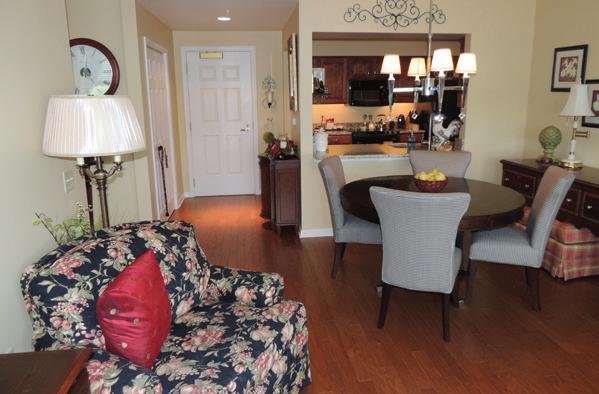
• The Village at Gettysburg Gettysburg, PA | 717-334-4443





• The Village at Kelly Drive York, PA | 717-854-5010
• The Village at Luther Ridge Chambersburg, PA | 717-261-1251

• The Village at Shrewsbury Shrewsbury, PA | 717-235-5737
• The Village at Sprenkle Drive York, PA | 717-767-0579







• The Village at Utz Terrace Hanover, PA | 717-646-2420


Life Plan Communities are properties offering a combination of living options for older adults. These communities offer an active lifestyle for residents, as well as a wide array of amenities and services.
Life Plan Communities were formerly known as Continuing Care Retirement Communities (CCRCs). Following a two-year research and review process, a task force led by LeadingAge and Mather LifeWays, identified a new name for CCRCs that would resonate with the boomer target audience. The new name better reflects the communities and their residents—individuals who are active, engaged and focused on the future.
Living options available at Life Plan Communities may include independent living, assisted living and skilled nursing services. These different levels of care are all offered
on a single campus. Residents have the option to have all their current or future healthcare needs met without ever leaving campus.
Life Plan Communities afford residents endless opportunities to remain active and involved. These communities generally appeal to young, healthy older adults. Amenities vary widely but often include swimming pools, fitness centers, gardening areas, and golf courses or putting greens. Additionally, residents have access to hundreds of clubs and activities—from art classes to yoga classes and from drama clubs to walking groups. Residents are also very involved in the operation and management of Life Plan Communities through resident boards or councils.
Finally, Life Plan Communities are generally integrated into the larger
community. With active residents, these communities can focus on giving back and acting as a socially responsible neighbor.
Life Plan Communities give older adults the freedom and security to live active, healthy lives. They are the perfect option for individuals who want to plan ahead for future care needs, while focusing on enjoying every day.

Source: lifeplancommunity.org
Now’s your time to enjoy it all. In our diverse and inviting Life Plan community, surround yourself with people you’ll like and social opportunities you’ll love. Settle into a home amongst nature, supported by a continuum of care for every age and ability. At Broadmead, you’ll be able to focus on a lifestyle you truly enjoy!
When you reduce responsibilities, you can explore the possibilities. Let the services provided by our dedicated staff lighten your daily load so you can enjoy the abundant amenities within our 87-acre woodland campus. You’ll also have easy access to the charming town of Winchester, the beauty of the Shenandoah Valley, and the allure of our nation’s capital nearby. Because we provide a full continuum of care, you’ll readily embrace a lifestyle of financial security and holistic wellness at Shenandoah Valley Westminster-Canterbury.
Don’t settle for less. Be even more at SVWC. > SVWC.ORG/LessIsMore
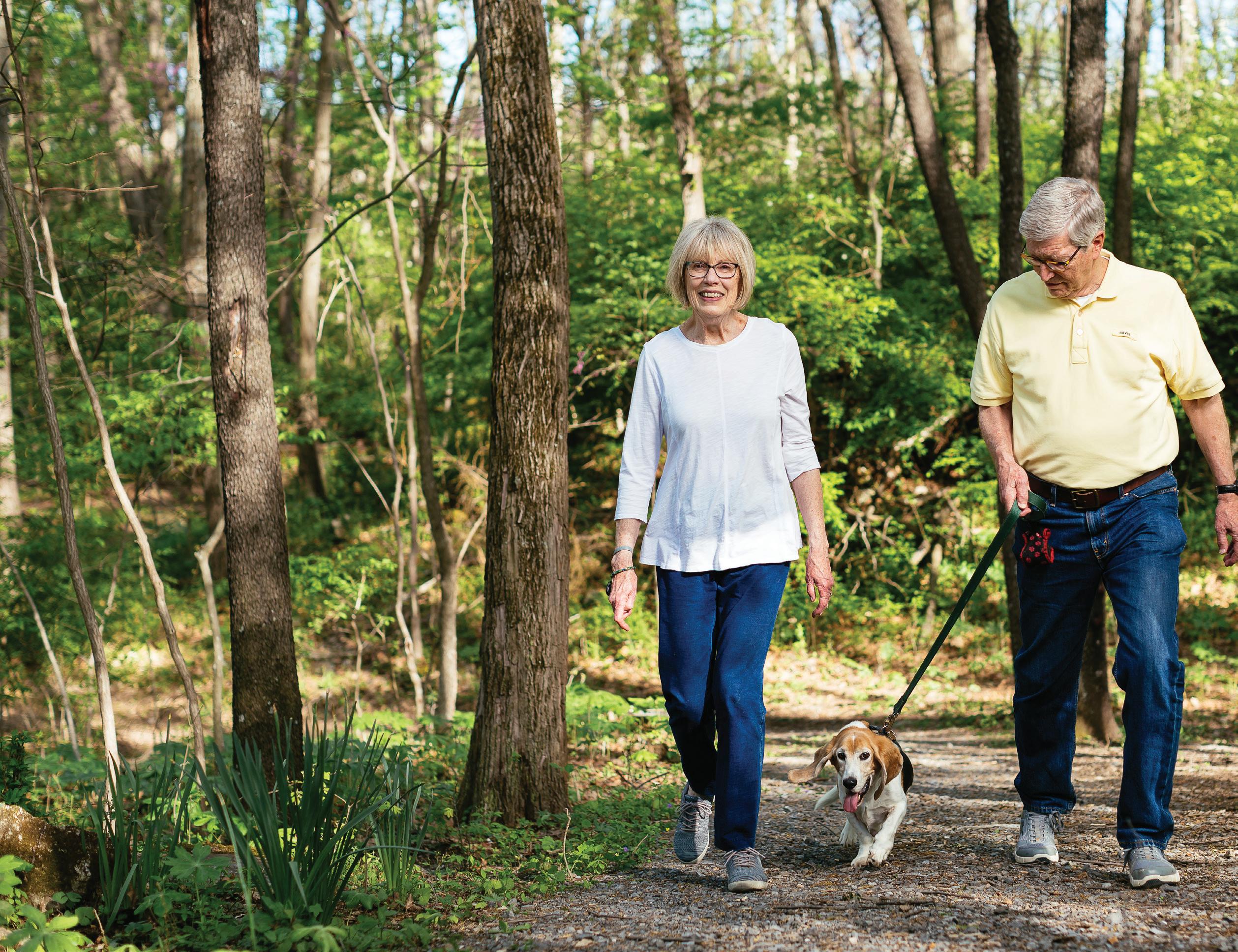
Most life plan communities require payment of a one-time fee, usually called the entrance fee, before moving to the community. The entrance fee amount often depends on the level of care at the time of entry, type of housing chosen (with larger units requiring a larger fee) and agreement type. The entrance fee allows the life plan community to offer lower monthly fees and provide for the future needs of residents. State regulations can impact the terms of the entrance fee and in some states, refunds are called rebates. Entrance fees are typically structured in one of three ways:
DECLINING SCALE REFUNDS , also known as amortizing entrance fees, specify a period of time in which the entrance fee will be refundable to the resident on a declining basis. For example, if an entrance fee under this
arrangement declines at the rate of 1 percent each month, after 6 months 94 percent of the entrance fee is refundable.
PARTIALLY REFUNDABLE entrance fees guarantee a specific percentage of the refund that will be returned within a certain period of time regardless of the term of residency. For example, 50 percent of the entrance fee may be refundable upon termination of the contract or to the estate upon the resident’s death.

FULL REFUNDS offer just that, a full refund of the entrance fee. A fixed charge may be deducted before the refund is made, and the agreement generally states how long the refund is valid and under what conditions a refund is due. Entrance fees that offer full refunds
are typically more expensive than those without refunds or those that are partially refundable or refundable on a declining basis.



You want to move to a senior living community, but that’s just the first of many decisions you’ll need to make. No matter which community you move to, you’ll have to sign a contract that stipulates the services you’ll receive and what you’ll pay—now and down the road.
This guide can help you navigate the different contracts you may encounter as you embark on your search for a new home. Life plan communities, also known as continuing care retirement communities (CCRCs), offer multiple levels of care all on one campus. This setting is generally attractive to seniors who like to plan ahead. Life Plan Communities are most useful for seniors who can come in at the independent living level and move through higher levels of care as needed over time.

1. Type A (Life Care Agreements). According to the Commission on Accreditation of Rehabilitation Facilities, Type A contracts include overall housing, residential services (amenities) and unlimited healthrelated services. Type A contracts provide a sense of stability, as future costs are much more predictable regardless of any changes in needed services or care. Residents pay a much larger entrance fee compared to other contract types, but the monthly fee is flat through all levels of care.
2. Type B (Modified Agreements). As with Type A, Type B contracts include housing and residential services. Unlike Type A, Type B does not cover all future health care needs but does offer discounted or waived rates for those services.
While Type B contracts have a
lower entrance fee than Type A, should an increase in care become necessary, it would be the resident’s responsibility to cover costs.
3. Type C (Fee-For-Service Agreements). Like both A and B, Type C contracts cover housing, residential services and health care. “Basically, it’s pay as you go,” says Mark Herrera, vice president of skilled nursing administration and risk management at be.group. Residents pay a smaller entrance fee in the beginning. Then, if you don’t need to use higher levels of care, there is no additional cost to you beyond your monthly service fee for using amenities like transportation or activities. While Type C contracts will save you on up-front costs, the resident risks the potential for large costs down the road if there is a sudden need for care.


“I was not ready to move; my wife was. I was wrong; she was right! Asbury exceeded all my expectations.”

 -Maynard Mack
-Maynard Mack

“Asbury is sooo welcoming. I feel safe and right at home with all the...friendly people and lovely campus. The food? Awesome!” Asbury is the best option-period!”
-Susan Dunn




“In addition to the excellent resident-run education series, we have...a robust wellness and exercise program.”










 -Linda Davis
-Linda Davis
We nailed the peaceful, stress -free retirement folks dream about.
 -Terry Murphy
-Terry Murphy


Step onto our bucolic, 134-acre campus and experience the warmth and energy that comes from living together with purpose and fellowship.




As Montgomery County’s premier continuing care retirement community, Asbury provides exceptional senior independent living apartments, Courtyard Homes, and Villas, for active living with a full continuum of on-site health services.

1. Consult a financial adviser. Joining a senior living community is a serious investment. Spend time with your trusted financial adviser. “Your biggest pitfall is not understanding how health care, especially Medicare, works in our country,” says Daniel S. Ogus, executive vice president and chief operating officer at be.group. “How much money do you have and how much will you need? Understand what benefits you’re getting from Medicare as well as your retirement packages.”

2. Research the organization and management. The financial stability of the community as well as the continuity of management are two essential factors to vet thoroughly.
3. Understand services covered. Asking about guaranteed services will alleviate many of those “what if ”
questions: What if you get dementia? What if you become debilitated? Ask management specific questions about what’s covered in your contract beyond care services.
4. Find out how refunds work. Signing a Life Plan Community contract is a big decision—so what if you change your mind?
5. Ask about a benevolence program. Many nonprofit Life Plan
Communities offer benevolence programs if a resident exhausts his or her financial resources.
6. Make sure your voice will be heard in the future. Some communities have their own associations, and residents have the right to be represented on boards. “It’s collaborative management,” says Herrera. “Many communities are managed with a lot of advice from residents.”
7. Determine what role your family will play. “We can’t share information with children if the resident doesn’t give us permission to do so,” says Ogus. “If a resident has a condition change, we hope he or she will allow us to share with one of their adult children.” Make sure your family understands the financial commitment and how your contract works.

Continued from page 46
can remain connected. The relay user speaks directly to the other person. As the other person responds, an operator types the response and the VCO user reads it on the screen of their phone.
Another option for individuals who have difficulty hearing over the phone is a Captioned Telephone. A Captioned Telephone works just like a standard phone, with one important difference: it displays captions on the device’s screen of what the other person says throughout the conversation. For clarity, the Captioned Telephone user can read the captions while listening to the other person’s spoken words.
For Spanish speakers, Spanish Relay is available for all the aforementioned services.
For users who want to enjoy group calls or need conferencing
functionality for work, Remote Conference Captioning (RCC) allows users to read captions of what all participants are saying during conference calls while they listen.
Newer services are also available. Video Relay Service (VRS) is an Internet-based system for people with video conferencing equipment or videophones who communicate in American Sign Language. Internet Protocol Relay (IP Relay) service is an Internet-based system for people with a computer or other web-enabled device who communicate using text. Finally, using captions displayed on a computer or other web-enabled device, Internet Protocol Captioned Telephone Service (IP CTS) enables people to communicate by speaking and listening to what they can hear over a telephone and reading what the other person is saying.
What are the costs for relay services?
Relay services are provided at no cost to all users. Relay services
We believe the most fulfilling life is one with vast experiences — in a place where diversity of culture, religion, and experiences come together to create a true sense of belonging. Where every person’s unique story is enhanced by the stories of those around them. Empowering each resident to live to the fullest, together, Mercy Ridge is an unparalleled

are available 24 hours a day, 365 days per year. There is no limit on the number or length of calls a user may make, and there are no set-up fees or charges for calls.
State relay service programs provide and pay for some relay services, such as relay services used on in-state calls made through some services. The FCC oversees the Interstate Telecommunications Relay Fund which pays for other relay services, such as relay services used on interstate calls made using certain services and all calls made using newer services.
Assistive telecommunications equipment is often available through state programs. To qualify for equipment provided by the state, applicants generally must meet both medical and financial criteria. Applicants who do not qualify for state equipment may purchase equipment directly from a thirdparty provider.




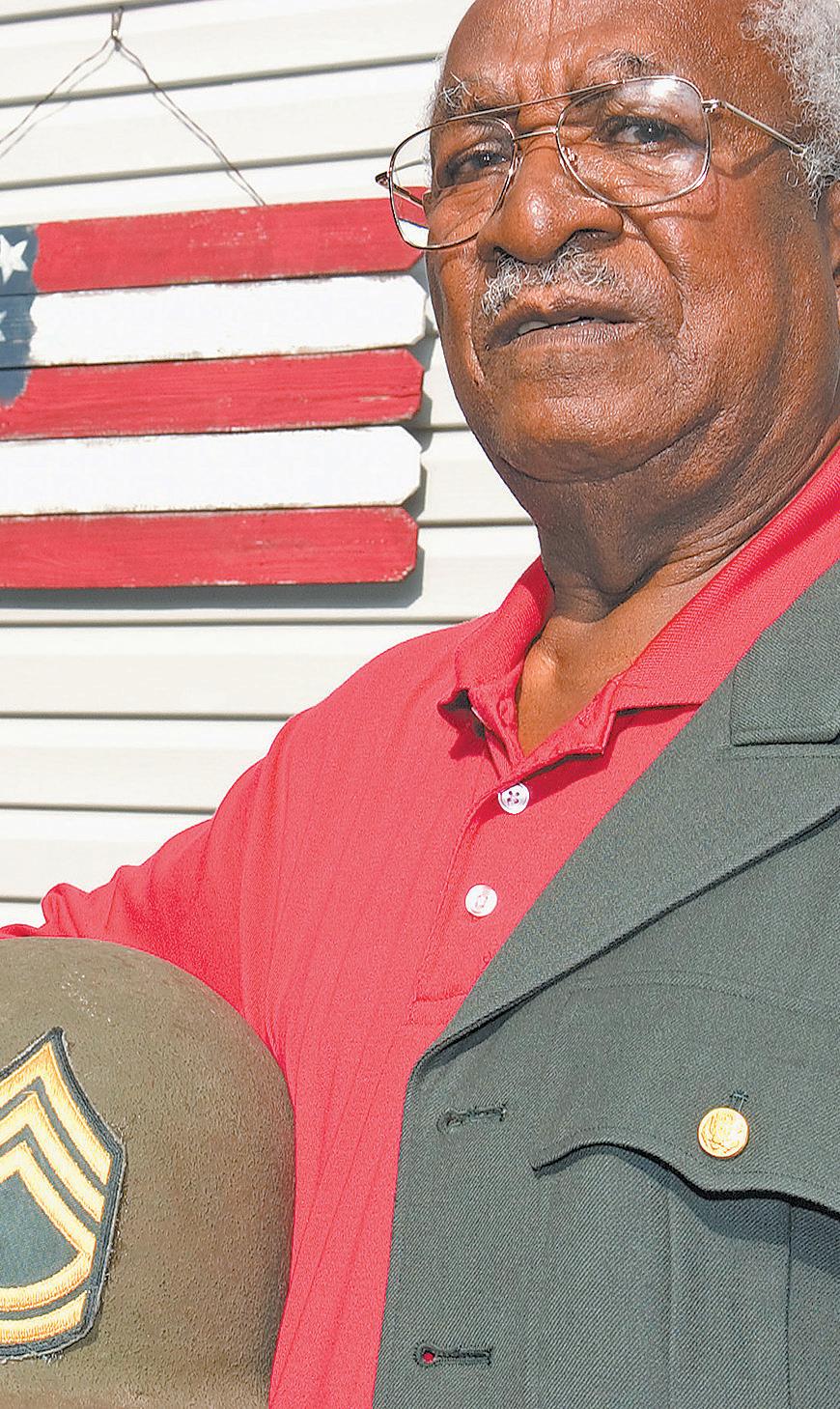
Individuals who have served their country in the armed forces are eligible for a wide array of benefits through the U.S. Department of Veterans Affairs (VA). These benefits include health care services ranging from routine screenings and check-ups to longterm care. Additional benefits are also available for aging Veterans.
Any individual who served in the active military, naval or air service and was discharged under any condition other than dishonorable may qualify for VA health care benefits. Members of the Reserves or National Guard who were called to active duty, other than for training, and completed the full duty requirement may also be eligible for health care.
All Veterans are encouraged to enroll with the VA to determine their eligibility for benefits. Only by enrolling in the VA health care system can Veterans guarantee that comprehensive services will be available when and where they are needed.
The VA’s enrollment system is
based on priority groups. Congress determines the VA’s funding annually, which impacts the number of Veterans who can be enrolled in the health care program. The VA classifies Veterans into priority groups to ensure that
Veterans and survivors who have been found eligible for a VA pension may also be eligible for Aid and Attendance benefits. VA pensions are only awarded to Veterans and their spouses who meet strict eligibility requirements and whose yearly family income is less than the amount set by Congress for qualification.
Aid and Attendance benefits are paid in addition to the monthly pension. Veterans who are not eligible for a pension cannot receive these benefits. Since this allowance increases the pension amount, some veterans who were not eligible for a basic pension because
of excessive income may be eligible under these rates.
To qualify for Aid and Attendance, Veterans must require the aid of another person to perform the activities of daily living, which include eating, dressing and toileting. Veterans who are bedridden may also be eligible. Patients who are living in a nursing home or who have extremely limited eyesight may qualify as well.
Veterans or their surviving spouses who are confined to their homes because of permanent disability may be eligible for an additional Housebound benefit. The
limited funds are provided to higher priority Veterans first. Individuals in lower priority groups often have to pay copays for care and services.
In addition to preventative, health maintenance and emergency care, VA benefits may also provide for longterm care in some instances. Longterm care benefits include assistance that is provided for an extended period of time to help Veterans with everyday tasks and/or provide support for managing an ongoing illness. Longterm care, as defined by the VA, may be provided in a person’s home, a community site, residential setting, or nursing home. Eligibility for services covered by the VA are determined based on a Veteran’s need for ongoing treatment, service availability in their area, financial eligibility, priority group status and insurance coverage. Long-term care services may also be covered though Medicare, Medicaid, insurance or private funds.
Veterans can also call the VA at 844-698-2311.
Housebound benefit is added to the monthly pension amount. Veterans must have already been determined eligible for the pension. Recipients are not eligible to receive both the Aid and Attendance benefits and the Housebound benefits at the same time.
Veterans and their families may apply for benefits by submitting the required forms to the Pension Management Center that serves their state or by visiting a local benefit office. Information on centers and offices is available online at www.benefits.va.gov/ benefits .


Financially, emotionally, and from a practical perspective, choosing a continuing care retirement community (CCRC, or “life plan” community) is a big decision. Here at myLifeSite, we strive to provide information and create resources that can help seniors make a more informed decision about whether this particular senior living option is right for them, and if so, which CCRC may be a good fit. After all, this is a choice that will impact your quality of life, health, happiness, and wallet for years to come.
To help make the CCRC decision process a little easier and more manageable, we have simplified the sometimes-overwhelming list of deciding factors into six key areas that consumers should evaluate when considering a CCRC.
When looking at a CCRC, among the easier things to assess are the physical campus and the various amenities provided by the community. I recommend you take several tours of the community’s residences, considering different floorplans and features, and then contemplate what is important to you.
Because one of the principal reasons people opt for a CCRC is the continuum of care services they offer, be sure you look at both the independent living residences, as well as the assisted living portion of the community. You want to have confidence that you will feel at home once you are settled into your new surroundings.
There is also an assortment of amenities that will be provided by a CCRC, though these offerings can vary widely from community to community, from basic services to high-end conveniences. You will need to determine which are essential and which, in your opinion, are just nice-to-haves.
Some amenities to look for may include: technology that helps

residents stay safe as well as keep up with the times; community gardens, walking trails, and manicured grounds; transportation services and planned excursions; multiple dining options like cafés and bistrostyle settings; a fitness center, pool, golf course, and tennis or pickleball courts; and concierge-style services and move-in coordinators.
Generally speaking, there are five common types of CCRC contracts offered among communities: Type A (lifecare), Type B (modified), Type C (fee-for-service), Rental, and Equity/Co-op. And when it comes to entry fees (which almost all CCRCs require), some are refundable and others are not (or are only partly refundable).
Because they aren’t apples-toapples, comparing the cost of these various types of CCRC contracts, especially in different parts of the country, can be challenging. A lifecare contract in Seattle may be substantially more than a fee-forservice contract in Cleveland. Or, suppose one CCRC’s campus and facilities are older and it has fewer amenities than another community.
Bottomline: It is critical that you
have a thorough understanding of which contract is right for your particular situation, and which one you are signing.
CCRCs offer numerous attractive services and amenities for those living independently, but let’s keep sight of the primary reason for considering a CCRC: access to a continuum of care services. You want to be sure that the care services—both assisted living services as well as long-term skilled nursing care services within the on-site healthcare center—will be up to your expectations, should you one day need them.
You will want to do your due diligence research on the care provided by the CCRC, and there are a number of resources you can and should explore in order to do this. If the CCRC’s healthcare facility is Medicarecertified (as opposed to private pay only), you can check out their Center for Medicare and Medicaid Services (CMS) rating. You also can reach out to your state’s long-term care ombudsman program to see if the CCRC has had any complaints filed.
It’s wise to do some shoe-leather investigating yourself as well by visiting the healthcare center and observing
Continued on page 98

Continued from page 96
how residents are being cared for, if the facilities appear clean and wellmaintained, and if the staff appears to be content. Get some first-hand reviews from the CCRC’s residents to see what their impressions have been of the care they and their fellow residents have received.
A CCRC is home to its residents, but it is also a business, and like most businesses, CCRCs are usually only as good as their administrators. You want to ensure the CCRC you are considering is well-managed and in good financial standing.
The financial viability of the community is important. Select a community that will be able to provide residents the quality of care and services that they expect and have paid for into the future. Consider consulting with an accountant or financial professional who is wellversed in CCRC contracts and finances to ensure you will be getting what you expect and have paid for.
It’s also wise to understand the leadership structure of the community; get a feel for the expertise and experience brought by members of the board, and ask if residents are involved in a leadership capacity.
If you are considering a move to a CCRC, it’s crucial that you understand
exactly how it will impact your personal finances in the long-term. Since cost and contract terms vary dramatically, it can be challenging to determine on your own if you will be able to afford the cost of a CCRC over the long-haul, particularly given that different CCRCs offer different types of residency contracts.
If you are comparing multiple communities, you want to be sure you are doing a true comparison of what each will cost, not just today but also in the future, so you can make an informed decision about which one is right for you.
The concept of “lifestyle” relates to the factors that will impact your daily living experience within the community. It makes up the answer to the question, “Will I be happy and comfortable living here?” The CCRC you choose should foster your lifestyle preferences so that you can live the
“Lifestyle” is a highly individualized concept, so the priorities of one person may be different from another person’s, but important lifestylerelated considerations may include aspects such as lifelong learning opportunities, dining choices and meal plan flexibility, community involvement and volunteer opportunities, size and location of the CCRC, and general vitality level of the residents who live there.
CCRCs are also touted for the many wellness benefits they offer their residents. In fact, a recent study found that CCRC residents are in fact happier and healthier than those who do not live in such a community. From fitness classes to continuing education to nutritious food offerings, a CCRC’s wellness programs should be designed to nurture residents’ minds, bodies, and spirts.
Many communities will allow you to stay on-site for a night or two to get a feel for what it’s like to live there and the lifestyle and wellness opportunities offered by the CCRC.


There are a variety of reasons making the choice to move to a CCRC more complex than most other senior living options. This is a BIG decision; there is no denying that! However, as you explore various CCRCs and consider different contract types, these six key factors above should remain top-of-mind.
Content provided with express written permission from myLifeSite: www.mylifesite.net
Consider consulting with an accountant or financial professional who is well-versed in CCRC contracts and finances to ensure you will be getting what you expect and have paid for.
millersgrant.org/tour
410-465-2005


9000 Fathers Legacy
Ellicott City, MD 21042


clvillage.org/tour
410-848-8922
300 St. Luke Circle Westminster, MD 21158


Life at a Lutheran Village community means being connected to a word of endless possibilities—with opportunities to learn, create, give of yourself and most of all—flourish!
As communities of the Lutheran Social Ministries of Maryland, Carroll Lutheran Village and Lutheran Village at Miller’s Grant provide a fulfilling retirement lifestyle with the ease of maintenancefree living and the security of on-site health care. Schedule a tour, and learn how our communities can help you get the best of every day!



Is the community clean and well maintained?
Is ample parking available for residents and visitors?
Are exterior maintenance, snow removal and landscaping included in the monthly fees?
Are there multiple floor plans available?
Can residents decorate their cottages, condos or apartments according to their personal tastes?
Is the community pet friendly?
Does the community have safety features, such as handrails and grab bars?
Do individual residences include safety features, such as emergency alert and fire suppression systems?
What levels of care does the community offer?
Independent living?
Assisted living?
Skilled nursing care?
Short-term rehabilitation?
Memory care?
Do residents have access to in-home care should it be needed?
Is the community well staffed overnight?
How does the community handle residents who need additional care and support?
Do staff members undergo screenings and background checks prior to employment?
Are housekeeping and laundry provided?
Are transportation services available?
Do caregivers positively interact with residents?
What is the staff-to-resident ratio for each level of care?
What services are included in the monthly fee? What services are available for an additional fee? What are the fees?
How often do resident rate increases occur?
Are there multiple contract options? Do some contract options offer entrance fee refunds?
Does the dining room look and smell inviting? Are the dining room tables, chairs and linens in good condition?
Are residents allowed to invite guests for meals? Can residents select their own meal times, or are there designated meal times?
Are three daily meals, snacks and beverages included in the monthly rate?
Can the community accommodate special dietary needs?
Is there a dietician or nutritionist involved in meal planning?
Is the community conveniently located for friends and family to visit?
Is the community in a safe neighborhood? Are there shopping, dining and entertainment options near the community?







The Greens at Hammonds Lane: 410-636-1141
Park View at Furnace Branch: 410-761-4150
Park View at Severna Park: 410-544-3411
BALTIMORE CITY
Ednor Apartments I: 410-243-0180
Ednor Apartments II: 410-243-4301
The Greens at Irvington Mews: 410-644-4487
Park Heights Place: 410-578-3445
Park View at Ashland Terrace: 410-276-6440
Park View at Coldspring: 410-542-4400
BALTIMORE COUNTY
Cove Point Apartments I: 410-288-2344
Cove Point Apartments II: 410-288-1660
Evergreen Senior Apartments: 410-780-4888
The Greens at English Consul: 410-789-3000
The Greens at Liberty Road: 410-655-1100
The Greens at Logan Field: 410-288-2000
The Greens at Rolling Road: 410-744-9988
Park View at Catonsville: 410-719-9464
Park View at Dundalk: 410-288-5483 • 55 & Better
Park View at Fullerton: 410-663-0665
Park View at Miramar Landing: 410-391-8375
Park View at Randallstown: 410-655-5673
BALTIMORE COUNTY (CONT.)
Park View at Rosedale: 410-866-1886
Park View at Taylor: 410-663-0363
Park View at Towson: 410-828-7185
Park View at Woodlawn: 410-281-1120
EASTERN SHORE
Park View at Easton: 410-770-3070
HARFORD COUNTY
Park View at Bel Air: 410-893-0064
Park View at Box Hill: 410-515-6115
HOWARD COUNTY
Park View at Colonial Landing: 410-796-4399
Park View at Columbia: 410-381-1118
Park View at Ellicott City: 410-203-9501
Park View at Ellicott City II: 410-203-2096
Park View at Emerson: 301-483-3322
Park View at Snowden River: 410-290-0384
Park View at Bladensburg: 301-699-9785 • 55 & Better
Park View at Laurel: 301-490-1526
Park View at Laurel II: 301-490-9730
Independent living communities are residential communities for active older adults who want an enjoyable lifestyle free of the worries of home maintenance. They are similar to any apartment, condominium or singlefamily development, except that they provide special services, including security. Most independent living communities are fully secured with staff members greeting and screening all visitors around the clock.
As many individuals at this stage in their lives are looking to pursue new hobbies and interests, the activities and amenities available at a community are a major factor for potential residents. Most independent living communities provide a full range of activities such as shopping trips, outings to cultural events, organized gatherings and an array of clubs. Some communities also have
tennis courts, swimming pools and other amenities.
Independent living communities typically offer a variety of meal plans. Residents also have the option of preparing their own meals.
Most independent living communities do not offer health care services. However, some communities are affiliated with health care facilities that can provide such care when it is needed. Residents also have the option of purchasing home health care services from outside providers.
Most independent living communities are rental communities, but some are condominiums or single-family communities in which residents purchase their units or homes. Costs and services vary widely. In some communities, a monthly fee covers many services, while in others a fee-for-service
system is used. A few communities offer subsidies based on strictly defined need. To learn more, contact your local Area Agency on Aging. Consumers should carefully research the independent living community options in their target areas or neighborhoods. After requesting and reviewing information from communities, prospective residents should plan on-site visits to each community they are considering.
Most independent living communities provide a full range of activities.
Is the community clean and well maintained? Is ample parking available for residents and visitors?
Are exterior maintenance, snow removal and landscaping included in the monthly fees?
Are there multiple floor plans available?
Can residents decorate their cottages, condos or apartments according to their personal tastes?
Is the community pet friendly?
Does the community have safety features, such as handrails and grab bars?
Do individual residences include safety features, such as emergency alert and fire suppression systems?
Are activities scheduled throughout the day and evening?
Are fitness classes offered?
Are there dedicated spaces for resident clubs and informal gatherings?
Does the community offer regular outings to local restaurants, theaters, museums and other destinations?
Are there outdoor spaces available for walking, gardening and recreation?
Are volunteer programs available?
Do the residents appear engaged and energetic?
Is the community well staffed overnight?
How does the community handle residents who need additional care and support?
Do staff members undergo screenings and background checks prior to employment?
Are housekeeping and laundry provided?
Are transportation services available?
Do caregivers interact with residents in positive ways?
What is the staff-to-resident ratio?
Does the dining room look and smell inviting?
Are the dining room tables, chairs and linens in good condition?
Are residents allowed to invite guests for meals?
Can residents select their own meal times, or are there designated meal times?
Are three daily meals, snacks and beverages included in the monthly rate?
Does the resident committee work with the dining staff to develop menus?
Can the community accommodate special dietary needs?
Is there a dietician or nutritionist involved in meal planning?
Is there public transportation nearby?
Is the community in a safe neighborhood?
Are there shopping, dining and entertainment options near the community?
Is the community near preferred medical providers?
What services are included in the monthly fee?
What services are available for an additional fee? What are the fees?
How often do resident rate increases occur?
Are subsidies available? How do residents qualify for subsidies? Is there a waiting list?
Does the community look and feel like a place you could call home?
Talk with residents and their family members. What do they like about the community?
Can they recommend it?
Did they consider other options when searching for a community?




According to LeadingAge, formerly the American Association of Homes and Services for the Aging, a person can rent an apartment either at the market rate or, if his or her income level qualifies, at a lower rate. These apartments are often designed with seniors in mind. For example, there may be railings in bathrooms or power outlets higher up on the wall. Many communities also offer a 24-hour emergency call service and some may also provide different kinds of services such as meals, transportation, social activities and other programs.
The U.S. Department of Housing and Urban Development (HUD) funds several rental assistance programs for seniors who qualify. These programs include public housing or low-income housing that is owned and operated by a local housing authority. To
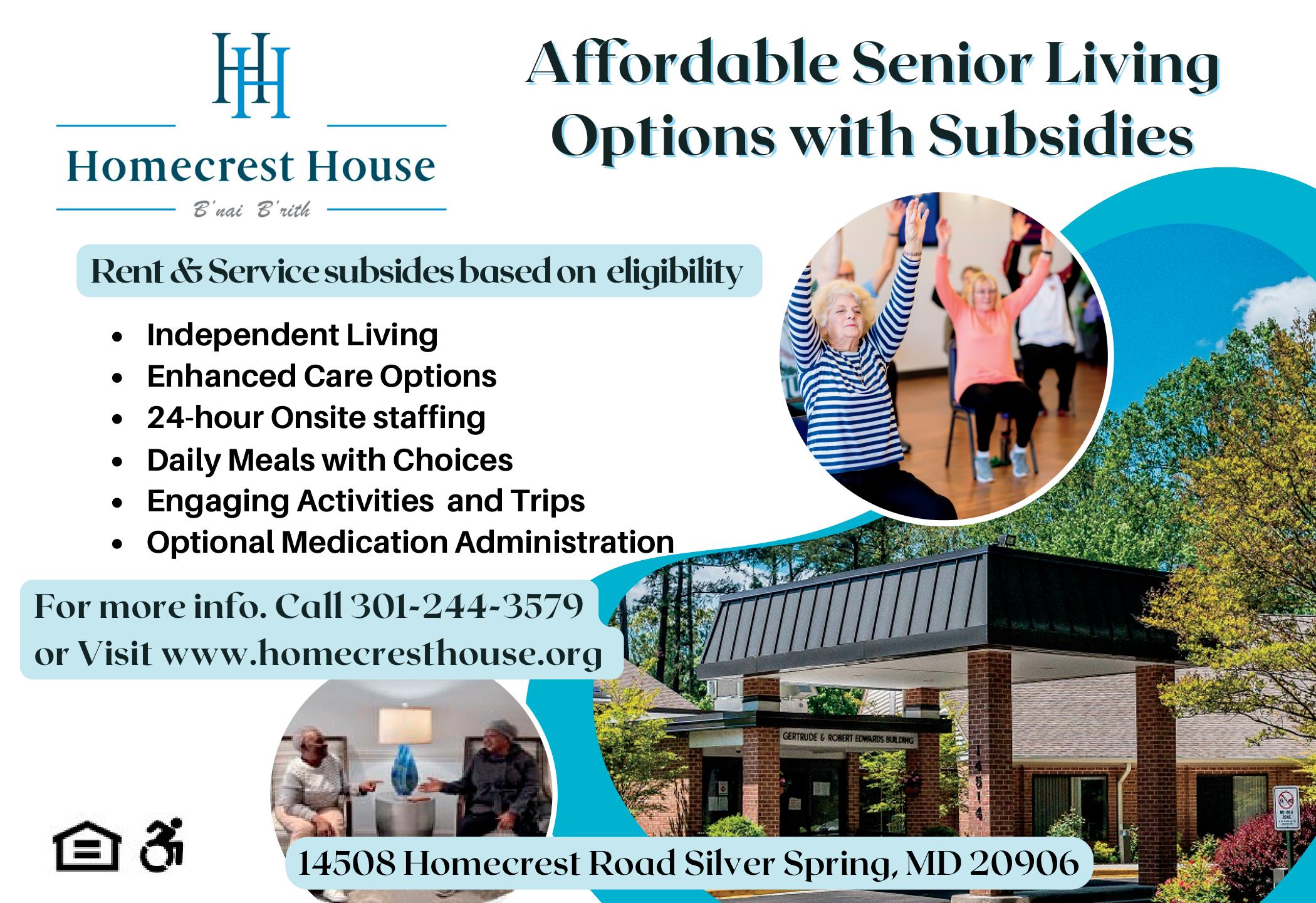

apply for public housing or Section 8 certificates or vouchers, you must go to your housing authority. Each housing authority has a system for accepting applications. Their representatives can explain their
system and how to find an available apartment.
HUD’s Section 202 program includes apartments where the government provides subsidies directly to owners of qualified properties developed with loans or grants from the federal government. The owners pass along the federal rental assistance subsidy to qualified residents to cover the gap between the resident payment, generally 30 percent of adjusted income, and rent costs.
To apply for housing in a privately-owned affordable housing community, a person will have to visit the management office for each community. Contact your local HUD office to get a list of privately-owned communities near you.
Source: www.aahsa.org/article.aspx?id=3780



Includes: Anne Arundel, Baltimore City and County, Carroll, Cecil, Harford and Howard Counties





Don’t walk the road alone. Find professional resources who can help you. (p.34)


Continued from page 40
There is never a charge for these valuable services of grief support.
Capital Caring Health is working directly with federal, state, and locallevel veterans service agencies to assure the veterans at Capital Caring Health get what they need, earned and deserve. Capital Caring Health’s robust Veterans Health & Support Services program spans throughout Virginia, Maryland, and Washington, D.C. Capital Caring Health works with EagleForce to provide travel funding for family members to travel to veterans’ bedsides, so that no veteran dies alone. They also provide formal honor and recognition ceremonies, oral history recordings, and friendly visits, so no veteran is forgotten. Finally, the organization helps veterans understand what VA benefits they are eligible for and navigate the complex application processes, so that no veteran ever has to go it alone.
Capital Caring Kids provides holistic symptom-directed care encompassing the social, emotional, psychological, and spiritual needs of infants, children, adolescents, and young adults up to age 30 facing serious illnesses.

Through a targeted pediatric program, Capital Caring Health provides care to the entire family, including everyone who loves the child who is ill. Staff members work directly with families to navigate the complex decisions regarding the scope of services and treatments and their impact on quality of life.
Each year, more Americans die from heart disease than any other condition, including cancer. Heart disease is also a leading cause for hospitalization: Patients with congestive heart failure alone account for more than one million inpatient
admissions annually.
To help those patients live longer and better lives, Capital Caring Health delivers palliative and hospice care services in patient homes.
Capital Caring Health is a member of The National Partnership for Healthcare and Hospice Innovation (NPHI) and has contributed to the development of a special Advanced Lung Care Program to support the home care of patients.
Capital Caring Health would not exist without volunteers. Volunteers serve in a wide variety of positions. They provide comfort and companionship to seriously ill hospice patients through
founded in the wake of George Floyd’s murder. To increase the understanding of diversity, equity, inclusion and belonging (DEIB), and ensure all patients and their families—regardless of race, ethnicity, sexual orientation, citizenship, or socio-economic status— are provided advanced illness care of the highest quality, Capital Caring Health created The Center.
By connecting with faith-based and other community leaders, The Center helps ensure that more people know about and use hospice and palliative care. The Center also works to promote DEIB and cultural competence among staff caring for hospice patients.
The Executive Director for the Center for Health Equity, Audrey Easaw pointed out that one of the Center’s focus areas is building trust equity in communities of
compassionate acts like reading to a patient or running an errand for a busy family. They provide art or music therapy for patients. Volunteers also help increase public awareness by staffing information tables and providing presentations. Finally, volunteers help operate the Capital Caring Health Thrift Store in Falls Church, perform administrative duties, and maintain a beautiful therapeutic garden. Positions are always available, and every volunteer is essential to the organization’s mission.
Capital Caring Health’s Center for Health Equity (The Center) was
color, so more diverse populations choose hospice care for themselves and their loved ones. “Caucasian communities are far more inclined to use the hospice benefit than communities of color,” Easaw said. “We are here building partnerships to help address the health disparity gap by consistently showing up in communities to provide information and other resources, including grief counseling services.”


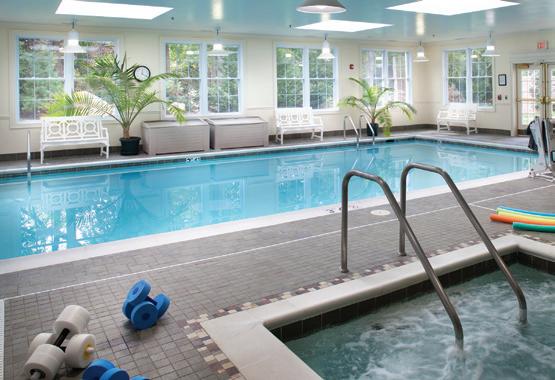






At Larmax Homes, we work closely with each resident and family to fulfill their individual needs. Located in Bethesda, MD and McLean, VA each assisted living home has 8 residents. Their quality of life is the only focus for our multi-disciplinary team of professionals.

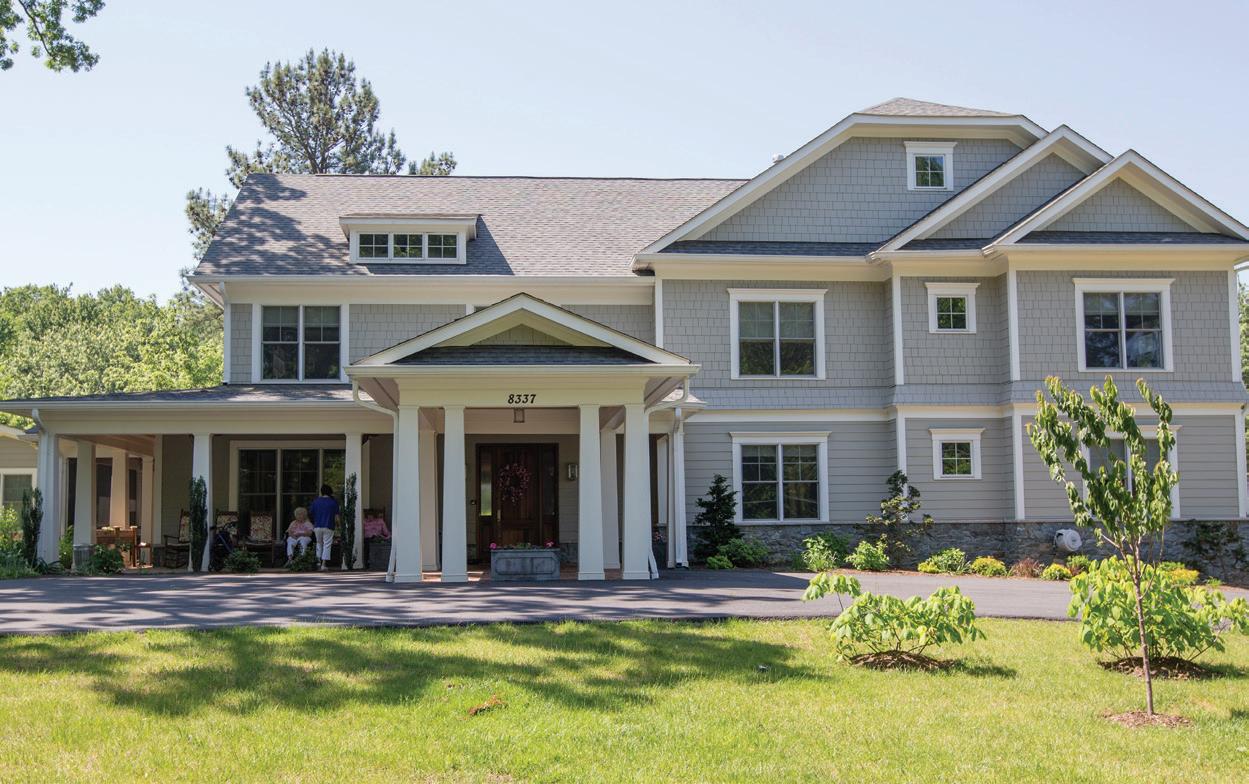

Larmax Homes develops, owns and manages small residential assisted living homes in Bethesda, MD and McLean, VA. We work closely with each resident and family to fulfill their individual needs. Each of our homes has 8 residents, and their quality of life is the only focus for our multi-disciplinary team of professionals. Whether it is enjoying the beauty of nature from our screened in porches, working with our music therapist, or participating in one of our engagement programs, our residents find meaning and purpose when they join the Larmax family.
Larmax Homes develops, owns and manages small residential assisted living homes in Bethesda, MD and McLean, VA. We work closely with each resident and family to fulfill their individual needs. Each of our homes has 8 residents, and their quality of life is the only focus for our multi-disciplinary team of professionals. Whether it is enjoying the beauty of nature from our screened in porches, working with our music therapist, or participating in one of our engagement programs, our residents find meaning and purpose when they join the Larmax family.
At Larmax Homes, we work closely with each resident and family to fulfill their individual needs. Located in Bethesda, MD and McLean, VA each assisted living home has 8 residents. Their quality of life is the only focus for our multi-disciplinary team of professionals. Whether it is working with our music and art therapists, going out for lunch or participating in one of our engagement programs, our residents find meaning and purpose when they join the Larmax family.
At Larmax Homes, we work closely with each resident and family to fulfill their individual needs. Located in Bethesda, MD and McLean, VA each assisted living home has 8 residents. Their quality of life is the only focus for our multi-disciplinary team of professionals. Whether it is working with our music and art therapists, going out for lunch or participating in one of our engagement programs, our residents find meaning and purpose when they join the Larmax family.
Larmax Homes develops, owns and manages small residential assisted living homes in Bethesda, MD and McLean, VA. We work closely with each resident and family to fulfill their individual needs. Each of our homes has 8 residents, and their quality of life is the only focus for our multi-disciplinary team of professionals. Whether it is enjoying the beauty of nature from our screened in porches, working with our music therapist, or participating in one of our engagement programs, our residents find meaning and purpose when they join the Larmax family.
Whether it is working with our music and art therapists, going out for lunch or participating in one of our engagement programs, our residents find meaning and purpose when they join the Larmax family.

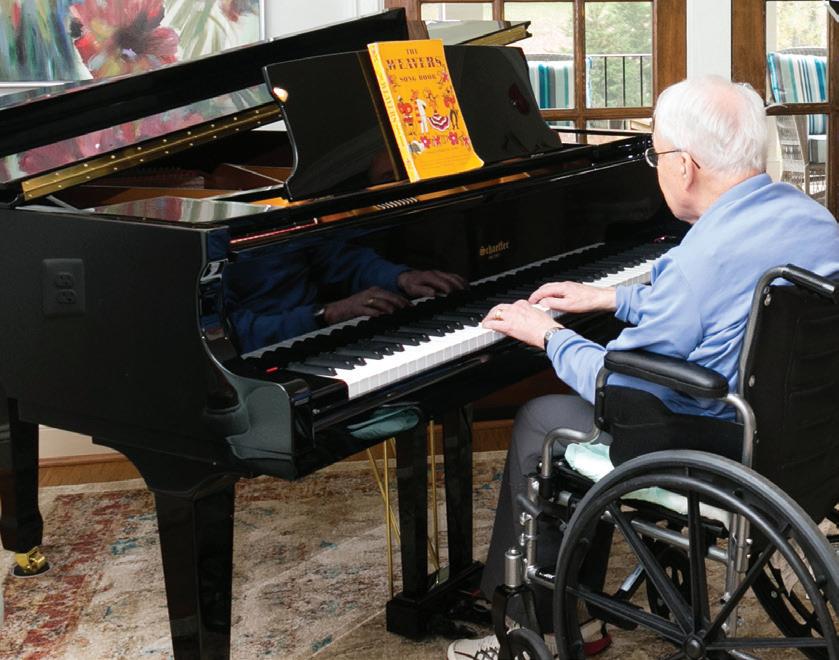


To learn more about our Maryland & Virginia homes www.larmaxhomes.com • 855-735-9900
To learn more about our Maryland & Virginia homes 855.735.9900
To learn more about our Maryland & Virginia homes 855.735.9900 • www.larmaxhomes.com
To learn more about our Maryland & Virginia homes www.larmaxhomes.com • 855-735-9900
To learn more about our Maryland & Virginia homes 855.735.9900 • www.larmaxhomes.com
To learn more about our Maryland & Virginia homes www.larmaxhomes.com • 855-735-9900

Assisted living communities offer a vital option for older adults who need some assistance with daily living. While the specific amenities will vary, all assisted living communities offer basic services including meals, supervision, security and help with personal care needs. For many residents, the help available at an assisted living community can allow them to continue to live their best life.
In most states, assisted living communities are registered, licensed or certified by an appropriate department or agency of the state that has a process for issuance of initial licenses and for renewing existing licenses. This process provides basic protections for consumers.
Residents of assisted living communities are generally seniors who need some assistance with basic activities, frequently called the
activities of daily living (or ADLs). Some communities may accept residents with Alzheimer’s disease and other forms of dementia. In fact, some communities may specialize in serving individuals with specific medical conditions, including dementia. A few communities serve individuals of any age
with developmental disabilities. When reviewing assisted living communities, consumers should ask about any specializations the community may have. The services and activities provided in assisted living communities help to promote the quality of life and



Continued on page 125
Being the caregiver for a loved one is a full time job, and that’s our specialty. Call today to learn how our family can care for your family.


When you can be the daughter again, it’s Harmony.




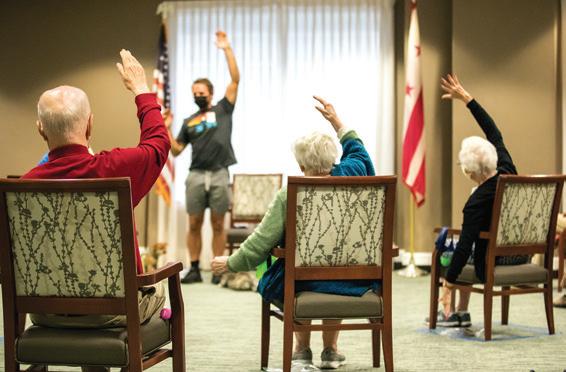




Continued from page 123
independence of the residents. One key offering is 24-hour supervision of the residents and the property. Resident safety and security is a priority at all assisted living communities.
All communities also offer three meals a day in a group dining room. However, dining options can vary dramatically in terms of the meals available and the costs associated with meal plans.
Finally, all assisted living communities offer personal care services, also known as help with the ADLs. These services include assistance with bathing, dressing and toileting.

Other services and activities available at some assisted living communities include:
• Medication management, or assistance with selfadministration of medicine
• Coordination of services by

outside health care providers
• Assistance with arranging medical, health and dental care services

• Social services
• Transportation services
• Outdoor areas for walking or gardening
• Supervision and assistance for persons with Alzheimer’s or other dementias and disabilities
• Recreational and spiritual activities
• Exercise and wellness programs
• Laundry and linen service

• Housekeeping and maintenance
• Individualized services

While assisted living communities do provide a high level of care, it is important to consider what is not provided at these communities before selecting one. Assisted living communities are a bridge between living at home and living in a nursing home. Assisted living communities do not typically provide the level of continuous skilled nursing care found in nursing homes and hospitals. For instance, if a prospective resident needs constant care, a nursing home
may be a more viable option.
There is no set standard for assisted living accommodations. Therefore, options can vary greatly from one assisted living community to the next. For instance, some communities offer private rooms featuring kitchenettes and private bathrooms, while others offer shared units or shared bathrooms. Consumers must consider the prospective resident’s personal needs, financial means and personal preferences before selecting a community.
Source: www.ahcancal.org



It’s a conversation we’ve been having with seniors and their families for over 30 years. At Victory Housing, you’ll discover our simple and straight-forward approach to assisted living. From all-inclusive rates to individualized care, our award-winning communities offer the ideal setting to call home. Call or visit us today, let’s talk.
Bartholomew House Bethesda • 301-320-6151
Byron House
Potomac • 301-469-9400
Grace House
Silver Spring • 301-924-4424
www.VictoryHousing.org

Malta House
Hyattsville • 301-699-8600
Marian Assisted Living

Olney/Brookeville • 301-570-3190
Raphael House
Rockville • 301- 217-9116
When considering potential assisted living communities, it is important to research your payment options.
Although Medicare does not cover the costs of assisted living, there are a variety of payment sources available. The National Center for Assisted Living reports that “certain services are paid under Supplementary Security Income and Social Services Block Grant programs.” Individuals who meet income qualifications may also be eligible for assistance through their state Medicaid program. Some communities also offer internal financial assistance programs. State and local governments may offer subsidies for rent to those who are income-eligible. Contact the local Area Agency on Aging for more information on subsidies and other payment assistance programs.
Long-term care insurance policies
provide another financing option for assisted living. Most of these policies will cover the costs of assisted living. Some of the costs of assisted living are also reimbursable through individual health insurance policies. While there are other payment options available, the vast majority of assisted living/personal care costs are covered through private payments

by residents and families. Individuals should investigate all available payment sources and obtain specific information on standard rates and fees for additional services before choosing an assisted living community.
Financial and insurance experts can provide more detailed information about all the available payment sources.

For millions of Americans living on limited incomes, Medicaid is an essential program. Many Americans are eligible for both Medicaid and Medicare. These dual enrollees may also be eligible for Medicaid Waivers that will cover home and community-based care in lieu of nursing home care.
Medicaid provides health coverage for low-income Americans. Although the Federal government establishes certain parameters for all states to follow, each state administers their Medicaid program differently.
According to the Centers for Medicare and Medicaid Services, Medicaid provides health coverage to 7.2 million low-income seniors and 4.8 million people with disabilities who are also enrolled in Medicare. These individuals are referred to as “dual enrolles” or “dually eligible.”
Many older adults prefer to age in their homes and communities, rather than moving to a long-term care setting. Medicaid Waivers can help make this possible.
Within broad Federal guidelines, States can develop home and community-based services waivers (HCBS Waivers) to meet the needs of income-eligible individuals who prefer to get long-term care services and supports in their home. State programs have their own names, eligibility requirements, and coverage limitations.




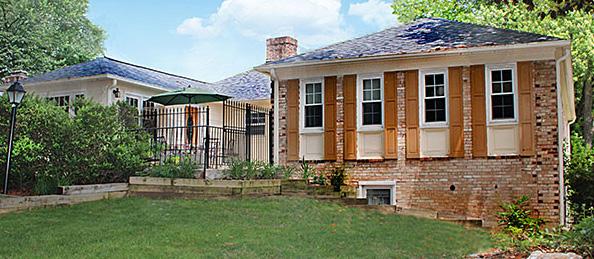
Eligibility for Medicaid coverage is entirely based on income; however, individuals who DO NOT qualify for traditional Medicaid MAY QUALIFY for Medicaid waivers to receive home and community-based services. When applying for a Medicaid waiver, states first consider the applicant’s need. They determine if the individual needs assistance with the activities of daily living or has a medical nursing need. For individuals who have aconfirmed need, states only consider the income of the individual covered by the waiver. Therefore, a lot of applicants who would not qualify for traditional Medicaid because of household income will qualify when only their personal income and assets are counted. Families should not assume they will not qualify!
Brooke Grove Rehabilitation and Nursing Center’s innovative place to heal and revitalize is simply different from any other option in the region. The best therapies and equipment—in a beautiful environment that rejuvenates and restores. Physical therapy spaces bathed in sunlight. Fireside gathering places and restaurant-style dining with sunset views over the lake. The quiet comfort of a garden walk or a relaxing massage.
A state-of-the-art Rehab CENTER

Fully dedicated to short-term rehab • Two-story physical therapy gym • Innovative therapies for faster healing • Expansive guest rooms with luxury bathrooms • Covered porches, courtyard and walking trails • Salon • Spa with massage room and soaking tub
18100 Slade School Road Sandy Spring, MD 20860 301-260-2320 or 301-924-2811 www.bgf.org
Begin a new season of independence, comfort and care at Brooke Grove Retirement Village.

Assisted living with a difference
LIFE® enrichment programming to enhance individual discovery, partnerships with families and inspiring experiences
• Private rooms with oversized windows and skylights
• Cozy family rooms, intimate dining rooms and sunny decks
• Innovative memory support
• Large, secure courtyards and enticing walking paths
• Flower and sensory gardens
• Playground for visiting kids
... because what surrounds you really matters.
18100 Slade School Road
Sandy Spring, MD 20860
301-260-2320
www.bgf.org
There are several resources that lowincome older adults and their families should research when looking for housing options in the Washington, D.C. Metropolitan region.

Congregate housing is a unique option for low-income older adults who need support services. These multiunit housing options provide private bedrooms and/or apartments and shared living spaces.
Many congregate housing sites offer social activities and services to assist residents. Services vary but can include meals, transportation, housekeeping and building security. Federal Congregate Housing is supported by the U.S. Department of Housing and Urban Development.
Eligible individuals include those who are 62 and older and have very low household incomes (50 percent or less of the area median income). To apply, older adults or their families should contact the individual communities they are interested in.

Wait lists for congregate housing can be extremely long. Most residents wait at least a year. Individuals who are currently living in substandard housing, who have been displaced, or who are paying 50 percent or more of their income in rent will receive preference. Occupants pay a minimal rent that is calculated based on monthly income.
Programs are operated by local Public Housing Authorities (PHAs). To find a PHA in your area, visit www.hud.gov/ program_offices
The state of Maryland offers an additional state subsidy program to eligible residents of low and moderate income senior housing who, due to advanced age or chronic health conditions, need daily help with activities such as meals, housekeeping and personal services. To be eligible, residents must be 62 years old or older; be physically or mentally impaired; need assistance with one or more of the essential activities of daily living; need one or more of the congregate housing services available in the facility; and be able to function
in the facility if provided with those services.
The Maryland program provides meals; weekly housekeeping of each participant’s apartment; and limited personal assistance with activities such as bathing, dressing and laundry. Costs vary by site.
To qualify, an individual’s income may not exceed 60 percent of the state median income and their assets may not exceed $27,375 for an individual, or $35,587 for a couple.
More information and a complete list of sites is available online: aging. maryland.gov/Pages/congregatehousing.aspx



Includes: Anne Arundel, Baltimore City and County, Carroll, Cecil, Harford and Howard Counties







Virginia has specific laws and regulations governing assisted living communities.

According to Virginia laws, licensed assisted living communities can provide two distinct levels of care. Residential Living services provide minimal assistance with the activities of daily living, or ADLs, to older adults who have only minor physical or mental limitations. Assisted Living services include more moderate assistance for residents who may need additional help to maintain their lifestyle. Aides and companions provide assistance with ADLs, as well as help with medications and arrangements for off-site medical services.
Assisted living communities provide residents with three meals and snacks every day. Meals are generally served in a congregate dining room. If a resident is ill, they can be served their meals in their rooms or in an on-site infirmary.
With the help of volunteers and activity staff, assisted living communities deliver social, recreational, and religious activities for residents. State regulations require that a certain number of hours each week are reserved for social activities among residents. Many assisted living facilities offer on-site facilities, amenities, and services. Certain services and facilities are typically included in the standard monthly fee that
every resident pays. These include: housekeeping services, laundry services, group and individual transportation services, facility maintenance and groundskeeping, some utilities, and security services. The specific services and amenities that are included should be detailed in the residential contract. Residents and their loved ones should carefully review the contract before signing.
To meet state requirements, all assisted living communities in Virginia must have administrators who are responsible for the management of the home. They must also have aides and companions who provide direct assistance with ADLs to residents, maintenance and housekeeping staff, food service personnel, and activity planners.
More information about Virginia requirements and resident’s rights and responsibilities is available at vhi.org.
All assisted living communities in Virginia must have administrators who are responsible for the management of the home.
At Tall Oaks, you can worry less and enjoy more. More energy for morning walks. More interactions with friends. More time to do what you love. And more space in which to do it!
Lounge on the back patio, dine with friends in the café, watch a movie in our theater, or make an appointment in our newly renovated beauty salon. Plus, care is available 24 hours a day. And it’s all just steps away from your spacious apartment.

Whatever you enjoy, you can embrace retirement knowing that you are—truly and happily—at home.


We look forward to helping you choose your new Tall Oaks apartment. Call 703-834-9800 today to schedule your visit!




Most parents are involved to some degree in the parent teacher organizations at their children’s schools. The same concept applies for senior living. When your loved one moves to a retirement community, you should make it a priority to become a part of that community. Volunteering is a great way to get involved. Give freely of your time and your talents, and you and your loved one will certainly reap the rewards.
Much like schools, senior living communities welcome volunteers from the larger community. They are especially keen to get residents’ family members involved. Volunteers often engage in friendly visiting or help out with special events or fundraising activities. Some volunteers lead discussion groups, accompany residents for walks or share a special
Continued on page 144
Senior living is often a decision made during a time of crisis. Commonwealth Senior Living encourages families to talk about the options before the need is imminent, and find a community now that everyone would feel comfortable with. Ask what your loved one would like to see in a community, and what might need to happen for them to decide it’s time to move.
Commonwealth Senior Living is 36 communities strong, and has been guiding families on this journey for more than 20 years. We would be honored to help yours too.

Life shouldn’t revolve around errands, pharmacy pick-ups, and chores. When you become a caregiver to a parent or loved one, your relationship changes.


You want to visit with mom or dad, but you end up working instead—missing out on irreplaceable time and memories.
At Chesterbrook, spend your quality time focused on what matters most— each other. We’ll take care of the rest.
“Dad has always been an outdoorsman. But when I’d visit, he’d be left watching TV while I paid bills and prepared his meals for the week. Now, we’re back outside, taking walks with my son and doing what he loves most.”
Call today to schedule a complimentary lunch or dinner for two and learn more.
Continued from page 142
talent. Most communities are open to ideas for potential volunteer assistance.

According to “The Benefits of Volunteering at a Senior Living Community,” by Marissa Salvesen, volunteers are essential to the operation of senior living communities and the well being of residents. “Volunteers can offer much-needed time and assistance, such as helping a resident organize a closet, writing cards or notes, or recording a resident’s life story; all tasks that can help families with the responsibilities of caregiving, providing them peace of mind,” Salvesen explained.
Family volunteers are particularly beneficial because they are familiar with the challenges that residents might face. By giving just a few hours of time, family members can help their loved one and other residents.
Becoming a part of your loved one’s senior living community will help your loved one adjust quicker to their environment and feel more connected. Adding a regular volunteer shift to your schedule will let your loved one know that you are committed to their community and enjoy spending time with their friends.
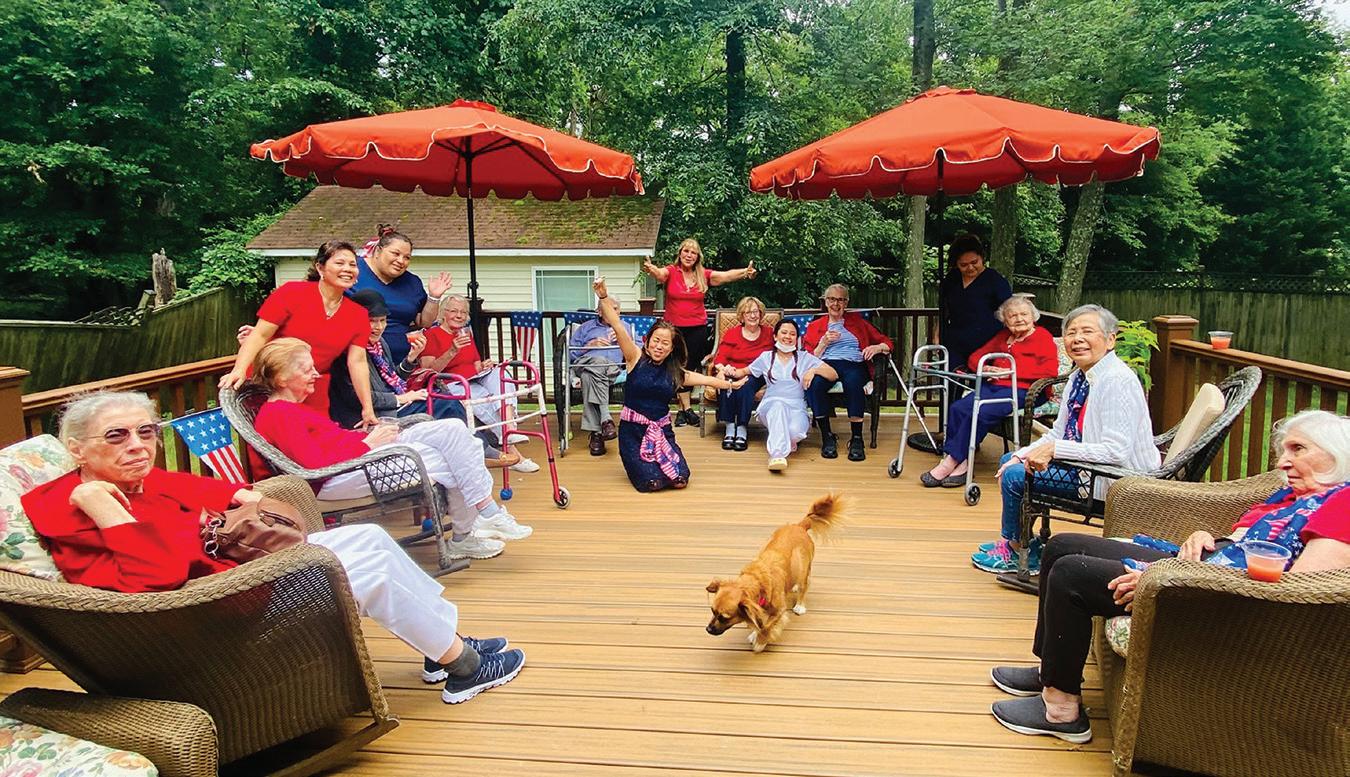
Volunteering at your loved one’s senior living community will help the entire family feel more connected to your older relative and their home. In addition, volunteers gain valuable experience with caregiving and learn a lot about life and our country’s shared history. Finally, family members who volunteer will gain greater peace of mind, knowing that their loved one is in a positive environment.
Young adults and even children should also be involved in volunteering at a loved one’s community. Volunteering will help young people stay connected with their older relatives and form relationships with
other older adults. Younger volunteers will learn the importance of giving back and gain an understanding of different generations.
Whether your loved one is preparing to move, or has been a senior living resident for decades, it is never too early or too late to get involved. Contact your loved one’s community today to ask about volunteer opportunities.
We strive to give families peace of mind, knowing their loved one will be in safe hands and treated with dignity and grace.
When your loved one moves
a
community, you should make it a priority to become a part of that community.
is a great way to get involved.


Potomac Place is an award-winning community nestled in a quiet, wooded neighborhood, just a short drive from all that Prince William County has to offer. Friendly neighbors and caring team members will help you feel at home. Plus, vibrant activities, licensed nurses, and delicious dining are only steps away from your spacious apartment!


Assisted living homes with 15 or fewer residents are often called group homes or senior care residences. Many people seeking an assisted living environment for themselves or a family member have investigated these homes as an option along with larger assisted living communities. Most of these homes offer the same services as larger communities, except in a smaller and more intimate setting.
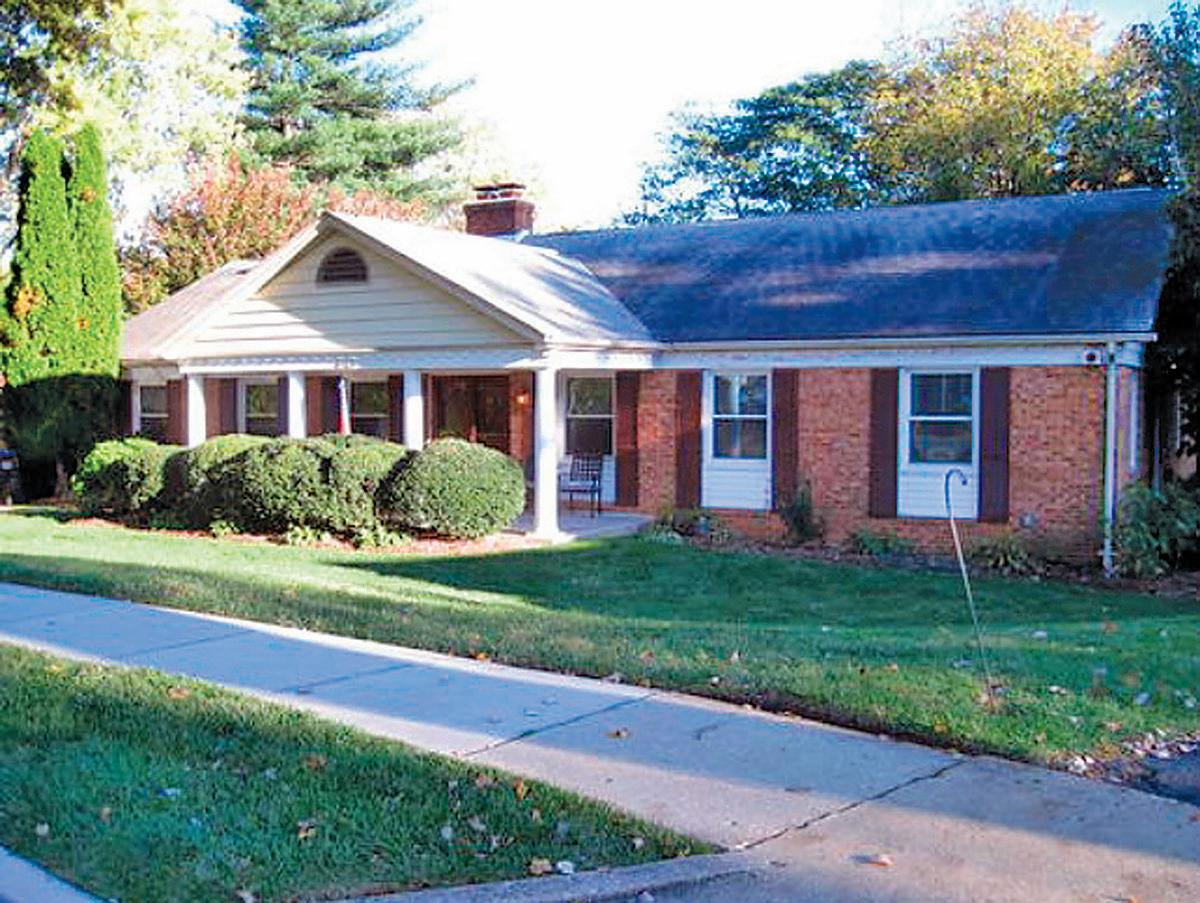
Considering a group home when researching assisted living is an important step if your loved one would prefer a smaller, homelike environment. Some of these smaller homes specialize in care for Alzheimer’s disease or related
memory impairments.
Individuals and families get to know each staff member well and can enjoy participating in the preparation and serving of meals, housekeeping tasks, gardening, or other daily activities. Food is prepared in small
Caring, Supportive and Secure. Avalon Homes is dedicated to providing quality care to people with Alzheimer’s Disease and other forms of memory loss in home-like settings in the McLean/ Falls Church area of Northern Virginia. Services provided include three home-cooked meals a day, snacks and beverages, housekeeping and laundry services, an activities program and dependable medication management.
301-656-8823 | E-mail: avalonassistedliving@gmail.com

quantities, and residents are encouraged to help. Group homes are usually nestled into neighborhoods, indistinguishable from other surrounding properties. Though regulations governing these homes differ across regions, a variety of agencies (county health departments, social services, long-term care ombudsmen) in most counties and cities provide significant monitoring of homes with four or more beds.
As with any community, it is important to visit the homes to talk with staff as well as the current residents and their families. Be sure that you are given specific information about caregiver training, community amenities and costs.

avalonresidentialliving.com

Trusted regionally owned and managed by a private company with over 20 years experience
Lovely dining room with all meals & snacks certified by a Registered Dietician
Social, educational and spiritual activities
410-544-7774
Coordination of health services: Pharmacy, physician, rehabilitation, Home Health and Hospice
Spring Arbor of Severna Park
410-324-2790
301-327-0991
Choice of a variety of accessible floor plans

Spring Arbor of Crofton
Spring Arbor of Frederick
Individualized Care Plans
State of the art call system
Residential Assisted Living and Dementia Care 345 Ritchie Highway, Severna Park, MD 21146 svmktg@HHHunt.com
Trained and certified staff available around-the-clock
Residential Assisted Living and Dementia Care
410-544-7774
Spring Arbor of Severna Park
Residential Assisted Living and Dementia Care
345 Ritchie Highway, Severna Park, MD 21146
540-548-2133
Spring Arbor of Fredericksburg
Residential Assisted Living and Dementia Care
5308 River Road, Fredericksburg, VA 22407
What
What
Walking paths around the community for exercise, fresh air and conversation
1495 Riedel Road, Crofton, MD 21114 cfmktg@HHHunt.com
Residential Assisted Living and Dementia Care
6601 English Muffin Way, Frederick, MD 21703 frdkmktg@HHHunt.com
Specialized Memory Care provided with our exclusive Spring Arbor Cottage Care program
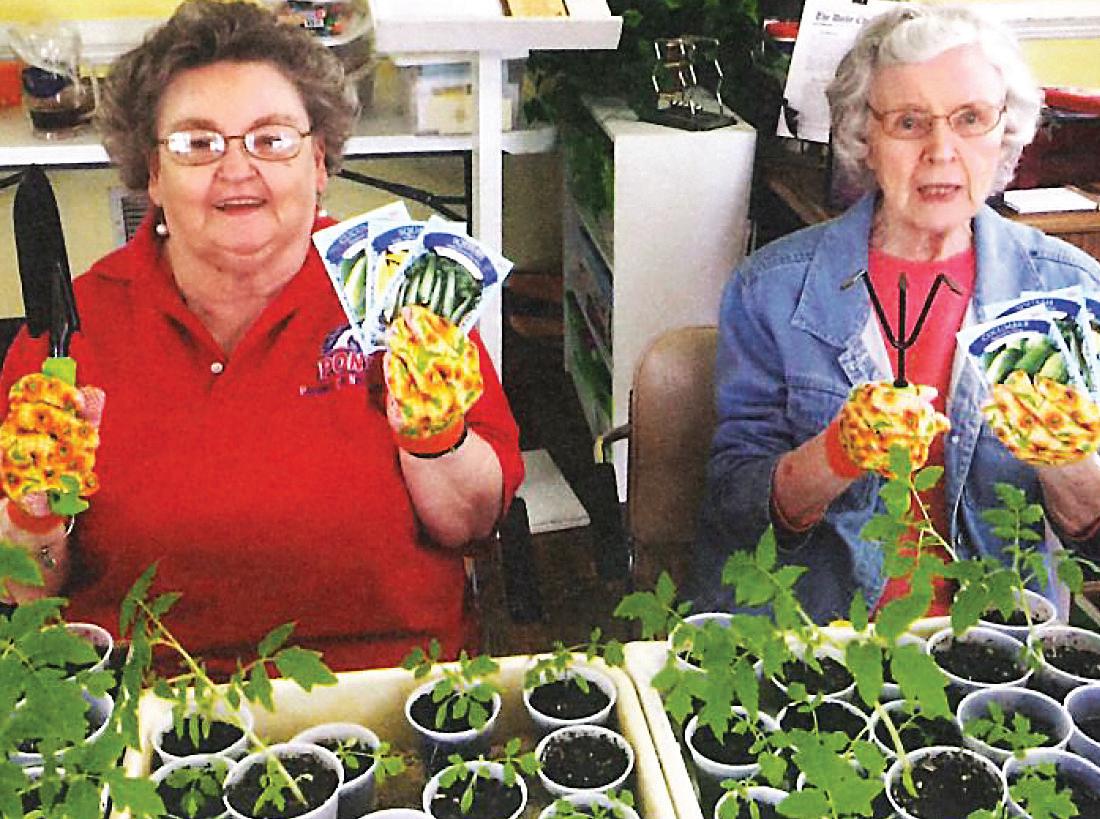
Much More!
410-324-2790
301-327-0991
Spring Arbor of Crofton
springarborliving.com
Residential Assisted Living and Dementia Care 1495 Riedel Road, Crofton, MD 21114
703-777-9300
Spring Arbor of Leesburg
Residential Assisted Living and Dementia Care
237 Fairview Street N.W.,Leesburg, VA 20176
Spring Arbor of Frederick
Residential Assisted Living and Dementia Care 6601 English Muffin Way, Frederick, MD 21703
540-662-6883
Spring Arbor of Winchester
Residential Assisted Living and Dementia Care
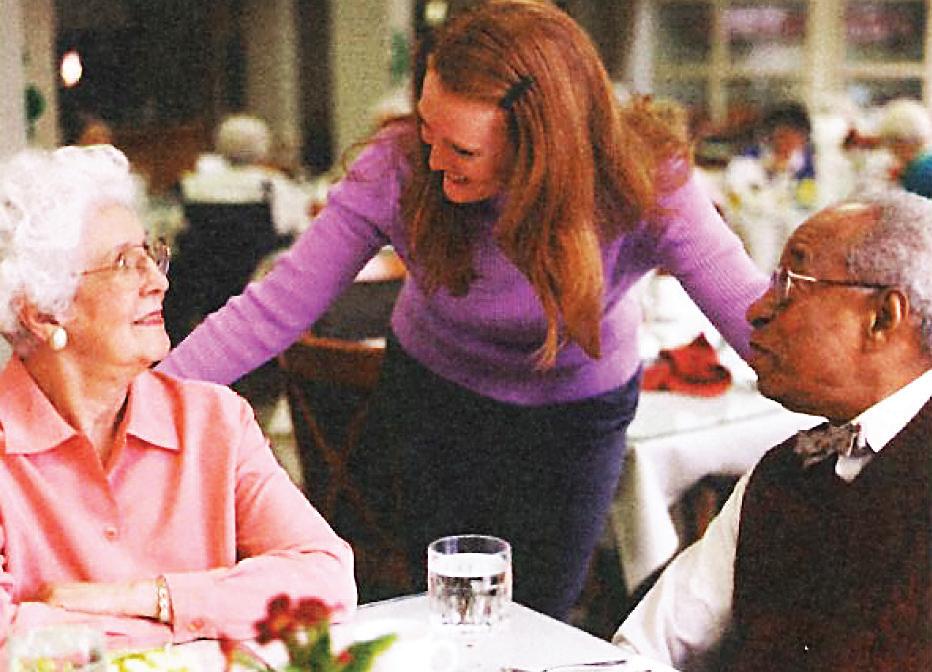


2093 Northwestern Pike, Winchester, VA 22603
great place to enjoy life. Call and visit us today: springarborliving.com
Is the community clean and well maintained?
Are there multiple floor plans available?
Can residents decorate their apartments according to their personal tastes?
Is the community pet friendly?
Does the community have safety features, such as handrails and grab bars?
Do individual residences include safety features, such as emergency alert and fire suppression systems?
What services are included in the monthly fee?
What services are available for an additional fee?
What are the fees?
How often do resident rate increases occur?
How much notice do residents receive prior to a rate increase?
Does the dining room look and smell inviting?
Are the dining room tables, chairs and linens in good condition?
Are three daily meals, snacks and beverages included in the monthly rate?
Does the resident committee work with the dining staff to develop menus?
Can the community accommodate special dietary needs?
What is the staff-to-resident ratio?
Is the community well staffed overnight?
How does the community handle residents who need additional care and support?
Do residents have access to in-home care if needed?
Do staff members undergo screenings and background checks prior to employment?
Is the staff screened and evaluated for their ability to work with older adults in the assisted living setting? Does the community have its most recent survey results posted or displayed for families to review?
Are staff trained and retrained at regular intervals?
Are housekeeping and laundry provided?
Are transportation services available?
Do caregivers interact with residents in positive ways?
Do residents appear tidy and well cared for?
Are activities scheduled throughout the day?
Are fitness classes offered?
Are there dedicated spaces for resident clubs and informal gatherings?
Does the community offer regular outings to local restaurants, theaters, museums and other destinations?
Are there outdoor spaces available for walking, gardening and recreation?
Are volunteer programs available?
Do the residents appear engaged?
Is the community conveniently located for friends and family to visit?
Is the community in a safe neighborhood?
Are there shopping, dining and entertainment options near the community?
Is the community near preferred medical providers?
Does the community look and feel like a place you could call home?
Talk with residents and their family members.
Source: www.whereyoulivematters.org, a senior living resource powered by the American Seniors Housing Association (ASHA)
We welcome residents into our warm home settings, care for them with respect and devotion, and ensure their days are filled with hope, purpose and joy. We operate two homes in Northern Virginia: one in the heart of Falls Church and the other in McLean (at Arlington border).

Contact us for more information or to schedule a tour (571) 449-6029
ParagonAssistedLiving.com
“I am so grateful for your approach to resident care and your vision to provide a different type of assisted living experience.” — Cheryl S (daughter of current resident)
TheGardensAtFairOaks.com

When it comes to choosing an assisted living community for someone you care about, the most important question you’ll ask yourself is “how well will they be cared for?”

As a family owned and operated assisted living community, we cannot overstate the importance of the relationships we’ve forged during the past 20 years. At The Gardens, we never take for granted the trust that each family puts in our family. From 24-hour nursing care to enriching social activities and exceptional fine dining, we are honored to care for your loved ones as if they were our own. Because to us, they are.
To arrange a tour or to learn more about our acclaimed assisted living, respite care stays, memory care or adult day care, call 703-952-5476 or visit TheGardensAtFairOaks.com.
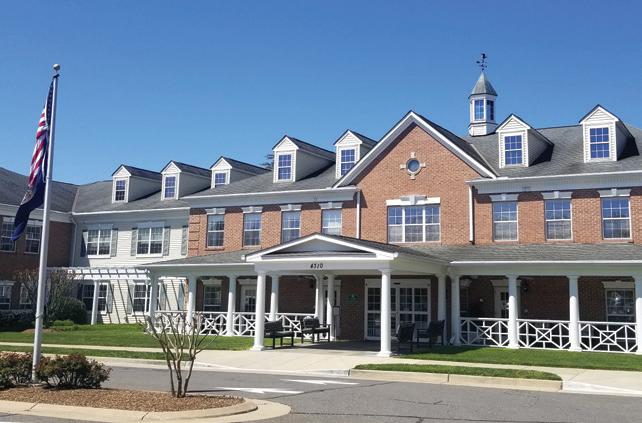

because nobody can care for your family like our family

Don’t walk the road alone. Find professional resources who can help you. (p.34)



At a nursing care center, care is administered by professionals under the direction of a physician. Many facilities also offer sub-acute, respite, rehabilitation and other short-term care. Rehabilitation services can be especially helpful for individuals who are recovering from surgery, an illness or any other life-changing event.

These communities serve as permanent residences for individuals who are too sick or frail to live at home, or as temporary facilities during a recovery period. Some residents enter a nursing care center for a short-term stay after a surgery or illness, while others enter on a more permanent basis.
Medicare, Medicaid, private insurance and personal assets are all
used under various circumstances to pay for services in a nursing care facility. If a facility is not certified by Medicare and Medicaid, the care will have to be paid for entirely with personal funds.

In general, Medicare pays for skilled nursing care following hospitalization for the same illness or condition at 100 percent of the cost for days 1 – 20. Some long-term
care insurance pays for nursing care centers; insurance payments are usually a fixed amount for a specified number of qualified days.
The basic daily rate is the standard charge the nursing care center bills to all residents, which covers the fundamental services every resident receives, including rent for the room, housekeeping, meals and general nursing care. It is important to understand all the services and amenities that are not included in the basic daily rate.
Before choosing a community, contact the Long-Term Care Ombudsman Program of your Area Agency on Aging. Ombudsman programs promote the highest quality of life and care for residents of nursing facilities and can help families and staff with inquiries and complaints.
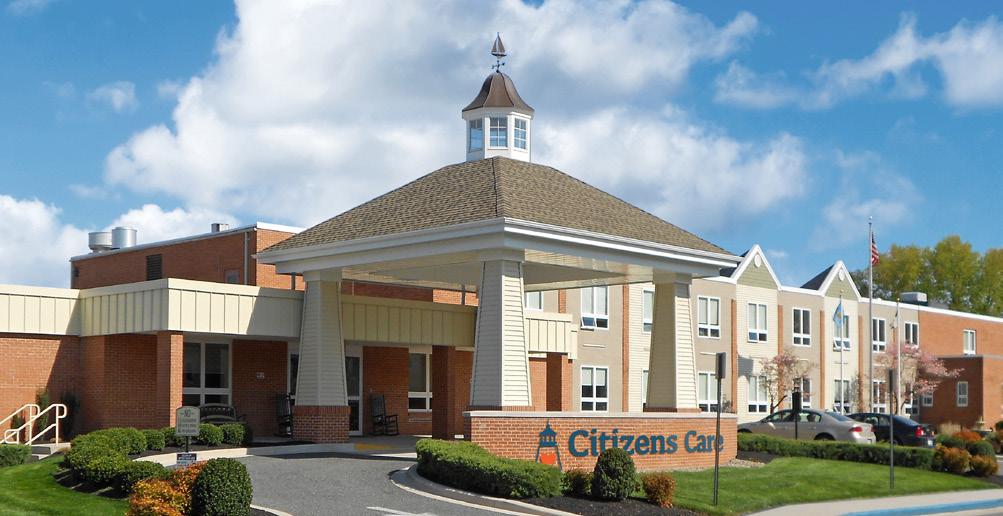
Nursing home care can be expensive. There are many ways you can pay for nursing home care. For example, you can use your own money, you may be able to get help from your state, or you may use long-term care insurance.
Most people who enter nursing homes begin by paying for their care out-of-pocket. As you use your resources (like bank accounts and stocks) over a period of time, you may eventually become eligible for Medicaid.
Medicare generally doesn’t cover long-term care stays in a nursing home. Even if it doesn’t cover nursing home care, you’ll need health coverage for hospital care, doctor services, and medical supplies while you’re in the nursing home.
Part A covers skilled care provided in a skilled nursing facility (SNF) under certain conditions for a
limited time. Skilled care is nursing and therapy care that can only be safely and effectively performed by, or under the supervision of, professionals or technical personnel. It’s health care given when you need skilled nursing or skilled therapies to treat, manage, and observe your condition, and evaluate your care.
Medicare covers certain daily skilled care services on a short-term basis (up to 100 days in a benefit period). For more information on Medicare’s coverage of SNF care, visit Medicare.gov or call 1-800-MEDICARE (1-800-633-4227).

You can use your personal money and savings to pay for nursing home care. Some insurance companies let you use your life insurance policy to pay for long-term care. Ask your insurance agent how this works.
Important: Be sure to get help before
Some insurance companies let you use your life insurance policy to pay for longterm care. Ask your insurance agent how this works.
using either of these options. There are important issues you need to understand.
Help from your state (Medicaid) Medicaid is a joint federal and state program that helps with medical costs for some people with limited income and resources. Most health care costs
Continued on page 157
•
•
Citizens
•
•

In Maryland, residents who meet certain financial and medical requirements may be qualified for nursing facility services through the state’s Medicaid program. The state serves more than 20,000 nursing home residents each year.


To qualify for medical assistance, the potential resident or the loved one who is helping them will need to apply though the local Department of Social Services in the county where the applicant resides or where the nursing home the applicant ALREADY lives in is located. Applicants will need to provide documentation of income and resources to qualify for nursing home coverage through Medicaid.
The applicant must also be certified as medically eligible for nursing facility services. This certification will be completed by the nursing home staff, hospital staff, or physician. To be medically eligible, an individual must have a health condition that requires
full-time care under the supervision of a licensed nurse.
For U.S. citizens or legal aliens who reside in Maryland and are 65 years old or disabled, eligibility for Medicaid is based on income and resources (assets). Income includes but is not
limited to: wages, Social Security benefits, pension, and Veteran’s benefits. Resources include but are not limited to: bank accounts, stocks, bonds, trusts, annuities, property, and life insurance. The way income and resources are evaluated and the amount that you may have and still be eligible for Medicaid are established by law. An individual’s countable resources cannot be worth more than $2,500 to be eligible.
There are eligibility exceptions that allow a spouse, disabled adult child, child under age 21, or sibling who lived with you to retain certain resources, including a home and some types of income. However, there are specific limits to how much the spouse or other eligible individual can keep and still maintain eligibility.
For additional information, contact a nursing facility staff specialist at 410767-1736 or visit maryland.gov.


Data from the U.S. Department of Veterans Affairs shows that veterans represented by accredited organizations receive significantly greater disability benefits than their non-represented counterparts.
The Maryland Department of Veterans Affairs Service and Benefits Program provides assistance in obtaining benefits for veterans and their eligible dependents. Charlotte Hall Veterans Home has an Accredited Veterans Service Officer located onsite to provide assistance.
A Veterans Service Officer can help you review military discharge documents, DD214’s, and individual circumstances of service to provide the best possible assistance and benefits you or your loved one may qualify for. A Service Officer will review eligibility through the Veterans Health Administration, the Veterans Benefits Administration, the National Cemeteries Administration, and other Maryland programs designed to assist veterans.
At Charlotte Hall Veterans Home, the Service Officer will also assist with developing, preparing, submitting, and tracking disability compensation/ pension claims to the Veterans Benefits Administration.
Benefits that may apply to our residents include:
Continued from page 155
are covered if you qualify for both Medicare and Medicaid. Most, but not all, nursing homes accept Medicaid payment. Even if you pay out-of-pocket or with long-term care insurance, you eventually may “spend down” your assets while you’re at the nursing home, so it’s good to know whether the home will accept Medicaid.
• Disability Compensation
• Veterans Pension
• Veterans Pension with Aid & Attendance
• Dependency and Indemnity Compensation
• Survivors Pension
• Adapted Housing grants
• Service-Disabled Veterans’ Insurance, and
• Veterans’ Mortgage Life Insurance.
In addition, If you are a veteran with 70 percent or greater serviceconnected disability, you may be entitled to the full cost of nursing home care.

Don’t miss out on benefits that you or a loved one may be eligible to receive. Let a qualified Veterans Service Officer help you and your family prepare for long-term care. By ensuring that you receive the maximum benefits available, these Officers can help your family avoid unnecessary financial strain when paying for costly long-term care.
To learn more about available benefits in Maryland, visit veterans. maryland.gov/.

Check with the nursing home to see if they accept people with Medicaid. Medicaid programs vary from state to state. Most often, eligibility is based on your income and personal resources. Many states have higher Medicaid income limits for nursing home residents. You may be eligible for Medicaid coverage in a nursing home even if you haven’t qualified for other Medicaid services in the past.
Sometimes you won’t be eligible for Medicaid until you’ve spent some of your personal resources on health care. Generally, even if you’re eligible for Medicaid, all of your income (except for a monthly personal needs allowance and amounts considered necessary to support your spouse and family living in the community) will go to pay your nursing home expenses and Medicaid will cover the rest. To get more information on Medicaid eligibility in your state, call your local Medicaid office.
Information excerpted from a Centers for Medicare & Medicaid Services publication. More information is available online at medicare.gov.










In addition to the federal laws that apply to all skilled nursing facilities, Virginia has specific laws and regulations for nursing homes. According to law, nursing facilities are responsible for preventing a patient’s condition and abilities from diminishing. To uphold this commitment, periodic patient assessments are necessary. All licensed nursing facilities must conduct and complete a comprehensive assessment of each resident within 14 days of admission. A significant change in the resident’s condition requires additional assessments and care plan changes. The medical and functional portions of the resident assessment form the foundation for each resident’s care plan. Every resident of a nursing home in Virginia must have a care plan. A physician must write all orders for the resident’s care including orders for medications and treatments. The
facility’s administrator or designated supervisor must review and approve all care plan changes before they can be instituted.
Nursing facilities never close. Service is continuous and a licensed nursing staff must always be present. Nursing facilities must also have a licensed administrator, physician medical director, director of nursing services, and nurses trained to deliver skilled nursing care on staff. To be licensed in Virginia, a nursing facility must have a Registered Nurse on duty for at least one eight-hour shift every day, seven days a week.
Licensed nursing care must be provided by a Licensed Practical Nurse, a Registered Nurse, a Clinical Nurse Specialist, or a Registered Nurse Practitioner. Basic services are often provided by Certified Nursing Aids (CNAs). In Virginia, CNAs must complete a certified 120-hour training program, pass a competency test
To be licensed in Virginia, a nursing facility must have a Registered Nurse on duty for at least one eight-hour shift every day, seven days a week.
within four months of being hired to work in a licensed nursing facility, and be registered with the Virginia Nurse Aide Registry. CNAs may provide assistance with Activities of Daily Living (ADLs) including bathing, dressing, eating, and toileting. For more information on nursing care requirements in Virginia, please visit vhi.org.
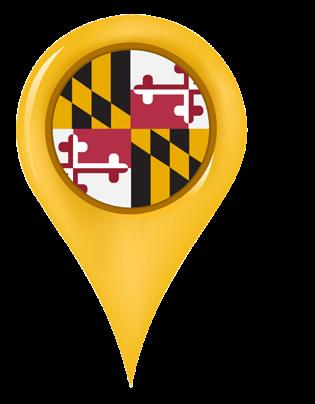

Continued from page 40
the scope of that program is naturally limited by the amount of pets who are specially trained to visit ill patients or bereaved family members. It is also challenging to help aging patients care for their own pets, since there are daily obligations.
While robotic pets have been around for some time, they were previously cost prohibitive. Now robotics pets are available for as low as $150 per pet. Capital Caring Health is able to provide the pets free of charge to anyone who cannot afford them with support from their generous donors.
For elderly people who are living in isolation or dementia sufferers who are unable to physically or financially care for a pet, robotic pets can be a low-cost way to make a significant impact on quality of life.
“The vast majority of the patients we provide pets to have dementia,” Cone said. “The patients often name the pups or cats for a real pet that they somehow remember. There is so much real affection for and attachment to these pets.”
Capital Caring Health recently began partnering with Insight Memory Care to provide robotic pets for individuals with dementia in their adult day care program. “They provide an enormous amount of comfort to our participants,” explained Executive Director of Insight Memory Care Anita Irvin. “We use the pets at specific times of the day when our participants may be stressed or anxious, such as during transition times. The pets help calm them down and give them a sense of purpose.”
At Insight, the participants have quickly formed attachments to the pets and are much more engaged when they are around. “When
the participants pet the animal, it responds with a bark or a purr. Seeing the animal respond back to them really heightens the connection,” Irvin said. “We’ve seen positive responses even in our late-stage dementia program where they may only be able to focus on the pet for two minutes, but that interaction still makes a world of difference in their demeanor.”
Through their charitable efforts, Capital Caring Health was able to donate 10 of the robotic pets to Insight. They are also working to help other not-for-profit hospice and advanced illness groups throughout the country learn about the benefits of robotic pets.
“We already make pets available to anyone in our service area suffering from dementia who cannot afford one,” Cone said. “We are working to help other organizations set up robotic pet programs as well, so we can help more dementia patients get these pets that provide so much comfort.”
Cone pointed out that the enormous impact of dementia on families and caregivers is often underestimated. Dementia is now the third leading cause of death in the U.S. after heart disease and cancer, and the numbers continue to grow. At Capital Caring Health, one of the 10 largest hospice organizations nationwide, half of
Adult day care centers and other senior providers are using robotic pets to help participants relax and feel comfortable.

their 2,800-3,000 daily patients have some form of dementia.
In addition to being a therapeutic tool for their growing number of dementia patients, Capital Caring Health has also discovered that the pets are an entry point to get families thinking and talking about hospice care. Unfortunately, most patients in America only enter hospice for the last two weeks of their life. However, so much more could be done for these patients and their families to improve the quality of life remaining if they entered hospice care earlier.
“Hospice care is something that too many people really don’t want to think about,” explained Cone. “But when you lead with the pets and focus on helping an individual who is suffering from dementia, you get a completely different reaction. This program has helped us reach people who otherwise would not consider our services. It has also helped us get donations from people who would otherwise not support us. This is a great opportunity to introduce people to everything that Capital Caring Health and other advanced illness providers can offer.”

• Neurocognitive evaluations.
• Psychiatric evaluations.
• Individualized brain health program.
• Psychiatric medication management.
• Coaching and counseling.
• Family and caregiver support.
• Improve brain health.
• Diagnose memory and psychiatric disorders.
• Treat existing psychiatric conditions.
• Treat dementia-related behaviors.
• Lower dementia risk and enhance independence.
• Provide education and support.
• Neuropsychologists.
• Psychiatrists.
• Psychiatric nurse practitioners.
• Neurocognitive specialists.
• Psychotherapists.
• Brain health and wellness coaches.
• On-site and telehealth services.
“My client really benefited from the neuro-cognitive evaluation and brain health plan. This gave me the information I needed to keep her functioning as independently as possible.” - Angela, Aging Life Care Professional
“When my husband began to have memory problems, his doctor sent him to the Brain Health Center. We are so appreciative of the care and support we received.” - Marilyn, Caregiver
You only get one. Brain, that is. That is why brain health is so essential for healthy aging.
Whether you are concerned about a loved one who is frequently forgetting things or noticing a change in your own memory, it’s important to take proactive steps to care for your brain.
Below are some simple steps everyone can take to protect their memories and enrich their brains.
1. Check – Often, individuals or loved ones may notice subtle signs of cognitive decline long before they mention the problem or seek medical attention. “There is typically a two-tofour-year gap between when a person notices cognitive problems and when they talk to a doctor,” explained Dr. William Mansbach, CEO and founder of Mansbach Health Tools, LLC and CEO of CounterPoint Health Services. “That is a lot of lost time—time that could have been spent seeking treatments and preventing further decline.”
If you feel like your memory is failing, or if you are noticing that mom is repeating herself and forgetting everyday tasks, don’t wait. Take action. Talk to a primary care physician. Start taking notes when you notice memory lapses. There are tools available to help you quantify what you think you are experiencing. Use them.
2. Test, Level 1 – One of the most powerful, reliable ways to evaluate your memory is an online screening tool called myMemCheck®. The tool is backed by science and has been peer-reviewed. It is the best cognitive self-assessment available to consumers. If a loved one is not computer savvy, you can assist them with taking the online test. The free tool is available at enrichvisits.com.
Test results are emailed and can be shared with loved ones or primary care physicians. If the test shows signs of memory decline, the results will suggest a follow-up conversation with a doctor. Sharing the report with the doctor is a good place to start the
conversation about memory loss. It is essential that individuals consult with a medical professional after receiving results that indicate a potential problem from myMemCheck®. Sometimes what may look like a memory issue at first could be a physical problem like a urinary tract infection or a reaction to a medication, or a mental health issue like anxiety or depression, noted Dr. Mansbach. Also, because of the difficulty finding and scheduling an appointment with a neurologist or neuropsychologist who specializes in memory loss, patients should always start with their primary care physician.
3. Test, Level 2 - If a self-screener indicates concern, or if you or a loved one would like to start with more advanced testing, there are also inperson and virtual professional tests available.
One of the most dependable virtual tests uses the BCAT® (Brief Cognitive Assessment Tool) to provide a comprehensive assessment of brain health in less than 30 minutes. The BCAT is not a screening tool, it is actually a cognitive test—making it much more detailed and accurate.

A live specialist guides patients through the test. Video visits are readily available and easy to schedule—making them preferable to an in-person visit for many people. Following the assessment, patients receive a detailed report that they can share with other medical professionals and use to make brain-healthy lifestyle choices.
Results from the BCAT® can tell people with approximately 95 percent probability if they have normal cognition, mild cognitive impairment or dementia. The test can also predict whether individuals will be able to live independently, or if they will need assistance with certain tasks. This information is vital for both patients and families as they work to plan ahead for the future. Go to enrichvisits. com to learn more or schedule.
If a patient wants a thorough, in-person evaluation, they can visit a geriatric psychiatrist or neuropsychologist. While it can be difficult to locate specialists and get on their schedule, there are options available. In the Mid-Atlantic region, individuals can visit local offices like CounterPoint Health Services that can offer in-person evaluations
ProMedica offers a unique range of care in the Washington, D.C. Metro and Baltimore areas. By pooling our resources and expertise, we are able to provide carefully coordinated, individualized care options that maximize health, comfort, independence and dignity for our residents, clients and their families.

Arden Courts are stand alone, purpose-built memory care communities which are 100% dedicated to caring for persons living with Alzheimer’s disease and other related dementias. We’ve considered every aspect of care, including design, staffing and activities, to offer a safe and supportive environment all to help maximize our resident’s sense of independence and self-esteem. Our structured, success-oriented programming is tailored for all levels of dementia and utilizes life skills and interests to create an engaging, social environment for our residents. At Arden Courts, we know, we understand, we can help. Because memory care is all we do.
Springhouse - A ProMedica Senior Living Community is designed to be a gracious home specifically for seniors who need extra support and assistance, but do not require the intensive services of a nursing home. A place which gives residents control over their lives and encourages choices and independence. A place which enhances life through wellness programs, activities, socialization and personal care services. A place with a warm, caring and knowledgeable employees.
Springhouse ProMedica Senior Living Community
According to the Alzheimer’s Association International Conference 2021 , from 1999-2019, there was an astonishing 88 percent increase in the U.S. mortality rate from Alzheimer’s. Globally, there are more than 350,000 new cases of early onset (prior to age 65) dementia per year, and that number continues to grow.
Positive Aging Sourcebook hosts weekly Digital Discussions on a diverse array of positive aging topics. These free events bring together senior-serving professionals, older adults, and family members to discuss important and timely aging topics.
During Sourcebook ’s recent Digital Discussion on Early Onset Dementia, we welcomed Lindsey Vajpeyi, the director of early-stage dementia programs at Insight Memory Care Center in Fairfax, Va. Below are the audience’s questions and Lindsey’s answers, edited for length and clarity.
Q: Can you define the distinct levels of cognitive impairment?

Lindsey: Yes! Dementia is a very general word that we use to describes changes in cognition that are more severe than what would be considered normal aging. Dementia interferes with daily life. It’s not forgetting your keys once in a while; it’s consistently forgetting dates or having trouble completing daily tasks.
Alzheimer’s is the most common form of dementia, but there are other lesser-known types. There is also mild cognitive impairment, or MCI, which is the middle of the road between normal aging and dementia. People with MCI have some cognitive changes that are identifiable by professional testing, but they are still able to complete daily tasks—they may just need more time.
Q: If I think mom (or dad) has some form of dementia, what should I do? Where do I start?
Lindsey: You will want to determine if this is just a normal part of aging or if it is dementia or mild cognitive impairment. The first step is to schedule a visit with your loved one’s primary care physician. While this might eventually lead to a referral to a neurologist, the primary care physician is the best place to start, and they will review everything from blood work to medication interactions to determine what is really happening. They will rule out other possibilities before they start to look at dementia or Alzheimer’s.
Q: Are there free or low-cost resources for family caregivers who are providing care on a limited budget or without insurance coverage?
Lindsey: There actually are some options. At Insight Memory Care Center, we provide consultations free of charge to anybody, anywhere. We are a nonprofit adult day health and resource center focusing on Alzheimer’s disease and other memory impairments. Beyond free consultations, Insight also has lots of resources available on our website at insightmcc.org.
The Alzheimer’s Association provides a wealth of information free of charge at alz.org. They host support groups as well. In Northern Virginia, Elderlink provides free consultations and can help you learn more about local resources.
If you are not local, you should visit Eldercare Locator at eldercare.acl. gov to find resources anywhere in the country. Likewise, no matter where you or your loved one live, contact your local Area Agency on Aging for resources.
Adult day care is a crucial resource for family caregivers. Most counties offer some form of adult day care for older adults with dementia. Families contribute to the cost of care on a sliding scale. Independent non-profit organizations like Insight also offer financial assistance to help cover the costs of adult day care for low-income families.
Q: How do I monitor my own behavior?
Lindsey: I think one of the most important things anyone can do is to start a conversation with their doctors and the people they interact with on a regular basis. Let people around you know that you want to hear from them if they are seeing something that concerns them.
Q: What is the one thing you wish care partners or those with a recent Alzheimer’s diagnosis knew?
Lindsey: Most of all, I wish families and individuals with a diagnosis knew to start asking questions and talking sooner. I hear so often from families that they wish they had known about a program or resource years ago. Many families wish they had talked more to Dad about how he wanted to be cared for while he was still capable of having the conversation. So, my words of wisdom are really: start talking and keep talking. These conversations will be uncomfortable, but they need to happen before they can’t happen.
Alzheimer’s is the most common form of dementia, but there are other lesser-known types.
Continued from page 169
(counterpointhealthservices.com).

4. Prevent – Prevention is ALWAYS the best medicine, but how do you prevent cognitive decline? The answer is simple, but the implementation is hard.
“I always tell people to move their bodies, work their minds and to be social,” said Dr. Mansbach. “It’s pretty straightforward.” He also emphasized that there are proven tools to enhance memory and cognition, especially working memory exercises. Maintaining a healthy weight and keeping blood pressure in check are also essential to a healthy brain as you age.
There are lots of free tools available online to help individuals exercise their brains. The ENRICH® brain health website also hosts a free online calculator that helps individuals evaluate if they are taking the right steps now to avoid dementia later. It is available at enrichvisits.com.
5. Treat – The first step in any treatment plan should be assessment. Whether it is a free, online selfassessment, a virtual professional assessment, or an in-person specialist visit, if you or a loved one is experiencing any of the signs or symptoms of dementia or cognitive impairment, you should consider an assessment. The only way to treat any type of cognitive impairment is under the care and supervision of a medical professional.
Armed with your assessment, seek out help first from your primary care physician and then from a specialist as needed. There are promising treatment protocols available to help treat and slow the progression of cognitive decline and dementia. Don’t wait for years. Act now to protect the vital organ that is you—your brain.
For more information and to access the tools discussed, please visit enrichvisits.com.
Being the caregiver for a loved one is a full time job, and that’s our specialty. Call today to learn how our family can care for your family.
|

“There is typically a two-to-four-year gap between when a person notices cognitive problems and when they talk to a doctor. That is a lot of lost time—time that could have been spent seeking treatments and preventing further decline.”
Dr. William Mansbach, CEO and founder of Mansbach Health Tools, LLC

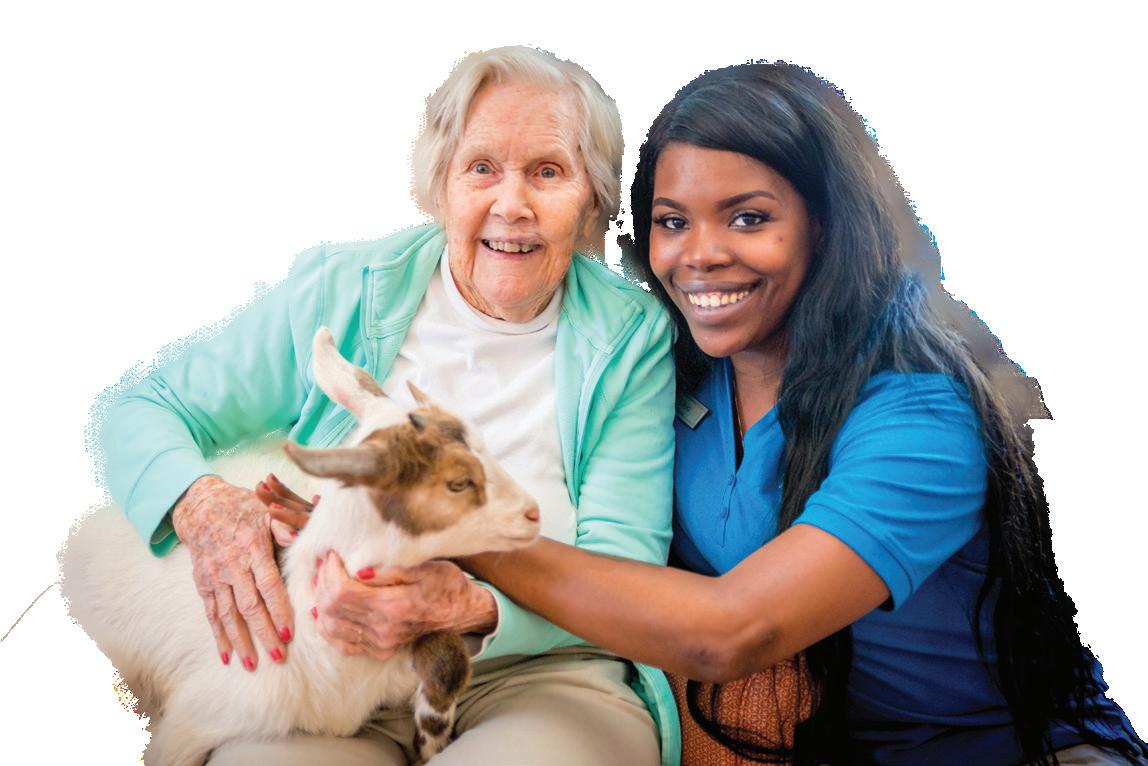




Are families encouraged to participate in care planning?
Do staff members communicate openly with families?
Are families informed of changes in the resident’s condition or care needs?
Is personal care and assistance provided?
Is medical care provided?
Is care personalized to meet specific resident needs, abilities and interests?
Is the staff specifically trained in dementia care?
Is there a physician and/or nurse practitioner on the premises and a registered nurse on site at all times?
What is the ratio of residents to staff?
Is staff equipped to handle challenging behaviors?
Are planned activities scheduled, and do they


actually take place?
Are activities designed to meet specific needs, interests and abilities of residents?

Are activities available on the weekends or in the evenings?
Is transportation available for medical appointments or personal shopping?
Is physical, occupational, speech and recreational therapy available?
Do residents appear comfortable, relaxed and involved in activities?
Are residents well groomed, clean and dressed appropriately?
What is the rate of falls for residents?
Is the facility free of unpleasant odors?
Is there indoor space available for residents to move around freely?




Approximately 80 percent of Americans would prefer to die at home, according to Stanford School of Medicine. Despite this, only 20 percent of Americans actually die at home —while 60 percent die in acute care hospitals and 20 percent in nursing homes.

The high number of deaths in intensive care units and institutional settings is largely due to the medical system’s default tendency to try to “cure” terminally ill patients, even when they have incurable, irreversible diseases. As a result, many people endure needless suffering at life’s end, and their agonizing, prolonged deaths traumatize their loved ones.
But there are options for terminally ill adults who don’t want to suffer and value quality of life over quantity of life. Terminally ill patients with a prognosis of six months or less to live are eligible for free hospice and comfort care benefits under Medicare and Medicaid. Hospice and palliative care relieve suffering for some terminally ill patients, but when

they don’t, there is an additional option called “medical aid in dying.”
“Hospice and palliative care often work wonders, but contrary to popular belief, they do not relieve every patient’s suffering,” said Donna Smith, Compassion & Choices State Director of Advocacy for Maryland and DC. “Medical aid in dying allows patients to have the voluntary option to request a doctor’s prescription for medication they can decide to take—if and when their suffering becomes unbearable—so they can die peacefully in their sleep, at home, surrounded by their loved ones.”
Medical aid in dying is available for mentally capable, terminally ill adults with a medical prognosis of six months or less to live in the District of Columbia and ten states (Maryland and Virginia have introduced similar legislation).
Having end-of-life care options can provide comfort to terminally ill adults, whether they utilize it or not, because it ensures they won’t have to suffer needlessly at life’s end.
Medical aid in dying laws can benefit
Source: Stanford School of Medicine
even those who don’t need—or oppose—the practice, by encouraging conversations between terminally ill adults, their loved ones, physicians
Continued on page 200
But approximately 80% of Americans would prefer to die at home.



A patient and family may turn to hospice care when the goals of patient care have switched from curing to comforting. Hospice involves a special system of supportive services, including pain and symptom management, social services, and emotional and spiritual support. Any individual of any age with a diagnosis of a terminal disease may turn to hospice.


Medicare, Medicaid or private insurance generally require a prognosis of six months or less for services to be covered.
In addition to traditional medical hospices, there is a non-medical hospice program in Montgomery County that offers support for patients with a year’s prognosis or less who may choose to continue their curative treatments.
Hospice is unique in that care and
support are provided to the entire family, not just the patient. A team of skilled professionals and volunteers work to serve the special needs of everyone involved.
Choice is at the center of the hospice approach — a person faced with a lifelimiting illness is encouraged to remain in control of his or her life.
As care is usually provided in one’s home, many hospice patients live out their lives in the comfort of familiar daily routines, surrounded by their treasured possessions along with family and friends.
However, hospice services may also be provided in long-term care facilities or in-patient hospice residential settings.

Hospice team members focus primarily on managing the patient’s pain and symptoms with medication,
medical supplies and equipment. Other services, such as speech and physical therapy, are available if necessary.
If managing the symptoms within the home becomes impossible, hospice providers can offer short-term inpatient care.
While family members learn how to properly care for the patient, information and support is also available to help everyone deal with the emotional, psychosocial and spiritual aspects of dying. Surviving loved ones will receive bereavement care and counseling from the hospice professionals.

Most services are fully or partially covered by Medicare, Medicaid, private insurers or prepaid health plans. The non-medical services available in Montgomery County are free and delivered by a staff of trained volunteers. For traditional hospice services, financial assistance is available.
The National Hospice and Palliative Care Organization notes that, “Eighty percent of people who use hospice

care are over the age of 65, and are thus entitled to the services offered by the Medicare Hospice Benefit. This benefit covers virtually all aspects of hospice care with little out-of-pocket expense.”











To receive the Medicare Hospice Benefit, patients must be eligible for























































Medicare Part A, have a terminal disease or condition with a less than six months prognosis, and sign a document certifying that they are choosing hospice care instead of routine Medicare benefits.













Patients may only receive covered benefits from a Medicare-approved








hospice program. In addition to Medicare’s coverage, hospice services are also generally covered by Medicaid or private insurers.





For more information, see www.caringinfo. org or the information on hospice care at www.cancer.org.


Heidi Young, MD
Medical Director


Primary Care at Home
Leading the team is Dr. Heidi Young, Primary Care at Home Lead for Capital Caring Health, who brings more than 15 years of experience in Internal Medical and Hospice & Palliative Medicine. She attended Georgetown University School of Medicine and completed an Internal Medicine Residency at the University of Chicago and a Hospice & Palliative Medicine Fellowship at the National Institute of Health.

Medical Care for Elders that Delivers Peace of Mind
Who Do We Serve?
Older adults (55+) with chronic illness who need help getting to a doctor’s office
1. HOUSE CALLS Our doctors, nurse practitioners (NP’s), and social workers specialize in primary care for older adults. We see patients regularly to coordinate their routine, urgent, specialty and hospital care.
2. 24/7 ACCESS Our team is available by phone 24/7 for immediate concerns and can make urgent visits within 1-2 business days.


3. SOCIAL WORK Our social workers help patients and families find resources, assist with life transitions, and provide counseling and caregiver support.
4. MOBILE TECHNOLOGY Our clinicians can perform in-home testing such as blood work, X-rays, and ultrasounds. We offer a secure online messaging tool to communicate with our team, and we provide tele-health visits as needed/appropriate.
Our Goal: Peace of Mind
We provide health care for elders with serious illness, enabling them to age in place. Our high-level services include complex medical care, medication management, coordination of specialty care, social work support, and 24/7 phone access.
We accept Medicare, Medicaid, and other insurances that cover our medical house call visits. Standard copayments do apply.
Primary Care at Home is now serving a variety of areas in Washington DC, Maryland and Virginia. Call us today for more information.

We look forward to hearing from you!
703-333-6969
Never want to move? Want to receive the care and support you need in the home you love? Whether you are committed to remaining in your long-time family home or an amenity rich apartment community, there are plenty of options for aging in place. Start here to find them all.
What aging in place options are available and how can they help me?
Home care is a large and diverse field. The basic home care options include companion care, home healthcare and skilled nursing care
Companion caregivers serve as surrogate family members and may offer assistance including meal preparation, medication reminders, light housekeeping, transportation and help with exercising.
Home healthcare providers help older adults perform the activities of daily living they are no longer able to complete alone. These may include bathing, dressing, transferring, eating and toileting. Home healthcare providers may also offer some companion care services.
Skilled nursing services are prescribed by a physician and delivered by a registered nurse. This type of care may include administering injections or medications, wound care, catheter care, respiratory therapy, or other medical tasks.

Adult day care centers offer a variety of programs and amenities for older adults who need care and social opportunities during the day. Many providers offer assistance with the activities of daily living including eating, walking, toileting and medication management. They also generally offer a diverse schedule of activities including exercise programs.
Villages are communities where residents work together to afford older adults the opportunity to remain in their homes as they age. Older adults receive volunteer support that allows them to maintain their independence. All residents benefit from
Aging in place options include home care and adult day care.
Home care providers are available to help older adults who want to age in place. Care options range from occasional companion care to full-time skilled nursing care.
enhanced multigenerational social connections.
Shepherd’s Centers of America promote aging well in the community by providing lifelong learning, volunteer service, healthy living, and community engagement opportunities for older adults. There are currently 55 community-based Shepherd’s Centers in 17 states, including five in Northern Virginia.
How should I find an aging in place provider?
Use our research. Sourcebook features detailed articles, checklists,
featured listings and comprehensive tables in each of our specific aging in place sections. Use these resources to begin your search for a provider or option that is right for you and your family.
After selecting the type of provider that best fits your wants, needs and budget, you should start calling individual companies to request additional information. Most providers can offer detailed brochures and easyto-understand financial information.
Given all the options available, older adults and their families can easily age in the place they love—home.
A Village is a community or group of people who want to live in their own homes as they get older, with all the resources needed to live active lives. A village provides many of the benefits of a traditional retirement community—all in the comfort of the family home.

Village residents maintain their independence, their friendships and multigenerational community connections. Because they work together to ensure each other’s continued health and safety, residents are able to live long, full lives in their homes.
Villages offer volunteer help to their members. Volunteers provide transportation to medical appointments, grocery delivery, and other specialized services as needed. Volunteers may also help with simple tasks at home.
Examples include small repairs, changing light bulbs, providing cooked meals to a sick neighbor, or offering assistance with laundry for someone who was just released from the hospital.
Villages focus on building social
connections. There are organized events, large and small, that are of interest to the community. Villages may organize book clubs, walking groups, knitting clubs, guest speaker events, group outings and so much more. Many Village events take place at a neighbor’s home; others take place at a local church, synagogue, mosque, library or community recreation center. Villages often partner with other local organizations to develop programs together.
Villages are created by residents of the community. The residents are people who have a vision for an improved quality of life for all. Every new Village starts with a vision and with a dedicated core of individuals ready and willing to make that vision a reality.
For more information, visit wavevillages.org or Village to Village Network - National Network: vtvnetwork.org .
A ride to a medical appointment. An interesting class. A meaningful volunteer opportunity. These might not sound related, but they are all essential elements to happy and healthy aging. And they are all offered by the Shepherd’s Centers of America Network.
Shepherd’s Centers of America promotes aging well in the community by providing lifelong learning, volunteer service, healthy living, and community engagement opportunities for older adults. There are currently 55 community-based Shepherd’s Centers in 17 states, including five in Northern Virginia (see sidebar for locations and contact information).
The national network of centers provides services ranging from free transportation and friendly visits to respite care and learning opportunities to more than 165,000 older adults and their families—all at no cost to the participants. Volunteers are the backbone of the centers—making the mission possible.
While the centers all provide vital support to older adults, the individual program offerings are as diverse as the populations served. “We’re so proud of the fact that no two Shepherd’s Centers are exactly alike,” said Shepherd’s Centers of America Executive Director Sarah Cheney. “Each center is designed by, with, and for older adults, based on their needs and interests.”
165,000
660,000 $18.8 mil value
55
A Methodist minister named Elbert Cole founded the first Shepherd’s Center in 1972 in Kansas City, MO. The concept quickly grew and Cole established Shepherd’s Centers of America in 1974 to further connect more older adults to meaningful and enriching opportunities. He identified several shared values that still influence the work of Shepherd’s Centers today including wellness, inclusion, and giving back to society.
“I think our history is important because it highlights the essential principles that still guide us today: empowerment and inclusion,”
13,000 Active Volunteers across
explained Cheney. “These were pretty radical concepts back in 1974, and they are still pertinent today.”
Shepherd’s Centers are not associated with the Methodist church. They are interfaith or no faith organizations and proselytizing is strictly prohibited. All centers emphasize inclusion and individuals from all religious and cultural backgrounds are welcome and encouraged to participate.
What is a Shepherd’s Center?
A Shepherd’s Center is a community of older adults who come

After surgery to remove a kidney, Howie Hallock needed to maintain a strict diet. His longtime partner Jean Eckert, an accomplished artist with a studio in Georgetown, is far more comfortable painting than cooking.
Jean and Howie agreed they needed a solution for meals, but all the meal service options they tried didn’t work out. “We tried cooking classes and some meal delivery services, but they just weren’t for us,” Jean recalled.



The couple’s search eventually led them to Elder Nourish, which provides customized meal plans and nutritional support for older adults in Washington, D.C. and the metro area. Founder and CEO Kim Lipinski met with Jean and Howie to discuss their dietary restrictions, personal preferences and desired meals.

“Kim devised a wonderful set of meals for us. She is truly a godsend,” Jean said. “I always tell her that every time she comes is like Christmas day.”
“The meals need to be kidney friendly, low salt and gluten free because of my condition and my allergies. It’s been really tough for us to figure out our meals,” Howie added.


Beyond meeting the couple’s strict dietary needs, the meals are delicious. “She provided an incredible list of meals. There must be 60 different options,” said Howie.
Jean concurred, “I love the food. I actually look forward to each meal, and some we really adore—like all the shrimp dishes!”
Kim explained that after meeting with clients to learn about their dietary needs and taste preferences, she builds a custom menu. A dietician carefully reviews the menu to ensure it provides balanced nutrition and meets all restrictions.
From the proposed menu, clients select their meals, which are delivered periodically and feature simple instructions for reheating. Food is not only essential; it is enriching. Elder Nourish is delivering much more than simply sustenance. “Kim is a very caring person, and so much care goes into the food that she prepares for us. That is obvious,” Jean concluded.
A dietician carefully reviews the menu to ensure it provides balanced nutrition and meets all restrictions.Don’t walk the road alone. Find professional resources who can help you. (p.34)
According to 2018 Home and Community Preferences: A National Survey of Adults Age 18-Plus by AARP, 3 out of 4 adults age 50 and older want to stay in their homes and communities as they age. However, older adults are painfully aware of the challenges that come with aging in place. In the same study, only 59 percent of respondents anticipated being able to stay in their communities.

Unfortunately, more than half of Americans (52%) age 65 plus will need long-term care in their lifetimes, according to investment research firm Morningstar. Otherwise healthy older adults often need help recovering after a major illness or a fall. In fact, falls are the most frequent cause of injury for older adults and often lead to increased care needs. A 2015 study published in the Journal of the American Medical Association showed that about a third of older adults fall each year—and the number of falls is steadily rising.
If older adults plan to successfully age in place, they must plan ahead to improve the safety and function of their home environment.
Fortunately, there are a wealth of providers dedicated to helping older adults age in place. From home modification companies to emergency response services, there are professionals who can help older adults live in their homes for a lifetime. Use this section to plan ahead.

Continued on page 182
Certified Agingin-Place Specialists (CAPS) are professionals who are knowledgeable about home modifications to facilitate aging in place. They are familiar with common remodeling projects and can offer solutions to the common barriers to remaining at home.
To find a Certified Aging-in-Place Specialist in your area, call the National Association of Home Builders at 800-368-5242 or use the “Find a Certified Aging-in-Place Specialist” tool at nahb.org
The DC Safe at Home Program provides safety adaptations in and around the homes of qualifying seniors and adults with disabilities. Intended to reduce the risk of falls, these adaptations include handrails, grab bars, shower seats, bathtub cutouts, furniture risers and chair lifts.


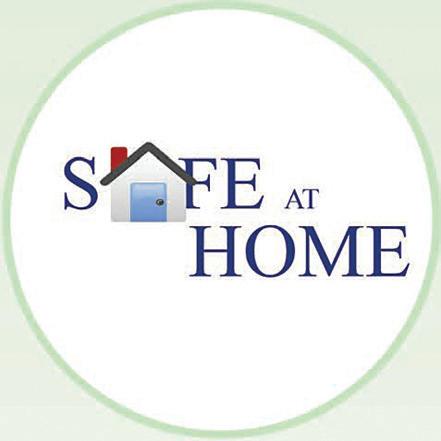
To be eligible, residents must be homeowners or renters of a property used as a primary residence and have an annual household income at or below 80 percent of Area Median Income. Additional requirements may apply.
For more information, call 202-724-5626 or visit dcoa.dc.gov/safe-home.

Smart home technology can make aging in place safe and easy.
• Digital voice assistants (like Amazon Echo) can offer simple improvements to everyday environments. For older adults with vision impairment, the speakers allow users to access audio books, so they can easily “read.” The devices can also play a wide variety of music and games, offering a remedy for both loneliness and boredom. Finally, speakers can be programmed to control thermostats, lights and security features.

• Video doorbells and in-home cameras allow adult children and other caregivers at a distance to monitor the movements and safety of older adults who are living alone.
• Personal Emergency Response Systems (PERS) keep older adults connected to emergency call centers that are monitored 24 hours a day by using a small transmitter that can be worn around the neck or on a belt.

Consumers can purchase, rent or lease a PERS. When purchasing a PERS, consumers will typically pay a one-time installation fee, as well as a monthly monitoring charge. For rentals, fees generally include use of the equipment and the monitoring service.
Is your mobility limiting you from accessing your home? We have the keys!


HandyPro provides the keys to unlocking the door on modifying your home. We are the right fit for your home safety and accessibility needs!

A home’s entryways are particularly important for aging in place, since they control access to the house. Ramps, covered entryways, wider doorways, exterior lighting and key less locks can be used to make access easier.
As licensed health professionals, Occupational Therapists (OTs) help older adults find the supports they need to maximize health, safety and independence in the home environment. After performing an in-home assessment and identifying daily routines, OTs can make recommendations that will enhance both the function and safety of the home.


To learn more about occupational therapists, visit AOTA.org.
1. Is there a step-free entrance into your home?
2. Is there a bedroom, full bath and kitchen on the main level?
3. Are the interior doorways at least 36” wide?
4. Are the kitchen cabinets and shelves easy for you to reach?
5. Are there secure handrails on both sides of the stairs?
6. Are your staircases and hallways well lighted?
7. Do all of your area rugs have non-slip grips to prevent tripping or slipping?
8. Do you have a shower with a step-free entry?
9. Are there nonslip strips or nonslip mats in the bathtub and/or shower?
10. Is there “blocking” (e.g. a wood stud or other solid surface) behind the bathroom walls, so grab bars can be securely installed in the bathtub, shower and toilet areas?
Excerpted from AARP’s HomeFit Guide. Consumers can download the complete worksheet at www.aarp.org/livable-communities/info-2014/ home-fit-resources-worksheets.html.


The world of technology is exploding with options that could allow seniors and baby boomers to live in their homes longer. So why aren’t they all taking advantage of available technologies? The simple answer is because most of the people who would benefit from these technologies are unaware that they exist.
We are all familiar with the “I’ve fallen and I can’t get up” commercial advertising wearable pendants that can be pressed when a person needs help. But there is so much more available today.
There are currently devices available that can visually and audibly alert individuals when it is time to take their medication. Given the fact that approximately 40 percent of nursing home admissions are the result of individuals being unable to take medication without supervision, these devices can help more seniors remain at home. Sold in varying shapes and

sizes, holding large to small pills, medication management devices can beep, flash, and text patients and caregivers when it is time to take a medication or text when a medication is missed. They can be purchased with monthly services to allow distant caregivers the ability to manage medications. Devices range from $299.00 to $999.00.
Tracking devices are also available that allow people to be found quickly if they wander. These tracking devices can be worn as watches, placed in a shoe as an insert, worn on a belt or worn around the neck as a pendant. According to the Montgomery County Police – Project Lifesaver, it is imperative that an individual is found quickly, because for each moment lost, the search grid expands to a size that makes it almost impossible for individuals to be found. With that in mind, when choosing a tracking device, it is important to know how soon the
device will notify caregivers the person is wandering. Very few of the devices currently on the market can give an exact location. Newer models also include two-way voice communication.

The assistive technology market also includes devices that can monitor health, sleep patterns and movement in the house. House sensors can monitor water leakage, movement in the bathroom, movement in and out of a bed or a chair, as well as the opening and closing of cabinets or doors. Finally, there are sensors that can turn off appliances if there has been no movement in a certain amount of time.
Using the power of new technologies, caregivers can provide independent, safe living environments for their parents or other loved ones and still have peace of mind. By working with loved ones and professionals, seniors can easily create secure environments where they can age in place.



Home care can include a wide variety of healthcare and supportive services from professional nursing and home health aide services to physical, occupational, respiratory and speech therapies. An advancing industry, home healthcare is essentially skilled nursing care and certain other forms of healthcare that you get in your home for the treatment of an illness or injury. It is an important option to consider regardless of one’s age or health conditions.


An incredibly diverse field, home care includes companion care, home healthcare or skilled nursing care.
COMPANION CARE is provided by caregivers or companions, who serve as surrogate family members, performing many of the tasks that family members would
typically complete. Assistance from companion caregivers can include meal preparation, medication reminders, laundry, light housekeeping, shopping, transportation and assistance with exercising. The overall goals of companion care providers are to ensure that the home environment remains safe and that the individual has a companion to spend time with when family is not available.
HOME HEALTHCARE is for those who are no longer able to perform all of the functions of daily living by themselves but who do not require skilled medical services. A home health aide can help with activities of daily living (ADLs), which include bathing, dressing, transferring, eating and toileting. Additional services generally include meal preparation, mobility exercises, housekeeping,
laundry, medication reminders and transportation.
SKILLED NURSING CARE is prescribed by a physician and is administered by a registered nurse. The services provided by skilled nurses include: administering injections, administering medications, wound care, IV monitoring, blood tests, catheter care, respiratory therapy, physical therapy, feeding tube administration and more.
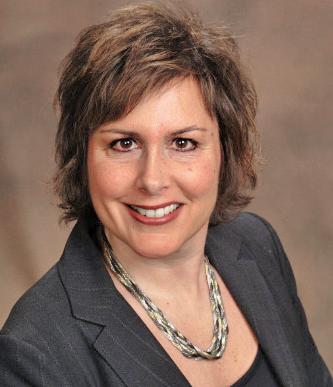


When it comes to understanding Medicare coverage, many individuals can find themselves confused by a complex web of information. This especially applies to those who want to know if they are eligible for Medicare coverage when entering a nursing home or receiving home health care. Below is some helpful information on whether you can use your home health care benefits if you have Medicare and what services and products it will cover.
First, you can use your home health care benefits if all of the following applies to your situation. Your doctor must prescribe that you need medical care at home and create a care plan. The care you need has to be intermittent and in the form of skilled nursing care, physical therapy, occupational therapy or speech therapy. The home health agency must be Medicare-certified and you must
be homebound, or unable to leave the home unassisted.
Once you have established those requirements, it is important to understand what Medicare will actually cover, which includes the following:
• Home health aide services on a part-time or intermittent basis, as long as there is a skilled need
• Medical social services
• Certain medical supplies
• Durable medical equipment (wheelchair, walker, bedside commode, etc.)
Given the services and products that Medicare does cover, it is also valuable to take note of what is not covered. Care that is required 24 hours a day will not be covered. Other services not covered include personal care provided by home health aides such as bathing and dressing, along with homemaker services like cleaning and
Your doctor must prescribe that you need medical care at home and create a care plan.
laundry. Also not included are homedelivered meals.
If you require care that goes beyond intermittent visits for a limited amount of time, or if your needs are not covered by Medicare, an important option to consider is private duty home care. For more information on Medicare coverage, visit medicare.gov

Information Provided by Family & Nursing Care and adapted from medicare.gov.


Home helper/Companionship: engagement, prepare meals, light housekeeping, medication reminders, shopping, appointments, activities, dementia care

Personal care services: transferring, ambulation, dressing, bathing, toileting, hospice home care


Transportation 4 hr+ package To-andFrom: dialysis, medical appointments/ treatments, outpatient surgery

Continued from page 184
together for social, educational, and civic activities that promote aging in place. The term “Center” is used to suggest “presence” in the community. In fact, a Shepherd’s Center is often described as a “center without walls.” Shepherd’s Centers create relationships that bind society together and empower individuals to take on new challenges, learn new skills, make new friends, and serve others.
Shepherd’s Centers are open to all older adults, regardless of income. There is no membership fee. Shepherd’s Centers also frequently partner with other organizations or county provided aging services, such as Meals on Wheels, to better serve low-income older adults.
It is important to note that Shepherd’s Centers are NOT Villages (a separate set of community-based
organizations serving localized older adult populations).
At the five local Shepherd’s Centers, services vary widely. However, there is an overarching focus on free transportation, socialization, support and engagement. The specific programs evolve over time to best meet the needs of the local community.
There are so many ways you can support the mission of creating powerful and meaningful opportunities for older adults today… and tomorrow. Volunteer as a driver, office support, class instructor, or in a variety of other opportunities. Or sign up for a class and meet new people.
To learn more about Shepherd’s Centers or to get involved, contact the center in your neighborhood or visit shepherdcenters.org.
Shepherd’s Center of Annandale Springfield
Serving Annandale and Springfield 703-941-1419
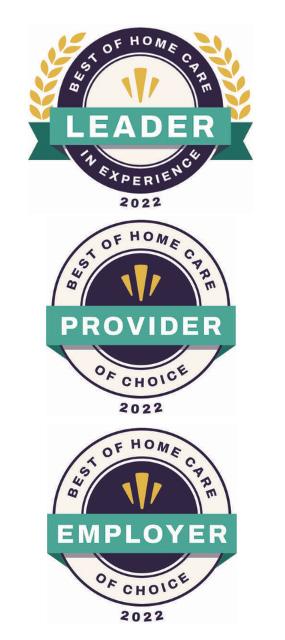
shepherdscas@vacoxmail.com
Shepherd’s Center of Fairfax-Burke and South County
Serving Fairfax City, Burke and South Fairfax County 703-323-4788 office@scfbva.org
Shepherd’s Center of McLeanArlington-Falls Church
Serving McLean, Arlington and Falls Church 703-506-2199 info@scmafc.org
Shepherd’s Center of Northern Virginia
Serving Vienna, Oakton, Dunn Loring, Reston, Herndon and Great Falls 703-281-0538 office@scnova.org
Shepherd’s Center of Western Fairfax County
Serving Centreville, Chantilly, Fair Oaks and Clifton 703-246-5920 SCWFC.Office@gmail.com

If you took a poll of older adults and asked each person if they wanted to remain in their own home until the end of their life, most people would say, “of course.” That is a wonderful goal, which often takes a lot of sound planning to be successful. Anything can get in the way—accidents, illness, lack of energy, declining physical abilities—of achieving your desired independence. It is hard to give up even a little autonomy, but asking for assistance can help keep you where you want to be—in your own home.
If you are recovering from an acute illness, you may be eligible for home health services that are paid for by the Medicare program. An Aging Life Care Manager™ can help you access
licensed home health services by facilitating a conversation with your physician about your need for skilled nursing services, physical therapy, occupational therapy, and/or speech therapy in your home. This is an important conversation to have with your doctor and discharge planner if you are in the hospital or a nursing facility and need to decide on and plan for services in your home once you are discharged.
However, Medicare will only pay for these services if you are “homebound.” Homebound is defined as only leaving your home for “medical treatment or short, infrequent absences for non-medical reasons, like attending religious services.”
You may also receive help from a home health aide under the supervision of a professional nurse or therapist. A

physical or occupational therapist can evaluate your home and recommend equipment (such as grab bars in the bathroom) that will improve your safety.


These services must be obtained from a state licensed home health agency certified to provide Medicarereimbursed services. They may be freestanding agencies, or they may be part of a large, hospital-based organization. Licensed home health services are usually time-limited, ending when you have met the goals of treatment and the need for the skilled care has ended.
If you have enrolled in a Medicare Advantage program, you may also have access to additional services such as home visits after a hospitalization.

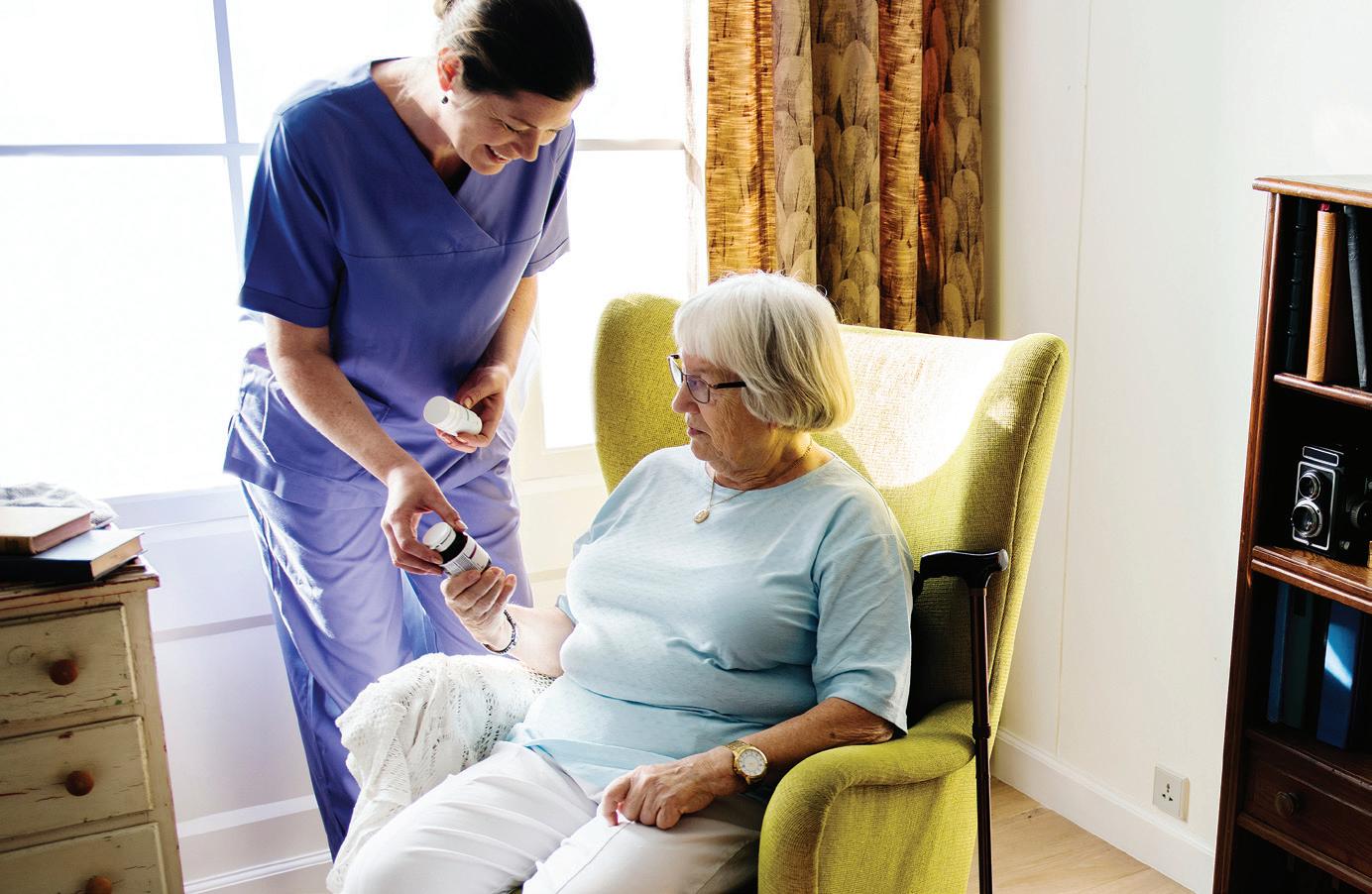

Many other care services are provided in the home but are not licensed or paid for by Medicare. An Aging Life Care Manager can help you understand what they can offer, access reputable services, and monitor them on an on-going basis.
There are many types of paid care giving services available—often called non-medical aides, companions and homemakers—who many people hire privately. If you do, you or your family should check at least two work-related references, develop a specific set of tasks and expectations for the caregiver, arrange to pay all appropriate taxes, and have the required insurance coverage.

Caregiver services can also be arranged through an agency. While this may cost more per hour than hiring an aide yourself, hiring an agency assures you of coverage
when the aide is sick, on vacation or quits. The agency also carries liability insurance and is responsible for all employment taxes and employee bonding. An Aging Life Care Manager can help you find a reputable agency and get important questions answered, such as: do they check
police and driver license records; do they provide supervision; how do they handle cancellations; and how long have they been in business?
Thank you to the Aging Life Care Association™ for permission to share this information. You may learn more about Aging Life Care™ at
Our caregiving staff is highly experienced and trained to meet any demand. Whether you just need someone who can take Dad to get groceries, or someone who can stay 24/7 with Mom, ACCfamily is here for you. We want you to feel stress-free by providing a trusted source of home care.


 By Carol Hillegas
By Carol Hillegas
Tracy Cram Perkins never set out to write a book about caregiving for someone with dementia. But when her father expressed his wish that she share what they were living through right then, there was really no choice.
“Before I really lost my father to the fog of dementia, he made me promise him that I would find a way to help other people do what I’m doing ... that’s what put me on this track,” said Perkins.
Out of her father’s generous wish came Dementia Home Care: How to Prepare Before, During, and After. Tracy envisions caregivers who need help with a specific situation—and need it right now—grabbing up her book, skimming through the table of contents, and going straight to the pages with realistic suggestions and ideas for that kind of situation. It’s immediate help from someone who has been there with four loved ones.
She has been a caregiver for both her parents, an uncle, and an aunt, all with different types of dementia and other health issues.
Tracy’s father had always been skilled at figuring things out. That
didn’t change after the family placed him into his first group home. They were soon informed that he needed a place with more security.
Fast forward through homes two, three, and four, each with higher security than the last. When the fifth home let them know he had ingeniously found his way out through a window and they would have to find yet another place for him, Tracy and her husband found a way to bring him to their home to live. That meant the higher level of security was now up to them.
Tracy learned from the Alzheimer’s Association to take a daily photo of your loved one each morning. That way, if they take off and become lost, you’ll know what they are wearing that day and can describe it or give the photo to
police and others who are helping to find them.
She then expanded that technique to solve another challenge—getting her dad to bathe and change clothes, which he regularly resisted. She had him help her “wrap a present” for someone each night. Unbeknownst to him, a fresh set of his own clothes was in the box.
The next morning, while he was having breakfast, she would put the wrapped present in his room. She told him it was from a loved one, and he was excited every day to open it. He wanted to put on his new present and would even agree to bathe. Once he was dressed Tracy took the daily photo of him, telling him they would send it to whichever loved one had sent the package that day. His dementia kept him from remembering the process from day to day. Genius, and fun for Dad!
Tracy shares plenty of tricks and hacks she learned for keeping her escape artist dad safe at home. Disguising exits to “disappear”
The End of Alzheimer’s by Dale E.
Bredesen, MD The 36-Hour Day by Nancy L. Mace, MA and Peter V. Rabins,
MD, MPH Caregiver’s Guide to Dementia by Gail Weatherill, RN, CAEd
Creating Moments of Joy Along the Alzheimer’s Journey by Jolene
Brackey Share the Care by Cappy Capossela
Positive Approach to Care by Teepa Snow
visually by using one color of paint or murals, making doors look like windows, or posting signs discouraging entry can work well in keeping loved ones from leaving their safe home. Changing how doors work by moving working doorknobs to the very top or bottom of the door or putting locks or alarms on doors and windows are other ideas.
Tracy stresses that not every trick will work for every person. Each family will figure out what works for their loved one through trial and error.
Tracy shares much more of her own hard-learned and hard-earned help in her book and on her website https:// tracycramperkins.com/. You can reach Tracy at tracy@tracycramperkins.com .
Comfort Keepers is here to help ensure senior safety and wellbeing through the current health crisis and beyond. Our empathetic caregivers are specially trained to provide uplifting care from the sanctuary of home. From picking up prescriptions and grocery shopping to providing companionship and personal care, we’re here to help.

Discover why for more than two decades, Comfort Keepers® has been Elevating the Human SpiritSM through its in-home care for seniors and other adults by empowering them to maintain their independence and realize joy in the everyday moments.


Everyone needs an advocate. Someone who can help them resolve issues, navigate challenges and make decisions. For older adults who are living in, or considering moving to, a nursing facility or assisted living community, long-term care ombudsman can serve as essential advocates.

A long-term care ombudsman is an advocate who strives to improve the quality of life for individuals receiving long-term care services. Ombudsmen resolve complaints against long-term care providers through counseling, negotiations and investigations. They can also provide vital information about long-term care providers to help consumers make informed decisions. Using trained volunteers,
ombudsman programs make regular visits to long-term care facilities to interact with residents and staff. Finally, ombudsmen strive to educate the community about long-term care issues, train long-term care staff and consult with long-term care providers. The ombudsman program is federally mandated and located in every state. Operated by the Administration on Aging, the ombudsman program has more than 6,000 volunteers certified to handle complaints and 1,300 paid staff. In 2019, ombudsman programs investigated more than 198,000 complaints and provided information on long-term care to another 425,000 people.
The ultimate goal of the ombudsman program is to provide residents of long-term care facilities with an advocate who will work to ensure they receive the highest
A family-owned business, 2nd Family began as a result of our own experience in searching for in-home care for our own loved one — our grandmother. We specialize in Alzheimer’s and Dementia care, and also provide additional services such as, companionship, transportation, hygiene, housekeeping, medication reminders, and personal care.
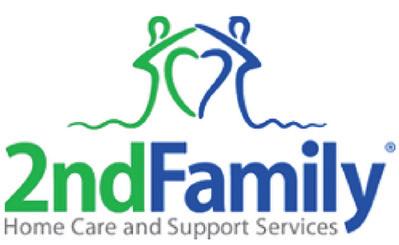
level of care possible. Volunteer ombudsman are a voice for residents and their families.
An Ombudsman can offer advice on housing and help with complaint counseling, negotiations, investigations and resolutions. Ombudsmen stand with residents of long-term care communities, ensuring that their voices are heard and their complaints and concerns are addressed.
For families who are searching for a nursing facility or an assisted living facility, Ombudsmen can provide vital information about facilities, services, complaint histories, inspection reports, and features to look for while searching for a community.

As a consumer of long-term care, Ombudsmen can help you voice


WASHINGTON, D.C.
Phone: 202-724-5626 | Email: dcoa@dc.gov
Website: dcoa.dc.gov/service/long-term-care-ombudsman-services
VIRGINIA
Phone: 703-324-5861, TTY 711 | Email: nvltcop@fairfaxcounty.gov
Website: www.fairfaxcounty.gov/familyservices/older-adults/ long-term-care-ombudsman-program
MARYLAND
Phone: Montgomery County - 240-777-3369
Prince George’s County - 301-265-8483
Website: aging.maryland.gov/Pages/state-long-term-careombudsman.aspx
any concerns you may have about current providers. They can also take you through the steps necessary to resolve any complaints. This generally starts with negotiation, during which the two parties sit down to discuss the concern and the Ombudsman serves as a facilitator. In many cases, both parties are able to agree to a solution.

If negotiation is not successful or appropriate, Ombudsmen can launch a formal complaint investigation aimed at achieving a resolution to support the resident. Ombudsmen will accept anonymous complaints. In cases where names will be used, residents and/or their families must sign a waiver of the right to confidentiality.
See the box on this page for local phone numbers, email addresses and websites to contact the Ombudsman program near you. For more general information about the program or to find programs in other areas, visit Ltcombudsman.org.
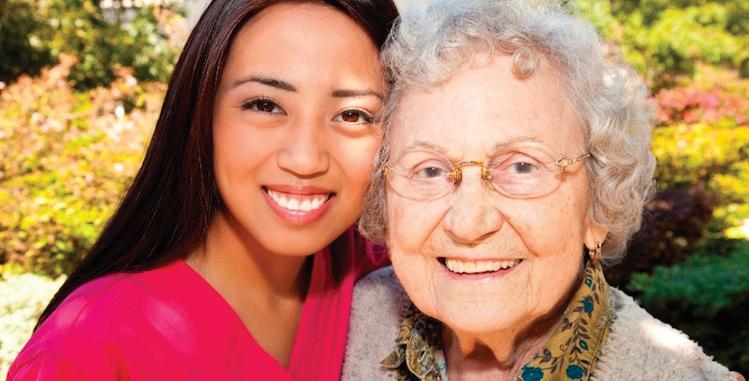

We are a locally owned, private duty home care agency providing non-medical home care services to assist with the activities of daily living. We provide live-in care and hourly shifts. Our focus on excellence has made us a trusted partner of many families and local facilities in the community.


Continued from page 177
and religious/spiritual advisers about all end-of-life care options, including hospice and palliative care. It is important to note that this is completely voluntary for the patient, doctors and pharmacists.
Of surveyed Marylanders, 57 percent said they personally “would want the option of medical aid in dying” if they “had an incurable, terminal illness, still had a sound mind, had less than six months to live and met the legal requirements,” according to a poll of 807 registered voters conducted by Gonzales Research and Media Services in December 2021. Nearly 70 percent of those polled supported the option of medical aid in dying for Marylanders. Doctors interested in this end-oflife care option can talk with other doctors with years of experience in this practice by calling Compassion &
Choices’ free Doc2Doc consultation phone line at 800.247.7421 or emailing doc2doc@compassionandchoices. org. And pharmacists can get free information about filling medical

aid-in-dying prescriptions by calling: 503.943.6517.

For more information, visit compassionandchoices.org .

As a Care Manager and Social Worker with more than 30 years of experience, I have conducted a myriad of assessments and have asked many questions over the years. Yet, it wasn’t until I read John T. Cacioppo’s and William Patrick’s book Loneliness: Human Nature and the Need for Social Connection that I realized I needed to add this critical question to my assessments.
I decided to plunge into the topic of loneliness in older adults and was intrigued by studies both in the United States and in other countries. The research is clear that older adults are experiencing loneliness and the negative impact that it can have on their medical and mental health at pandemic proportions.
One study on loneliness found that
time spent with a friend, neighbor or peer was more enjoyable than time spent with family. Sadly, the value of meaningful interpersonal connection is often minimized in our society.
The consequence of loneliness is striking. Older adults who report being lonely are more likely to go into a nursing home, have more difficulties with the activities of daily living, and experience more rapid progression of Alzheimer’s.
Undoubtedly, these studies on loneliness can assist us in creating solutions, programs, services and environments to alleviate loneliness in older adults.
Inspired by the work of Cacioppo and Patrick along with these studies, I created a presentation on the topic: One Really is the Loneliest Number!
The presentation covers three
Social Work CEUs and focuses on how to identify, assess and alleviate the negative impacts of loneliness in older adults.
Loneliness is preventable. Prevention requires not only asking the question but also devising a plan to alleviate the loneliness.
As Care Managers, we are uniquely qualified to create care plans and solutions to reduce the impact of loneliness. These care plans are individualized to meet the unique needs and circumstances of each client.

As care managers, we work with our clients to begin the process of transforming a situation or circumstance that negatively impacts their life by helping to envision what life would be like by accomplishing a change. Imagine a life without loneliness.

How long has this provider been serving the community?
How does this provider select and train its employees?
Does it protect its workers with written personnel policies, benefits packages and malpractice insurance?
Do they consult the patient’s physicians and family members?
How does the agency follow up on and resolve problems?
Does this provider include the patient and his or her family members in developing the plan of care?
Does this provider supply literature explaining its services, eligibility requirements, fees and funding sources? Many providers furnish patients with a detailed “Bill of Rights” that outlines the rights and responsibilities of the providers, patients and caregivers.
Are nurses or therapists required to evaluate the patient’s home care needs? If so, what does this entail?
Are patients involved in making care plan changes?
Is the patient’s course of treatment documented, detailing the specific tasks to be carried out by each professional caregiver? Does this provider take time to educate family members on the care being administered to the patient?
Does this provider assign supervisors to oversee the quality of care patients are receiving in their homes?
If so, how often do these individuals make visits? Who can the patient and his or her family members call with questions or complaints?
What are the financial procedures of this provider?
Does the provider furnish written statements explaining all of the costs and payment plan options associated with home care?


Assisting Hands provides professional in-home health care services now, during Covid, allowing our clients to remain safely and comfortably in their own homes. Our specially trained certified nursing aides are available to meet your schedule – a few hours a day or around the clock – and we match your loved one with the right caregiver.





Adult Day Centers are an important option for family caregivers, as they offer socialization, activities, and necessary supervision to those who are socially isolated or need care and assistance.
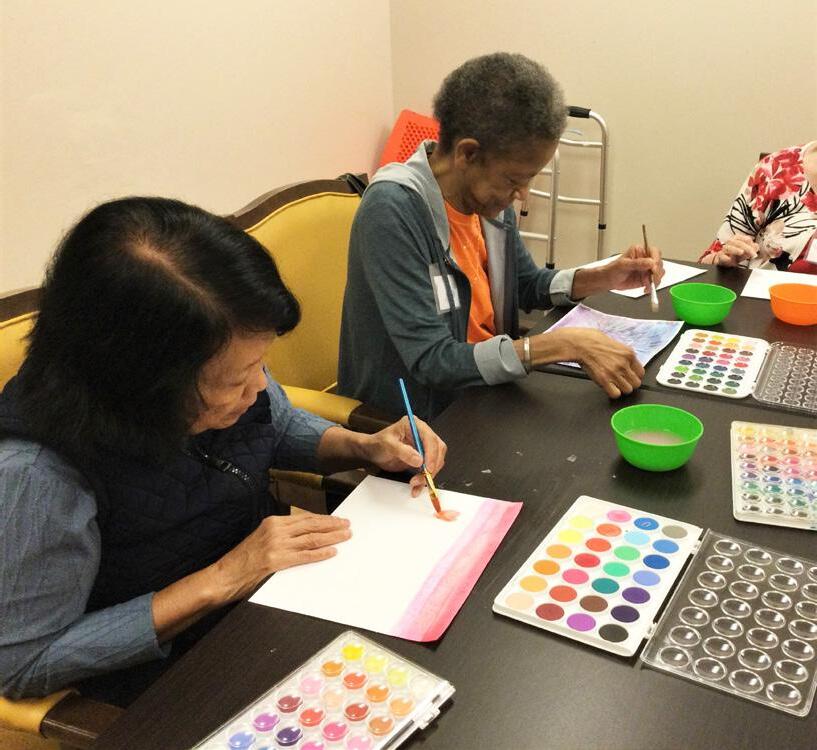
Caregivers can feel confident that their loved one is safe and well cared for while they are at work or performing other necessary tasks. Centers offer a variety of programs and amenities, including exercise programs and a diverse schedule of engaging activities.
Assistance with the activities of daily living, including eating, walking, toileting and medication management may also be available. Additionally, many centers offer physical, speech and occupational therapies to their participants. All licensed centers provide nutritious meals and snacks on a daily basis.
After locating nearby providers, call them to request flyers, brochures, calendars and application information. While reviewing this information, pay careful attention to how many years the provider has been in business and their licensures and certifications. Be sure to understand the staff credentials, staff-to-participant ratio, and the medical conditions the facility and its staff are equipped to handle. Inquire about the availability of transportation to and from the program if it is necessary. The types of activities offered and the menu variety should be considered as well. Specific
How many years has the center been in operation? Is the center licensed, certified or accredited?
What are the days and hours of operation?
If needed, is assistance provided with eating, toileting and dispensing medication?
What types of activities are provided? Do participants help plan activities? Are meals or snacks provided?
Can special dietary needs be accommodated? Do participants have individual service plans? How often are they updated?
What is the staff-to-participant ratio?
What type of training do staff members receive?
Are fees charged hourly, daily or monthly? What will the total fee be for services?
How are payments accepted? Is a deposit required? Is financial assistance available?
costs and any financial assistance that is available should be clearly outlined in the information packet. Reviewing printed materials and asking questions over the phone can help narrow the choices, but the final decision of which Adult Day Center to use must be made in person. During the visit, staff members should be able to
provide clear and easy-to-understand information about the services and activities provided at the center. Checking references from individuals who are currently using this provider or have used them in the past is the final step in the decision-making process.

Source www.nadsa.org
We provide specialized programs for individuals and families in all stages of your dementia journey. Join us!
New Early Stage Center in Sterling! Check us out: InsightMCC.org/Sterling

An ailing grandmother. A parent in crisis. A beloved relative who can’t find the care they need. It is these very personal—and often very challenging—experiences that inspire many professionals to seek out a career in senior services.
Whether they are young adults who chose this profession from the outset or individuals launching second careers,
senior-serving professionals have historically struggled to find appropriate support resources. In many cases, the best source of support for professionals is their peers. With that in mind, this section is designed to help professionals find each other.
Senior-serving professionals are valuable resources—to each other. No matter what part of the senior-serving
industry you work in, you can use this section to find potential partners, discover new connections, and make referrals to help clients.
The senior living field is made up of amazing individuals who are dedicated to serving older adults. This close knit community shares a strong set of values. Use this section to meet—and find—each other.





Positive Aging Community Champions are committed to providing real choices to older adults and their loved ones. They are the backbone of the Positive Aging Community, ensuring that older adults are heard, helped, and honored through every step of the aging process. We hope you turn to these organizations when you are seeking advice, guidance or support.
The 25-acre Jenkins Campus in southwest Baltimore offers beauty and greenery out each window, with a spectacular view of the Baltimore skyline –conveniently located near I-95 and St. Agnes Hospital.
St. Elizabeth Rehabilitation and Nursing Center
667-600-2600
Short-term rehabilitation and skilled nursing, long-term and memory care.
– 2023 Newsweek –
Caritas House Assisted Living
667-600-2660
A residential community of care with personalized assistance in daily activities for adults 62 and older.
St. Ann Adult Day Services
667-600-2680
Activities, socialization and medical supervision so older adults can continue to live at home.


DePaul House and St. Joachim House
667-600-2280
Supportive, affordable apartment communities on the Jenkins Campus.
Supportive, affordable apartment communities. Total of 24 locations in Maryland, home to more than 1,800 older adults.
667-600-2280
ANNE ARUNDEL COUNTY
Glen Burnie
Arundel Woods
Odenton
Friendship Station
Friendship Village
BALTIMORE CITY
East Baltimore
Our Lady of Fatima I
Our Lady of Fatima II
Mount Vernon
Basilica Place
Overlea
Everall Gardens
Violetville on Jenkins Campus
DePaul House

St. Joachim House
BALTIMORE COUNTY
Catonsville
St. Mark’s Apts.
Edgemere St. Luke’s Place
BALTIMORE COUNTY CONT.
Lansdowne
Kessler Park
Coursey Station
Nottingham
Village Crossroads I
Village Crossroads II
Owings Mills
Owings Mills New Town
Pikesville
St. Charles House
Reisterstown
Reister’s Clearing
Reister’s View
Towson
Trinity House
Woodlawn
Holy Korean Martyrs
GARRETT COUNTY
Grantsville
Starner Hill
HARFORD COUNTY
Abingdon
Abingdon Gardens
Aberdeen
Aberdeen Court
We plan every day so our residents can get the most out of each day. We provide on-site fitness classes, lectures, art programs, entertainment –and let’s not forget gourmet food with a variety of options. Every day is full of exciting new possibilities to explore, learn, and thrive.

ANNE ARUNDEL COUNTY
Annapolis – 443.808.1232
Crofton Riverwalk – 443.494.6901
Severna Park – 410.544.1605 South
River – 410.956.7310
BALTIMORE COUNTY
Catonsville – 410.788.5001
Hunt Valley – 443.933.8880
(Welcome Center Opening Spring 2023)
Mays Chapel Ridge – 410.628.2100
Perry Hall – 410.529.1903
Rolling Hills – 410.744.7101
Towson – 410.296.3320
White Marsh – 410.668.1588
CARROLL COUNTY
Westminster Ridge – 410.871.2225
HARFORD COUNTY
Avondell – 410.638.8100
Bel Air – 410.893.2202
HOWARD COUNTY
Columbia – 443.393.3099
MONTGOMERY COUNTY
Fallsgrove – 240.314.7194
Grosvenor – 301.615.0119
West End – 301.284.7214

Woodmont – 240.800.7566
FAIRFAX COUNTY (VA)
Fair Oaks – 571.495.5907
Great Falls – 703.759.2513
Dulles Corner– 571.786.5800
(Community Opening Early 2023)
Woodburn – 703.462.9998